UMKC School of Medicine alumna Dr. Preeti Patheja spoke with a Florida news station about new approaches to help older adults access medical care.
Preeti Patheja, a graduate of the UMKC School of Medicine, told Fox 4 in Florida she is focused on dedicating her career to providing the best patient experience possible.
That includes a personalized approach to medical care and providing patients with the education and preventative tools needed to improve health and well-being, Patheja said.
The complete interview can be watched here.
Mar 10, 2022
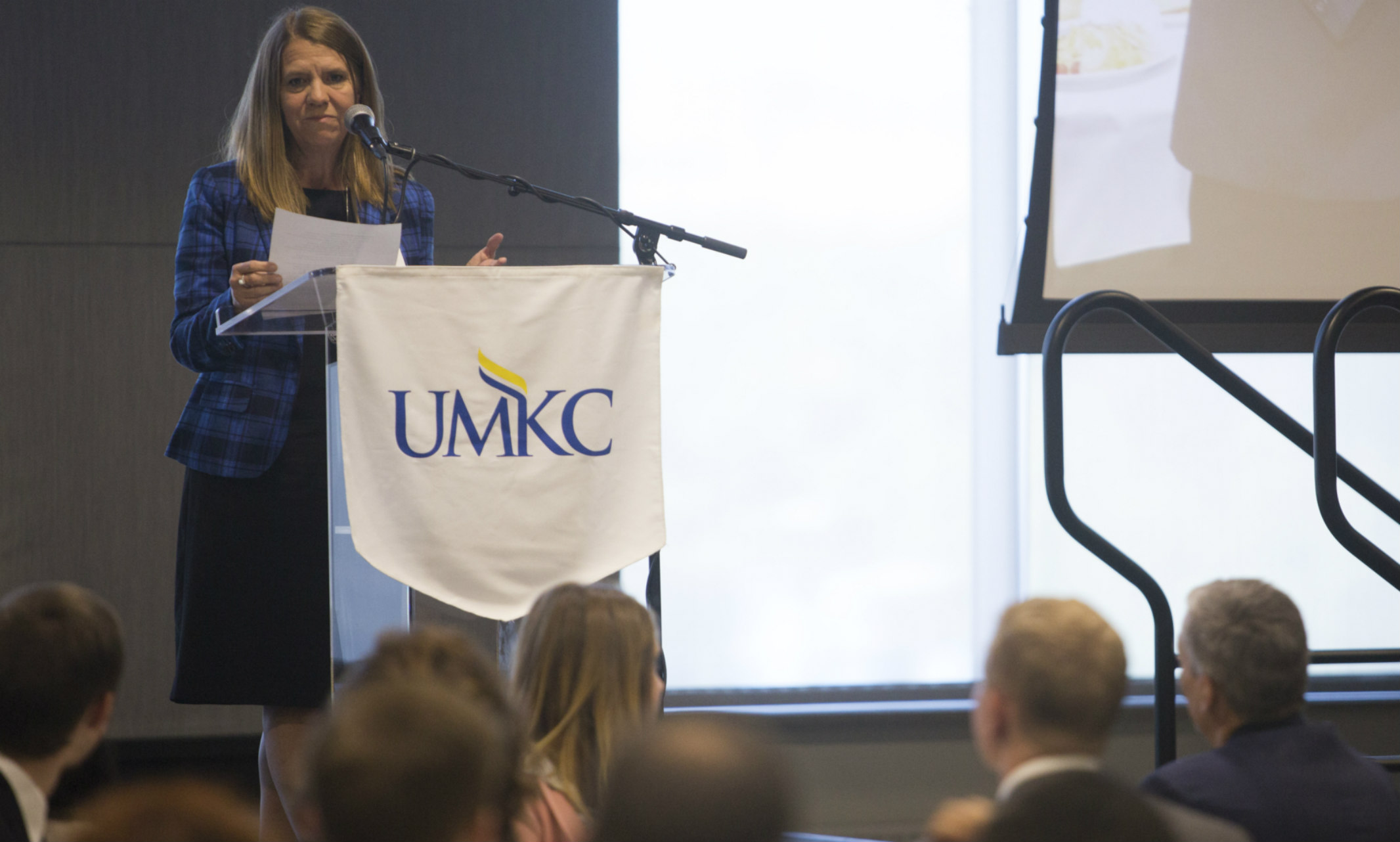
Bonnie Gorman receives School of Computing and Engineering Alumni Achievement Award
Each year, the UMKC Alumni Association recognizes the achievements of outstanding alumni with an awards celebration. UMKC School of Computing and Engineering is honoring Bonnie Gorman (B.S.M.E. ’86), with its Class of 2020 Alumni Achievement Award.
Bonnie Gorman(B.S.M.E. ’86)
Bonnie Gorman serves as director of modernization and innovation for Olin Winchester, an industry leading ammunition manufacturer and current operating contractor of the Lake City Army Ammunition Plant in Independence, Missouri. A natural leader, Gorman has held roles of increasing responsibility at Lake City Army Ammunition Plant, including engineering director and manager of manufacturing, quality, safety and facilities. In 2017, she was awarded the Orbital ATK President’s Award for Execution Excellence for restoring a critical operation after a catastrophic event. A longtime supporter of UMKC, she joined the School of Computing and Engineering Alumni Association board in 2015 and helped recruit new members. She continued this work on behalf of the school’s alumni board, stepping in as board president during a time of need and helping to grow its membership.
What are the challenges and benefits of your field?
The challenges are integrating new technology and continuous improvement efforts into processes (and facilities) that are over 70 years old; identifying and finding time to give engineers assignments that promote growth; and hiring the right engineers that have a passion for their assignments. The benefits are creating the new and different in order to meet business goals; making the manufacturing processes easier on the employees; and experiencing the diversity of opportunities and assignments.
How did UMKC prepare you for/contribute to your success?
While at UMKC, I made some lifetime friends who had a wide variety of backgrounds, talents, intelligence and experience. With them I learned the importance of diversity and the variety of talent that each individual can and does bring. We helped each other with homework, studied for exams and solved life problems. In short, I learned the extreme value of relationships, trust and friendship that I have carried through all aspects of life.
What advice do you have for students who’d like to follow in your footsteps?
Push yourself to learn as much as you can – and vow to never quit learning. Get involved in activities that support your continued learning. Be brave and ask questions, even if nobody else seems to have any. Remember the saying that the only dumb question is the one that does not get asked.
About the Alumni Awards
Join us in honoring Gorman and the other Class of 2020 Awardees in our first-ever virtual celebration at 5 p.m. April 16. Go to umkcalumni.com/alumniawards to register for this free event. If you are unable to attend the event but would like to donate to student scholarships, contributions can be made online.
Meet the rest of the 2020 UMKC Alumni Awardees
Mar 31, 2021
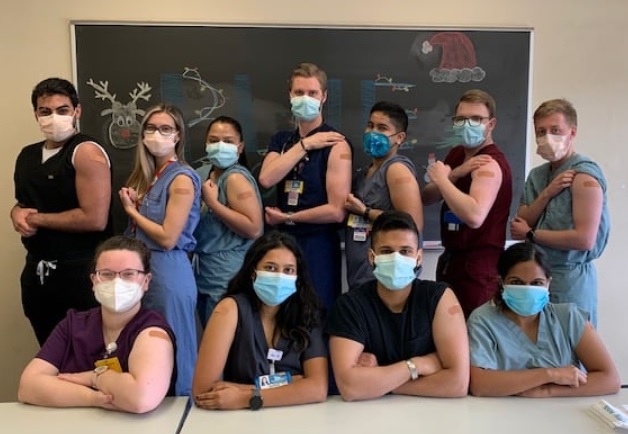
UMKC in top one-third of U.S. schools for family medicine
In only the second year that the UMKC School of Medicine has submitted information for the U.S. News and World Report’s Best Graduate Schools rankings, the school again is positioned among the nation’s best medical schools.
The school jumped 11 places, to 64th, in the ranking of primary care medical schools, and rose five places, to 83rd, for research medical schools.
The school also was recognized in the magazine's new rankings for service in underserved areas, rural medicine and diversity.
The magazine requested data from 191 U.S. schools of medicine or osteopathy and received responses from 129. Not all of those were ranked in every area, however, because of insufficient data or less-than-final accreditation.
“Our mission to train primary care physicians for the state of Missouri was again recognized by USNWR, as was our growing research enterprise,” said Dean Mary Anne Jackson, a 1978 graduate of the UMKC School of Medicine. “Moving into the top one-third of schools for primary care is quite an accomplishment, and the school’s advances in research reflect our commitment to linking patient care outcomes to our research vision.”
Jackson added that the school has seen an increase in the number of research awards and dollars to support efforts in UMKC’s areas of strength such as neurosciences, vision science, maternal fetal health, pediatrics, intervention science, surgical safety and metabolomics.
Both the primary care and research rankings are based on a weighted average of several indicators — some quality assessments by academic peers and residency directors, others objective data such as research funding, faculty-student ratios and student test scores. The primary care rankings incorporate two measures of graduates going into primary care. The research rankings include two measures of research productivity.
For three new category rankings, the school placed 17th in the percentage of graduates practicing in underserved areas; 65th in the percentage of graduates providing direct patient care in rural areas; and 86th in the diversity rankings.
The school recently boosted its emphasis on rural medicine and underserved areas of Missouri by opening a second campus in St. Joseph, and it has been bolstering its diversity and inclusion infrastructure and recruiting.
Mar 30, 2021
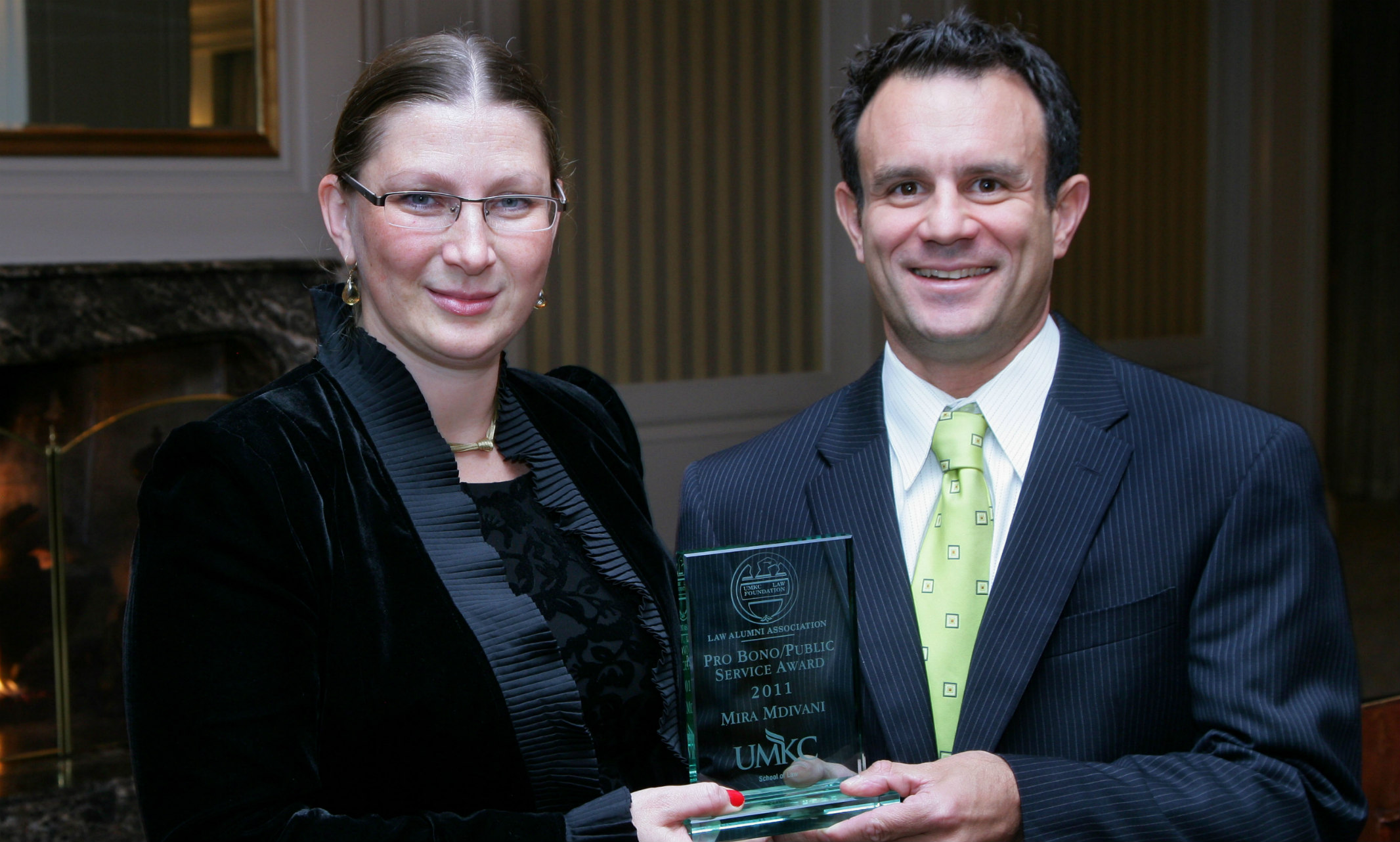
Mira Mdivani to receive the UMKC School of Law Alumni Achievement Award
Each year, the UMKC Alumni Association recognizes the achievements of outstanding alumni with an awards celebration. UMKC is honoring Mira Mdivani (J.D. ’99) with the School of Law Class of 2020 Alumni Achievement Award.
Mira Mdivani (J.D. ’99)
Mira Mdivani is one of the nation’s top corporate immigration attorneys, immediate past President of the Kansas Bar Association and has received numerous honors including for her pro bono work. We recently talked to Mdivani about being an immigration attorney and about her volunteer work.
For 20 years, you’ve provided pro bono services to immigrant women and children escaping abuse and violence. Why is it important to you to help women and children come to America?
My regular area of practice is corporate immigration law including business global mobility and U.S. employer corporate immigration compliance. At the Mdivani Corporate Immigration Law Firm, we provide pro bono services to immigrant women and children who are already in the United States -- the best country in the world -- because our hearts tell us we must. We focus on helping immigrant women and children escaping abuse and violence because they are the most vulnerable segment of our society and we are the best lawyers for the job. We are dedicated to providing the same excellent level of expertise and care to our pro bono clients as our corporate immigration clients. In the U.S., survivors of domestic violence and other violent crimes are treated with dignity and humanity. Our pro bono clients have survived abuse, rape and other violent crimes. They usually are referred to us by our firm’s community partners such as Hope House, New Home and Metropolitan Organization to Counter Sexual Assault.
How does being an immigrant help you in your role practicing corporate immigration law?
There is no civilization and no economic development without migration. Being an immigrant and a businesswoman, I see this very clearly. Bustling economic centers thrive because people from all over the world bring their energy, enthusiasm, expertise and a different point of view to add to the magic mix of economic success and cultural abundance. Also, being an immigrant, I take nothing for granted. As a first-generation U.S. citizen, I love my adopted country, the United States of America, and work hard for my country, state, city and community to thrive.
How did you become involved with CASA (Court Appointed Special Advocates)? What is the goal of the organization?
Friends asking friends! This is one of the most important boards I serve on. CASA provides a very important service to our community. CASA volunteers advocate for the best interests of abused/neglected children removed from their homes for their safety. With the support of the nonprofit’s staff, CASA volunteers work to provide critical information to judges, helping them make the best possible decisions regarding where the children should live and what medical, therapeutic and educational services they need. Children who have a CASA volunteer are far less likely to be re-abused and far more likely to find a safe permanent home.
You serve as an adjunct professor for the Law School, a member of the Law Alumni Association Board and Law Foundation Board of Trustees. Why is it important to you to stay involved at UMKC?
UMKC is my alma mater. I am deeply grateful to the UMKC School of Law, my professors and the deans for the excellent education I received and for enabling me to lead a happy, meaningful life. I love being a lawyer. I will continue to give back to my law school and to vigorously support the school, its students and alumni.
About the Alumni Awards
Join us in honoring Mdivani and the other Class of 2020 Awardees in our first-ever virtual celebration at 5 p.m. April 16. Go to umkcalumni.com/alumniawards to register for this free event. If you are unable to attend the event but would like to donate to student scholarships, contributions can be made online.
Meet the rest of the 2020 UMKC Alumni Awardees
Mar 30, 2021
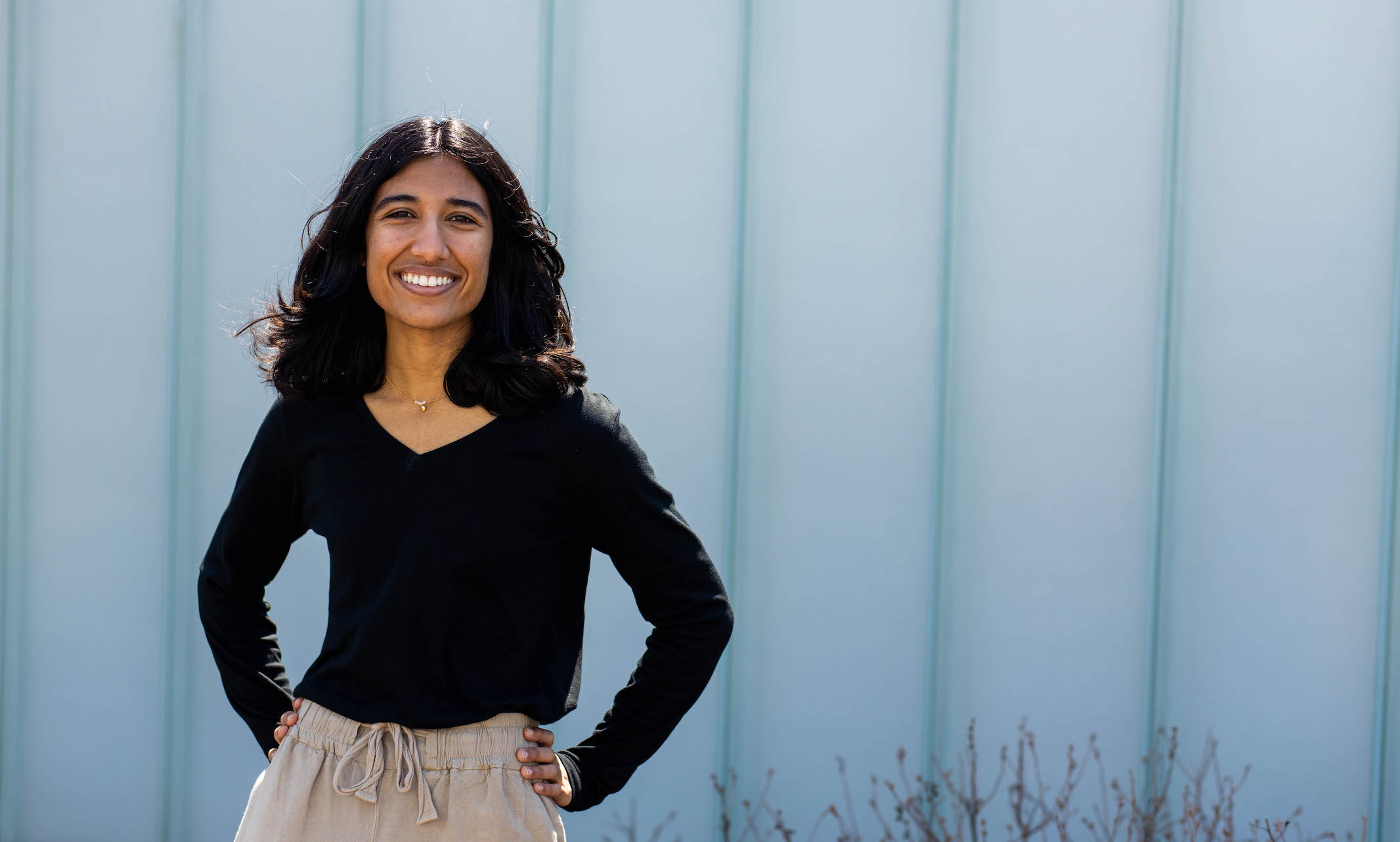
Vice President Kamala Harris congratulates Niki Joshi via Zoom
Niki Joshi received the 2021 Frederick Douglass Global Fellowship, a competitive award for a diverse group of student leaders to attend a four-week summer study abroad program focused on leadership, intercultural communication and social justice. Joshi will study in Ireland this summer with 13 other fellows from across the United States.
Joshi, a sophomore history and English student as well as a UMKC Trustees' Scholar, was hopeful that she’d receive the scholarship, but she knew the selection process was highly competitive.
“I knew hundreds of other intelligent and accomplished students were applying and that the competition would be stiff,” she says. “So, receiving the congratulatory phone call was an unexpected and wonderful surprise. I still don’t think the news has really sunk in.”
Joshi met the other fellows in her cohort in a congratulatory Zoom meeting with Vice President Kamala Harris, Ambassador Daniel Mullhall, Taoiseach Micheal Martin and Nettie Washington Douglass, chairwoman and co-founder of Frederick Douglass Family Initiatives, Frederick Douglass’s great-great-granddaughter and great-granddaughter of Booker T. Washington.
“Vice President Harris and Taoiseach Martin were so kind, genuine, supportive and encouraging,” Joshi says. “I left the meeting feeling like I could do anything.”
She was grateful, too, to have the time to hear Nettie Washington Douglass speak about Frederick Douglass’s time in Ireland.
“It’s fitting that this diverse group of young people will have the opportunity to develop their leadership skills in a place so special to Frederick Douglass,” Douglass said. “The welcome and respect with which Frederick was greeted across his tour of Ireland affected him profoundly. I can think of no better place for future American leaders to gain a global perspective and prepare to be agents of change.”
“Vice President Harris and Taoiseach Martin were so kind, genuine, supportive, and encouraging. I left the meeting feeling like I could do anything.” – Niki Joshi
“It was an incredible opportunity to learn more about the emotional significance and impact that Douglass’s time in Ireland had on his personal development and activism,” Joshi says. “I’m deeply humbled and honored to have this chance to follow his journey and walk in his footsteps.”
Joshi had planned to study abroad in Scotland with professors and students from the Honors College last summer, but her plans were canceled due to the COVID-19 pandemic. While she took the cancellation in stride, she was aware of what she was missing.
“I think studying abroad grants a greater sense of clarity and independence,” Joshi says. “But most importantly, I think the experience allows students to test their personal limits by learning how to navigate social and cultural divides through exposure to different languages, values, practices, or traditions. It allows students to return with new knowledge and experiences that prepare them for an increasingly globalized world.”
“UMKC’s International Affairs team was delighted to find out one of our students received this prestigious, competitive honor,” says Kate Wozniak, assistant director of UMKC study abroad and exchange. “Niki was chosen from over 500 stellar applicants. The fact that she will be part of the fifth cohort of Frederick Douglass Global Fellows is astounding.”
Wozniak believes the program will be intense and transformational for Joshi.
“The four-week summer fellowship program in Dublin will focus on leadership, intercultural communication and social justice,” she says. “We fully expect Niki to return as an even stronger advocate for students of color as well as for international education.”
During the announcement Vice President Harris shared her perspective on one of the values of the experience of studying abroad.
“Like Frederick Douglass in Ireland, you can come as you are and you can leave who you aspire to be.”
Joshi’s expectations for the experience are clear.
“I aspire to be someone who feels comfortable with the unknown and wholly self-assured despite not knowing what will come next.”
Mar 30, 2021
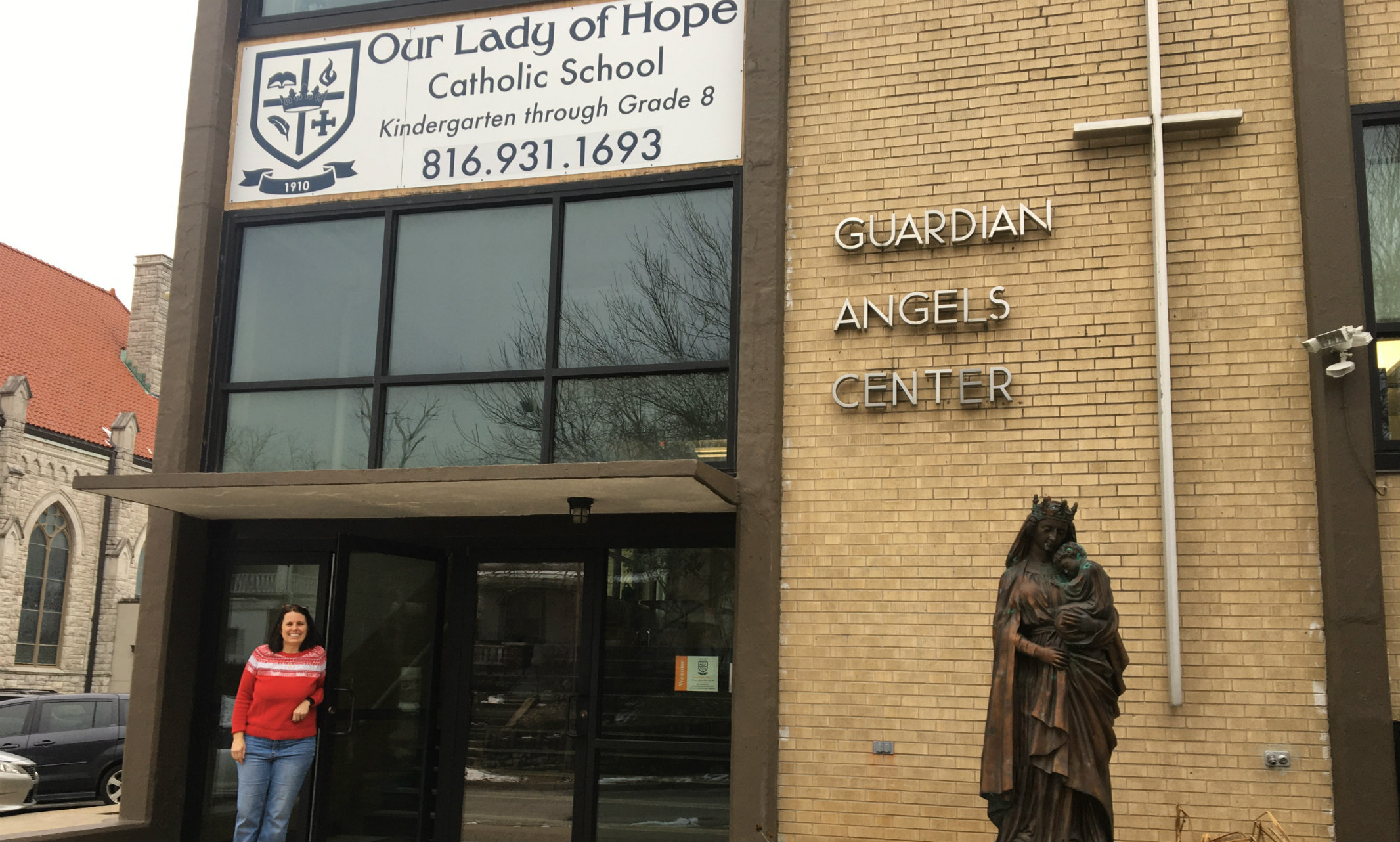
UMKC School of Education selects Mary Delac to receive Alumni Award
Each year, the UMKC Alumni Association recognizes the achievements of outstanding alumni with an awards celebration. UMKC is honoring Mary Delac (M.A. '98) with its Class of 2020 Alumni Achievement Award.
Mary Delac (M.A. '98)
First as a teacher and now as a principal, Mary Delac has been a generous, kind and dedicated supporter of her students for more than 20 years. Today, Delac serves as principal of Our Lady of Hope, a kindergarten through eighth-grade school in Kansas City, Missouri. Going above and beyond her role as principal, Delac has helped some of her students by providing basic necessities in order to succeed. She often spends her spare time attending concerts and sporting events to support her school’s students.
Why is it important to you to ensure that students have the items they need at home, too?
Students cannot truly thrive in the classroom unless their basic needs for survival are being met. Educating the whole child means when they are hungry, you feed them. If a student has a toothache and no dental insurance, we connect them to Seton Center. If they need a uniform shirt, we find them one. These are my kids.
Where does your passion for helping children and families stem from?
My passion stems from my belief in the scripture verse from Luke 12:48, “To whom much has been given, much is required.” I was blessed to grow up with a lot of love and positive support from my family and mentors. I am passionate that every student feels important and supported in our school.
What legacy do you hope to leave behind with the students you’ve taught?
I hope my legacy will be that my students never, ever give up on their dreams. That my students remember that past events or mistakes never determine their future. As good as they are, they can always get better.
How did UMKC prepare you for/contribute to your success?
I feel UMKC has always been a leader in urban education. I was very fortunate to be part of some of the first cohort groups that were specifically geared to urban schools’ needs. My experience at UMKC formed me as an urban principal and empowered me to always try and look outside the box for ways for my students to succeed. The one great lesson that has stayed with me and influenced the way I run my school came in a question posed by the great professor and educator, Dr. Eugene Eubanks, “Who does the school belong to?” My answer is the school belongs to the students. Even though it has now been 22 years since that class, I still think of that when I make decisions on policies and procedures. I will always advocate for the needs of my students before the needs of adults in the building.
What advice do you have for students who’d like to follow in your footsteps?
A principal’s job is to take care of people not paper. You have to be relational. You have to be all in because sometimes the job is lonely and overwhelming. Always keep your focus on the students, your mission and stay positive. If you can do that, even when it’s hard, you will not only survive but thrive and so will everyone around you.
About the Alumni Awards
Join us in honoring Delac and the other Class of 2020 Awardees in our first-ever virtual celebration at 5 p.m. April 16. Go to umkcalumni.com/alumniawards to register for this free event. If you are unable to attend the event but would like to donate to student scholarships, contributions can be made online.
Meet the rest of the 2020 UMKC Alumni Awardees
Mar 29, 2021
Diane Mutti Burke offers historical insight for local media
Diane Mutti Burke, chair of the UMKC History Department, said research she and doctoral candidate Deborah Keating conducted makes her confident the story of a Black slave killing himself was the likely origin of the name.
Burke has been interviewed by:
NBC News
The Kansas City Star
KSNT
New Haven Register
Mar 28, 2021
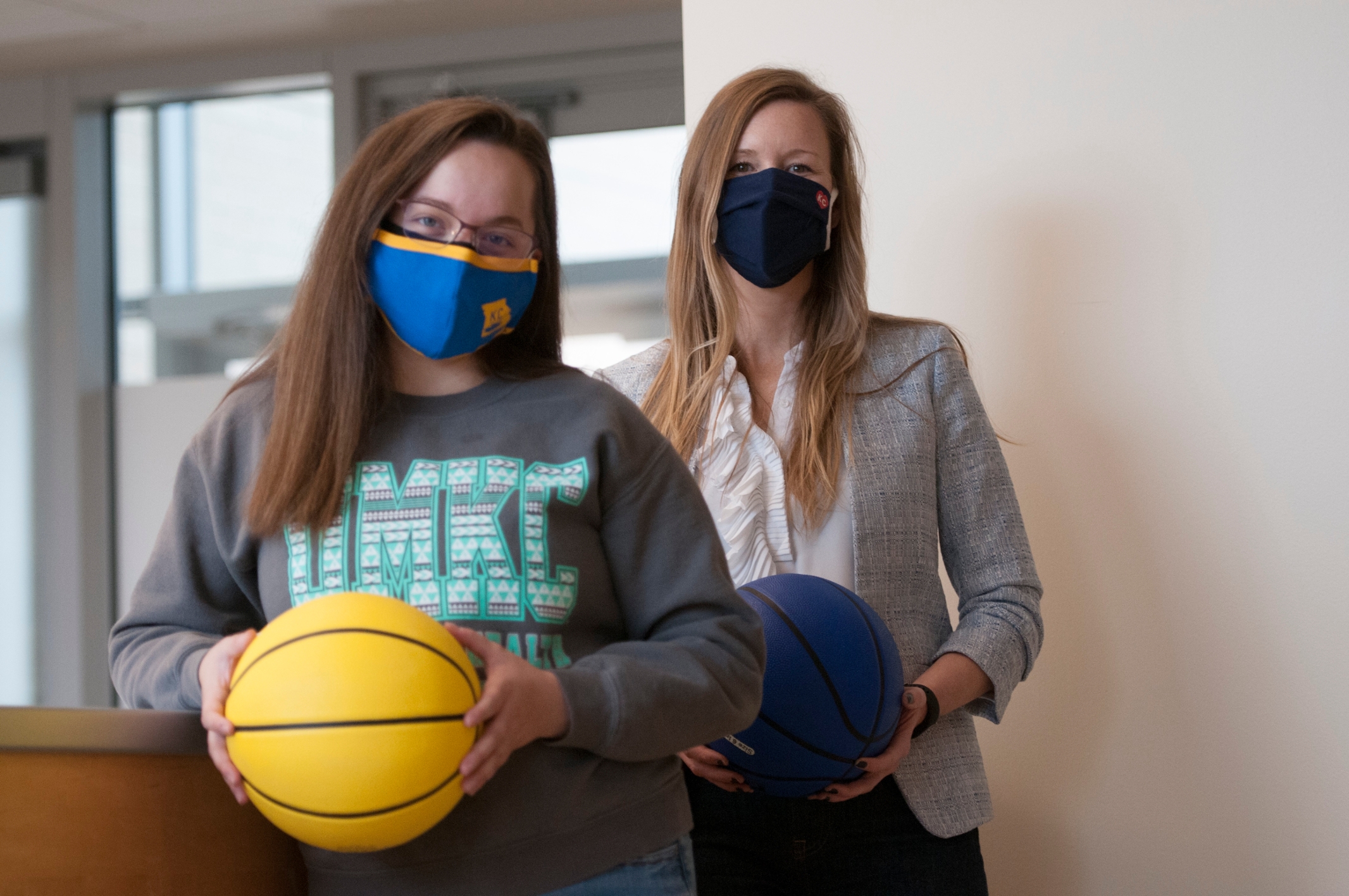
First-generation college student seizes opportunity; mentor opens even more doors for her
The heart of UMKC is our campus community. With lots of opportunities, it’s easy to develop student mentorship teams. And these rich relationships—our Dynamic Duos—are some of our best success stories.
When Maya Baughn heard that the health sciences program was looking for student research assistants, she immediately reached out for more details.
She met about the opportunity over Zoom with Amanda Grimes, assistant professor of health sciences, and the two clicked. Given Baughn’s curiosity and positive personality, Grimes said, “I could tell right away she was a great fit for our team!”
In high school, Baughn had nurtured her interest in health care by getting involved in health related classes, clubs and organizations. One summer she spent a week at the School of Nursing and Health Studies under the KCHealthTracks program, which exposes high school students to health career options and professional connections.
“I just loved it,” Baughn said.
Then she took the leap to enroll at UMKC, becoming the first person in her family to go to college. “I felt lost when I first started,” she said. “Since then I have unapologetically grown in my confidence.”
Having Grimes as a mentor opened even more doors.
“I enjoy watching young people find passions, learn through hands-on experiences and begin to carve out a path to their academic and professional goals.”
—Amanda Grimes
Grimes is a principal investigator for the school’s Move More, Get More program, which measures the effects of the fitness activities and nutrition resources that the program brings to middle school students. For Baughn, who is interested in fitness and health advocacy, the research assistant position was perfect and allowed her to work regularly with Grimes.
A good mentor, Grimes said, can promote student success by providing a personal champion, “some who is rooting for them when things get challenging”; nominating students for scholarship and grant opportunities; and helping them build their resumes.
Baughn will take advantage of one such opportunity in mid-April, presenting results virtually to legislators and others in Jefferson City for the University of Missouri system’s Undergraduate Research Day.
“It wasn’t long after Maya became a research assistant that I recognized her natural ability to communicate with people of different ages and backgrounds, even on topics such as research,” Grimes said. “When I saw the opportunity to present at the Capitol, she immediately came to mind. These students are tasked with discussing their research outside the research and academic world, which takes skill.”
Baughn, who is on track to graduate in May 2022, is looking forward to that opportunity — and to continued growth with Grimes’ help.
“My mentor has helped me grow as a person by providing me opportunities to expand my social network, my research skills and knowledge on many different topics,” Baughn said. “Dr. Grimes has challenged me by exposing me to new areas of research, such as work involving older adults.”
Baughn added: “UMKC has solidified my interest in advanced medicine while also exposing me to aspects of health care I never imagined before. I love research and health advocacy. UMKC has allowed me to learn a lot about those two things while studying for my bachelor of health sciences degree.”
For her part, Grimes said, “I enjoy watching young people find passions, learn through hands-on experiences and begin to carve out a path to their academic and professional goals. Most of all, they are fun to be around.”
Mar 26, 2021
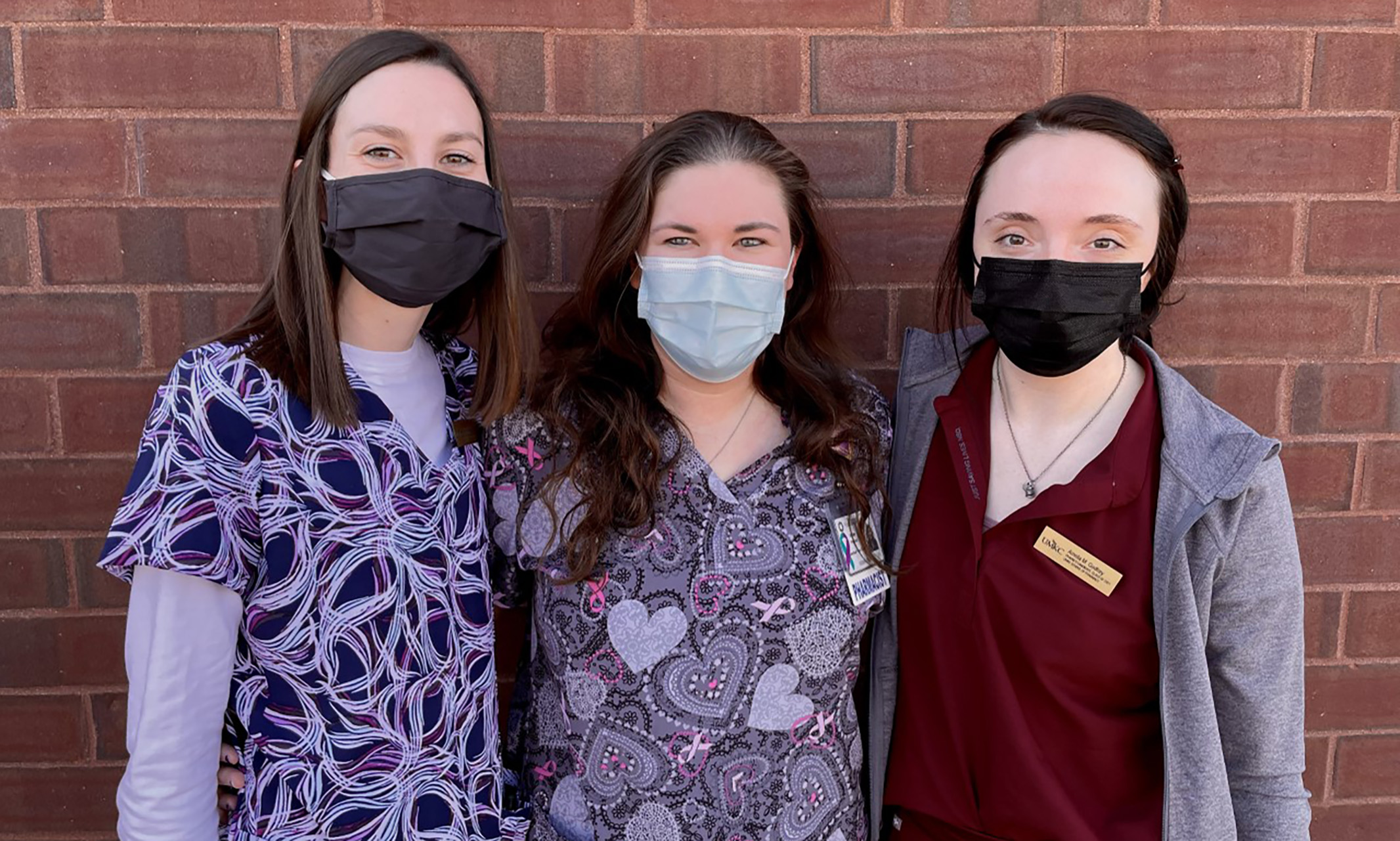
Caring for uninsured adults since the beginning of the COVID pandemic
Before the coronavirus ever swept across the globe and became a pandemic, UMKC School of Pharmacy student Amelia Godfrey had already decided to go home to Hannibal, Missouri, to do her ambulatory care rotation at the Hannibal Free Clinic.
Having grown up in the northeast Missouri community of about 17,000 made famous by Mark Twain, she looked forward to the time when she could return and be a part of giving back to the community.
“I've been interested in doing primary care, so I was really excited to come back home for a couple of rotations and be here at the free clinic to help with those patients,” said Godfrey, who spent the month of February working in the clinic. “When COVID hit, you got to play a bigger role. There's a huge need for what they're doing right now and I've seen that in my community.”
Godfrey is one of four UMKC pharmacy students who have done month-long rotations serving at Hannibal Free Clinic since the COVID pandemic began. Haley Hurst, the clinic’s pharmacist and one of only four paid staff members, welcomed the help with open arms.
“We are mostly a volunteer clinic, run by retired nurses and office staff,” Hurst said. “A lot of them had to stop coming from March 2020 through now because of COVID and these students were really a saving grace for us. It really helped us bridge the gap because we basically lost almost all of our volunteers.”
The clinic covers an area of six counties surrounding Hannibal, proving primary care services for uninsured adults from 18 to 64 years old. It serves as many as 400 patients a year with about 100 to 150 of them being part of the patient centered medical home, a program of patients who meet with Hurst and her student pharmacists for additional education and medication management.
There is a waiting list to be seen that is based on the level of need. That has only grown throughout the COVID pandemic.
Hurst meets with patients referred to the clinic to provide help with issues from diabetes, cholesterol and smoking cessation, to blood pressure issues.
“We have been so short on nursing volunteers to help with taking vitals and doing medication reconciliation for our volunteer providers,” Hurst said. “The students have been a humongous help to us.”
Lauren Damon, a School of Pharmacy student who worked at the clinic this past August, grew up just eight miles from Hannibal in Palmyra, a small community of only about 3,500 people.
“Palmyra is such a small area that there are not a lot of ambulatory care clinics like this around,” she said. “So, it was really interesting to me to see that they have this and that they can reach all the people that really need the help.”
Since their time at the Hannibal Free Clinic, both Damon and Godfrey have also taken part in rotations at the Hannibal Regional Hospital, which have included working in the hospital’s vaccine clinic.
But they say that it was their time at the free clinic that was particularly eye-opening. Hurst smiles when sharing that both students had the opportunity to experience having to convince a patient to take their medications. Damon and Godfrey said they saw how Hurst and the staff go the extra steps to fully care for their patients.
“You can learn what medicine to give a patient for high blood pressure,” Damon said. “But asking them things that you don't think about all the time like can they afford it, do they have transportation to get their medication. You really get a sense of that here, how to look at people as a whole picture instead of just, okay, we're prescribing you this medication and send you out the door.”
Godfrey said the clinic provided her the unique opportunity to spend more time talking with her patients about their medications and needs and learning how she could better help them.
“This is a free clinic and there are all sorts of things that they connect patients to,” Godfrey said. “There are services for mental health. There are services for dentists and podiatry and all these other things that Haley and the staff are looking to connect these patients to. So now the patient is being taken care of as a whole, rather than just kind of looking at them as somebody who takes a list of medications. I've been on some pretty cool clinic rotations with some pretty cool pharmacists, but this one by far was the most impactful because they are 100 percent all in.”
Mar 26, 2021
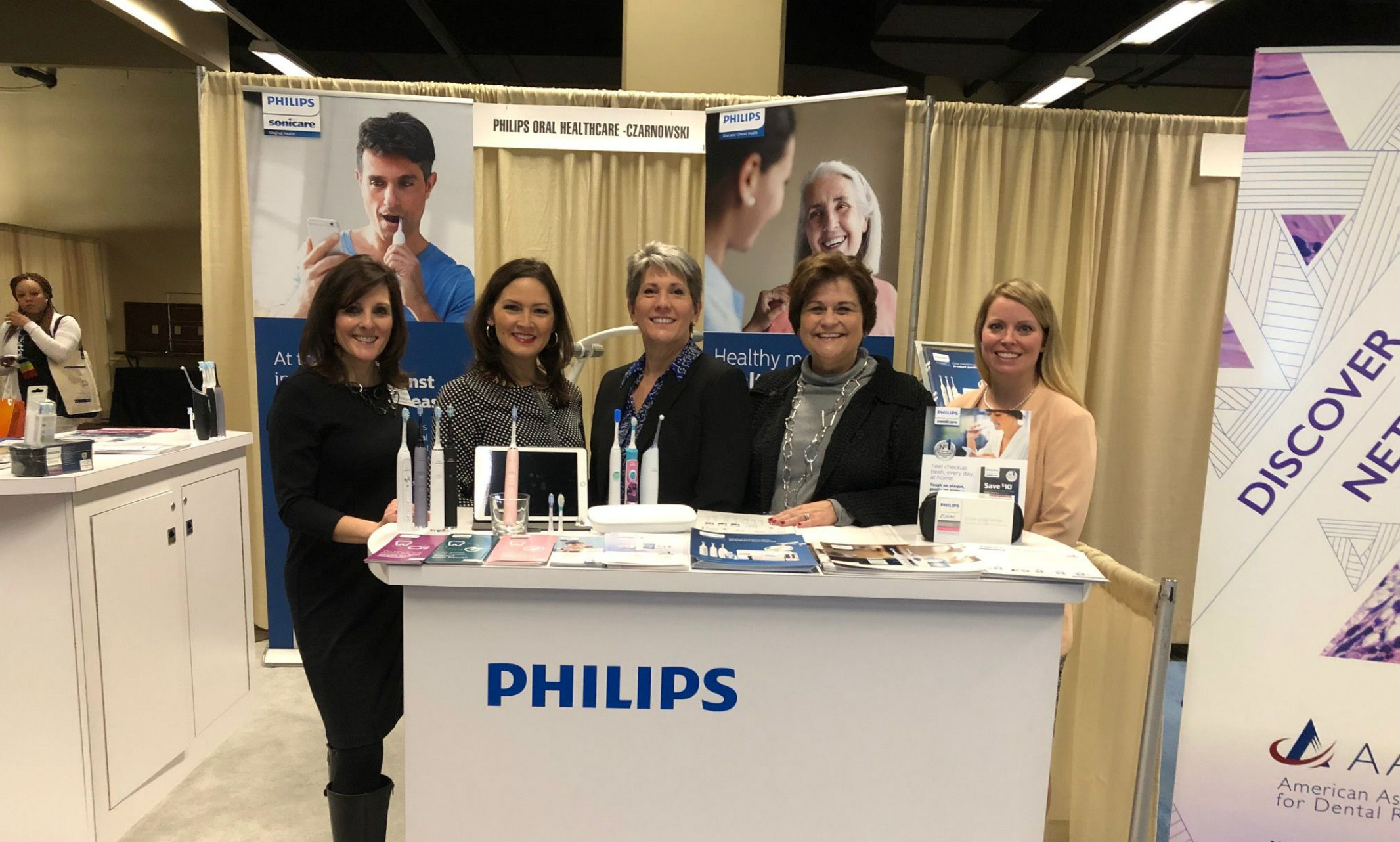
Cindy Sensabaugh receives School of Dentistry-Dental Hygiene Alumni Achievement Award
Each year, the UMKC Alumni Association recognizes the achievements of outstanding alumni with an awards celebration. UMKC is honoring Cindy Sensabaugh (M.S.D.A. ’11) with the Class of 2020 Alumni Achievement Award.
Cindy Sensabaugh(M.S.D.A. ’11)
Sensabaugh has built a career in dental hygiene education that has taken her around the globe. While she manages a team of hygienists for Philips Oral Healthcare who provide continuing education programs for students worldwide, Sensabaugh credits her education and experience as a hygienist with her success in educating her colleagues and clients. After practicing clinically for 10 years, Sensabaugh completed her dental hygiene education masters of science through the UMKC online program.
How did UMKC contribute to your success?
I learned so much from the program at UMKC that has helped me in each of my roles. I had spent a lot of time around educators prior to starting my master’s degree, but it was very helpful to have formal education on educational methodology and research.
Graduating from UMKC with my master’s and completing and publishing my research has given me the opportunity to have been selected as a reviewer for the Journal of Dental Hygiene. For most educators it probably isn’t a big deal, but for me it is.
What is your favorite UMKC memory?
Early on, the distance students did come to campus for our “micro teach” projects. Cindy Amyot hosted a party so that we could all get together informally. That is a very fond memory of my time at UMKC.
There were many aha! moments learning from fantastic professors. I am very grateful for the chance to learn from some of the very best. Though the research process was laborious, I learned a great deal and am lucky to have had such a wonderful committee (Cindy Amyot, Pam Overman and Tanya Villalpando Mitchell). They are fantastic!
What advice do you have for students who’d like to follow in your footsteps?
First, I’ve always advocated for being involved, or at the very least, a member of your professional association. Had it not been for my membership, and involvement in the Greater Orlando Dental Hygiene Association, I would not have had my first opportunity to enter the corporate world.
Second, advancing your education is always a plus. Most corporate roles require a bachelor’s degree and often a master’s degree is preferred. If that is the goal, then prepare for it by continuing your education.
About the Alumni Awards
Join us in honoring Sensabaugh and the other Class of 2020 Awardees in our first-ever virtual celebration at 5 p.m. April 16. Go to umkcalumni.com/alumniawards to register for this free event. If you are unable to attend the event but would like to donate to student scholarships, contributions can be made online.
Meet the rest of the 2020 UMKC Alumni Awardees
Mar 26, 2021
KSHB talks to UMKC students, leaders about spring break
As spring break kicks off for the University of Missouri-Kansas City, school leaders are asking students to stay vigilant. Obie Austin, director of Roo Wellness at UMKC, and two UMKC students were interviewed. Read more and watch the newscast.
Mar 26, 2021
Antoine Rozner is a UMKC Bloch School alumnus
Antoine Rozner, UMKC Bloch School alumnus and KC Roo’s Golf student-athlete, recently won the Dell Technologies Match Play Championship golf tournament. Read the Kansas City Star article (subscription requiered). After Rozner’s win, Golf Digest wrote a story, as did California Golf News.
Mar 25, 2021
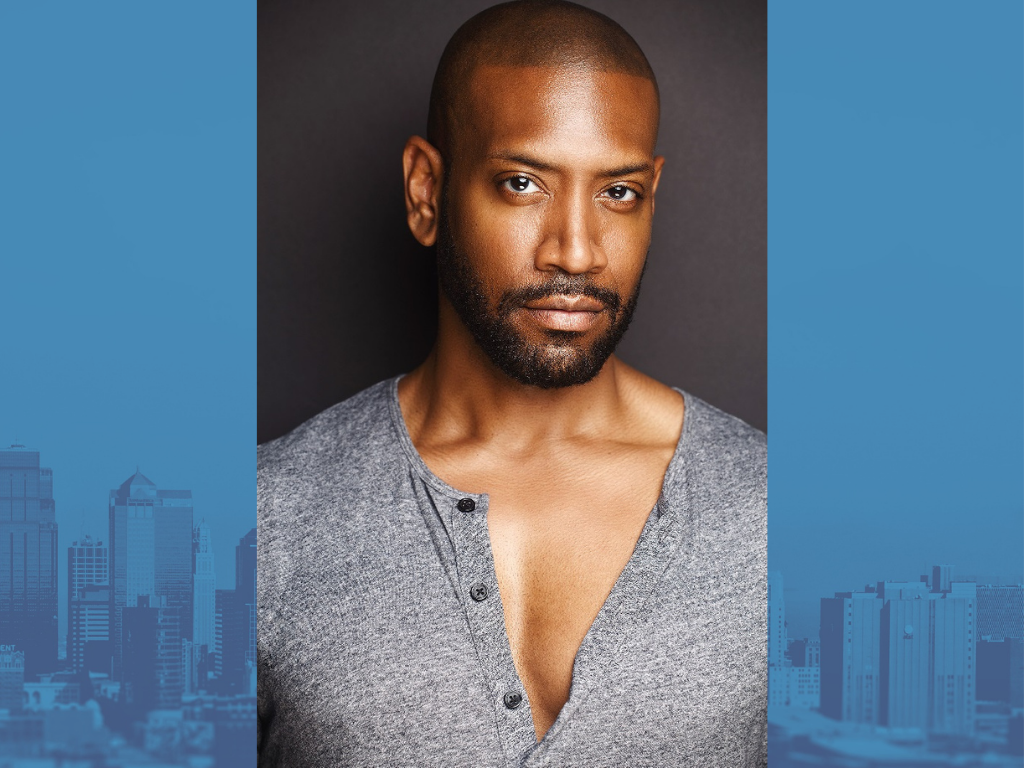
Bryan Terrell Clark shares his life story to encourage others to define themselves and follow their passion
Broadway star Bryan Terrell Clark shared anecdotes and lessons from his life Tuesday night and encouraged listeners to keep pursuing their best and truest selves on their life journeys.
Clark, delivering the 14th annual UMKC Pride Lecture, presented by the UMKC Division of Diversity and Inclusion, covered subjects ranging from hiscovered subjects ranging from his family and sexuality to finding and expressing himself through the arts and public service. Some highlights of his presentation, delivered live over Zoom, and a Q&A that followed:
Family life
He described his mother as an angel and his father as a dragon, opposites in many ways. “But they both taught me to fly,” Clark said.
His mother was a teacher who became a principal, and a Sunday school teacher who became a pastor. His blue-collar father loved his family dearly, Clark said, but ended up involved with drugs, first as a dealer and then as an addict, in and out of rehab many times.
His father’s addiction took a big toll on the family, while his mother was always taking care of others, even to the point of neglecting to take care of herself. But Clark said that when he came out to his parents as gay, it was his father who embraced him unconditionally. His father’s lesson: You have to learn to love yourself, completely. Only when his father could truly love himself, Clark said, was he able to make his addiction rehabilitation stick.
His mother’s initial reaction to his coming out was “I love you, but …” Her religious beliefs did not allow her to accept his homosexuality. But eventually, Clark said, she came around, apologized and said she loved him no matter what.
Arts and service
His mother also realized Clark’s passion for artistic expression “before I could talk.” When he heard music or saw something interesting on television, she said, he would bounce happily, immersed in the experience. So singing in the church choir was a must, and going to a high school that encouraged the arts gave him more opportunities to find and express himself.
College was a challenge, and he often skipped class to travel to New York for auditions. But when graduate school for drama seemed like the next logical step, he refused to sell himself short. He was advised to not apply to the top schools because they seldom admitted people of color, but he applied anyway and was rewarded with a spot at Yale’s drama school.
Another benefit of being at Yale, he said, came when he realized the campus was surrounded by rough neighborhoods filled with young people who desperately needed someone to see them and encourage them. So Clark stayed one summer and organized in the community, giving kids a chance to put on plays and tell their own stories.
Such involvement helped him learn about himself, too, and to find his inner resources instead of looking for definition or approval from others, Clark said. Today, his community work continues through inDEFINED, an initiative he helped found to empower young people to erase the constrictive labels in society.
Lessons to carry forward
Clark’s successes in the arts, including two stints playing George Washington in the Broadway hip-hop hit “Hamilton,” allowed him to keep learning about himself and to share his best self. It helped him greatly, he said, to trust his inner voice, follow his passion and finally quit worrying about how others saw him. Having an internal commitment to yourself is another key, he said.
“You just have to be you,” Clark said. “The labels are for someone else to understand you.”
Clark also encouraged listeners to be open to new experiences and inspirations, to find something every day that makes them happy, and to try something new every week.
Such practices, he said, help put people in the driver’s seat for their own lives and “make you a better partner, make you a better student, make you a better everything.”
Mar 24, 2021
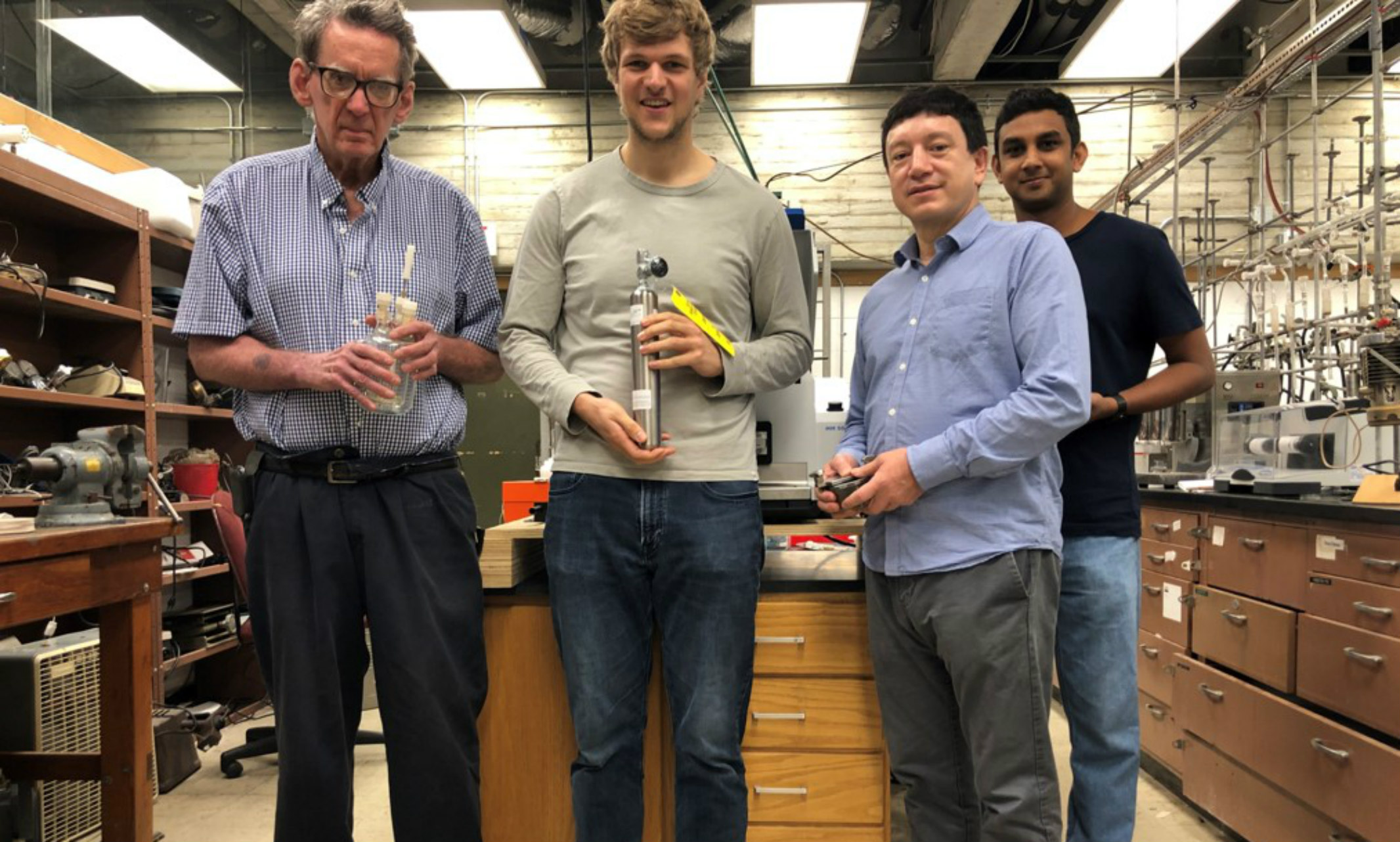
School of Biological and Chemical Sciences selects Carl Hoff to receive Alumni Award
Each year, the UMKC Alumni Association recognizes the achievements of outstanding alumni with an awards celebration. The UMKC School of Biological and Chemical Sciences is honoring Carl D. Hoff (Ph.D. ’77) with its Class of 2020 Alumni Achievement Award.
Carl D. Hoff (Ph.D. ’77)
Hoff has spent his career energizing students on the subject of chemistry. He’s recently received a grant from the U.S. Department of Energy to develop a better way to convert atmospheric nitrogen from a gas into ammonium nitrate – a critical ingredient in the production of fertilizer – that will eliminate toxic by-products, which would have a major impact on the environment.
A past recipient of the University of Miami’s Excellence in Teaching Award, scientist Carl Hoff is beloved by students for his innovative and experiential classroom techniques. Hoff has been teaching chemistry for nearly 40 years. While he has a passion for the subject, he understands that it can be a challenging subject for students.
What do you enjoy about teaching?
I had an advisor who said he could see it in his students’ eyes when they had lost interest. But the opposite is also true. You can see their eyes lift as well. In a difficult problem, sometimes you can see that light of understanding where something real was achieved.
How do you make course material engaging for students?
No one can take 50 minutes of chemistry. I learned a lot from educators at UMKC. Eckhard Hellmuth once brought in a box of assorted rubber tubing of different colors and lengths. He would reach in and grab a handful and throw it in the air, and then have the class look at it. He would repeat this several times. Each time was different, but somehow the same. It was about statistical mechanics of polymer strands. It was simple. It cost little. I try to do that at the middle of a lecture when students need a break.
You’ve received more than $2.5 million in grant funding for your work. What is the focus and goal of your grant from the U.S. Department of Energy?
We are looking for a better way to make ammonium nitrate, a key ingredient in fertilizer. The most common method developed by Fritz Haber can lead to a toxic by product that can cause algal blooms and other bad effects when misused. We’re trying to take the waste and convert it into more fertilizer, which will save a lot of money and energy and create a cleaner environment.
How did UMKC prepare you for success?
UMKC had the advantage of being a small university, where there was close student-faculty contact that wasn’t formalized or mandated.
What’s your favorite UMKC memory?
I always liked reading the saying on the old Swinney Gymnasium: “Run hard, leap high, throw strongly and endure.”
About the Alumni Awards
Join us in honoring Hoff and the other Class of 2020 Awardees in our first-ever virtual celebration at 5 p.m. April 16. Go to umkcalumni.com/alumniawards to register for this free event. If you are unable to attend the event but would like to donate to student scholarships, contributions can be made online.
Meet the rest of the 2020 UMKC Alumni Awardees
Mar 24, 2021
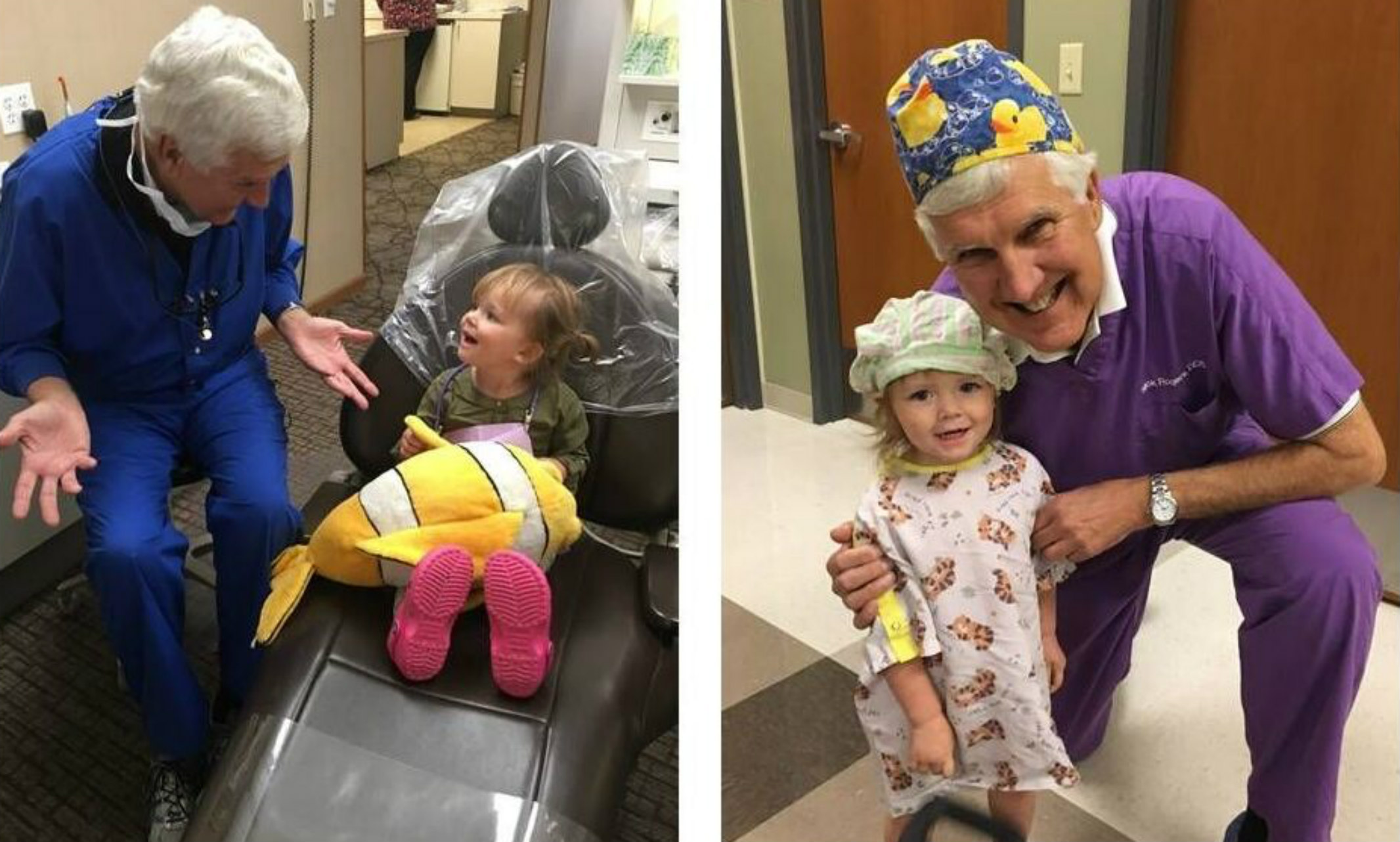
Nick Rogers to receive the UMKC School of Dentistry Alumni Achievement Award
Each year, the UMKC Alumni Association recognizes the achievements of outstanding alumni with an awards celebration. UMKC is honoring Nick Rogers (D.D.S. ’78) with its Class of 2020 Alumni Achievement Award.
Nick Rogers (D.D.S. ’78)
Rogers has served the Arkansas City, Kansas, area since 1979. A champion for children’s dental care, he secured grant money for his local Head Start program which expanded access to care for children in the region. On a national scale, he is president of the American Academy of Pediatric Dentistry’s Foundation. Rogers also devotes time to UMKC as a member of the UMKC School of Dentistry’s Rinehart Foundation board and started a scholarship for dental students. We spoke with him about his dedication to expanding access to dental care.
You’re a champion for children’s dental care — securing grant money for programs in your community and serving as president of the American Academy of Pediatric Dentistry Foundation. Where does your passion for helping children stem from?
Being a dentist in a small community, I see patients of all socio-economic levels and all ages. It became very apparent while I served for 22 years on the local school board that children were often not getting the treatment they needed. This was caused by multiple issues from lack of financial resources and lack of education to lack of availability and awareness. It became my goal to help change that to allow kids to find dental treatment and for parents to understand the need.
You recently created a scholarship at the School of Dentistry and serve on the board of the Rinehart Foundation. There are many worthy causes to support, why do you choose to give back to UMKC?
Dental school did not come easy for me. I was not accepted on my first application and my goal to graduate debt free meant working part-time jobs. I, like students today, spent many hours studying. I had much help and encouragement from others along the way.
Although the dollar amount of the scholarship is not great, I hope that it gives encouragement to students to continue their pursuit to the great profession of dentistry. I would not have made it through without help from others. This scholarship represents my thanks to those that helped me… “paying it forward.” It also represents my desire to help youth fulfill their dreams.
What is your favorite UMKC memory?
Sneaking a microfiche machine, in the days before computers, out of the library for a group of us to study for a pathology test on a weekend and returning it on Monday. (The youth in the audience will have to “Google” microfiche).
About the Alumni Awards
Join us in honoring Rogers and the other Class of 2020 Awardees in our first-ever virtual celebration at 5 p.m. April 16. Go to umkcalumni.com/alumniawards to register for this free event. If you are unable to attend the event but would like to donate to student scholarships, contributions can be made online.
Meet the rest of the 2020 UMKC Alumni Awardees
Mar 24, 2021
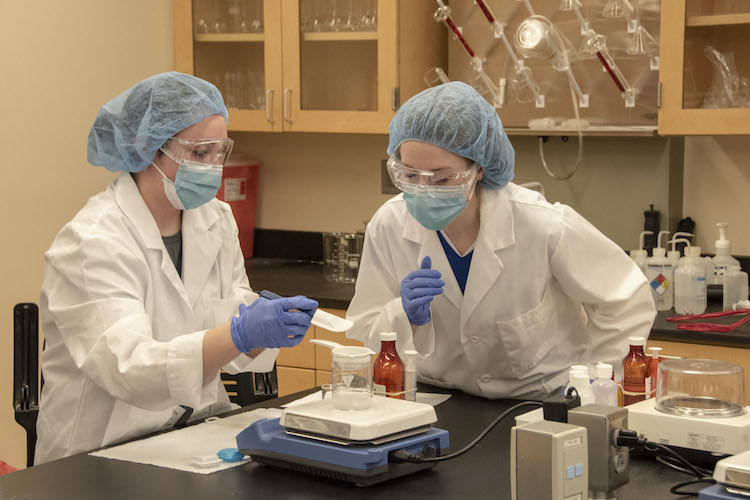
Study explores patient safety issues surrounding the use of electronic medical records during transitions of care
The UMKC Foundation has received a $35,000 gift from the Jane & Jack Strandberg Charitable Foundation, Bank of America, N.A., Trustee, that will go to support ongoing research in the School of Pharmacy.
Jennifer Ingraham, assistant vice president of the UMKC Foundation, said charitable trusts are a prudent way for individuals to fulfil their philanthropic objectives. Because they are generally treated as a tax-exempt entity, a charitable trust would typically not pay tax to the extent of any ordinary or capital gain income.
For Mark Patterson, Ph.D., M.P.H. associate professor at the UMKC School of Pharmacy, the gift is a unique funding source to support his study of electronic health records systems used to monitor patients and their prescriptions during transitions of care between hospitals and nursing homes.
The gift will benefit community related health by helping address a patient safety issue that Patterson said needs to be investigated. Part of the funding will also go to employing two pharmacy students to assist in the project, providing them training in research skills as well.
“I just feel so fortunate to have found this unique funding path and the fact that it's benefiting multiple aspects of the university,” he said.
Ingraham said the gift is unique in that it is private philanthropy supporting university research. Generally, it is federal and state agencies, research foundations and corporate research and development that provide financial support to university research.
Patterson’s project is an extension of a previous study he conducted looking at reducing medication discrepancies during patients’ transition of care between hospitals and nursing homes. That study exposed the issue of mismatched prescribing information during those transitions and the potential health risk those discrepancies pose to patients.
His latest work will look specifically at the electronic health records systems available to providers. Patterson said the interoperability of health information technology systems between providers must be as seamless as possible in order to obtain accurate patient prescribing information across the continuum of care.
“Electronic health records, and the electronic health care record systems that are available to these providers are a huge mitigating factor in regards to how accurate prescribing information is on a patient record that's being shuttled back and forth between hospitals, primary care doctors, nursing homes and community pharmacies,” he said.
The study will involve speaking with focus groups and conducting one-on-one interviews with care providers in nine different nursing homes in Missouri and Kansas.
“We’re going to very specifically zone in on how the health IT infrastructure is interacting with that goal of safe prescribing,” Patterson said. “Between the focus groups and the one-on-one interviews with providers, we’re hoping to really do almost a needs assessment for these nursing homes.”
Mar 24, 2021
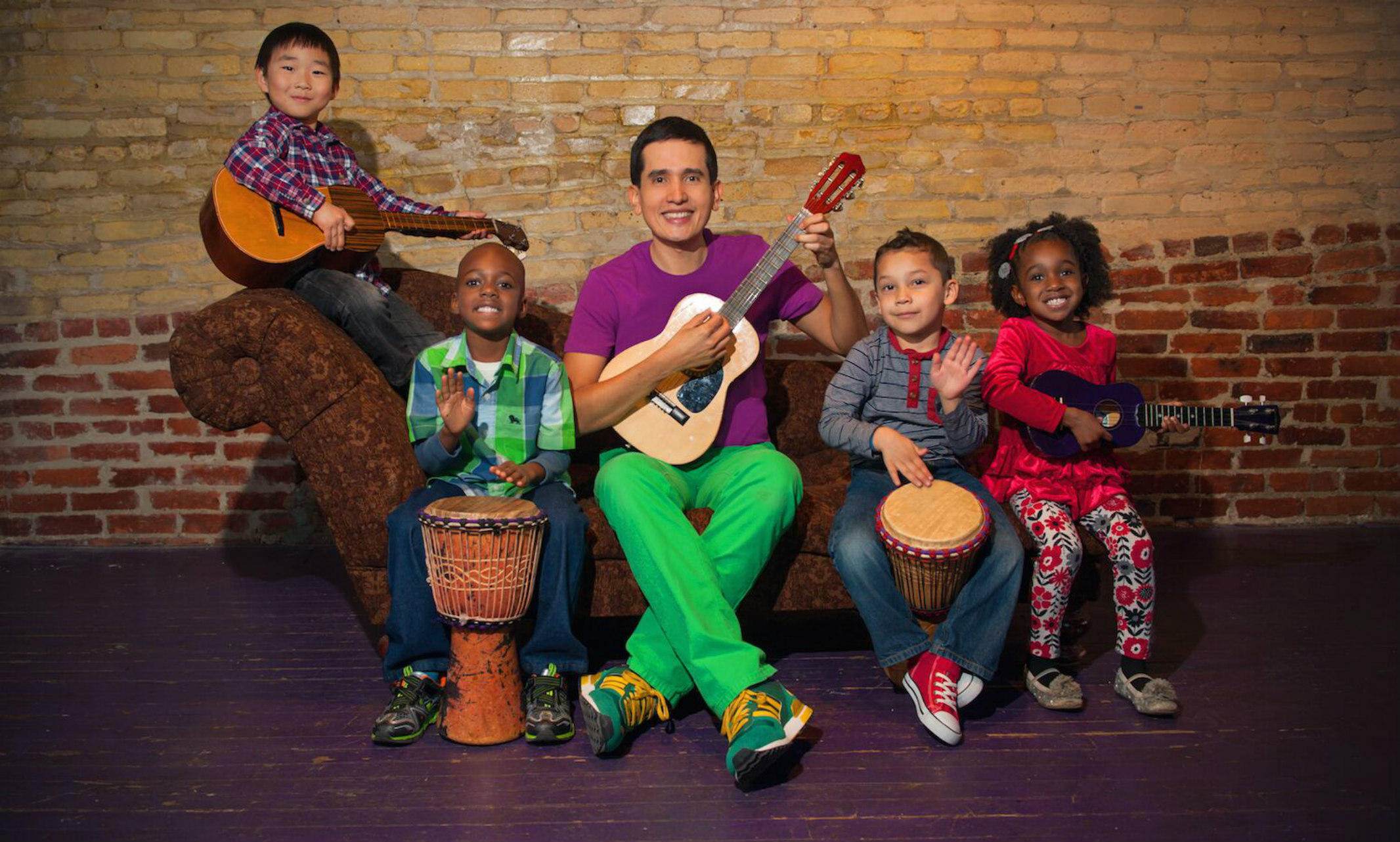
Andrés Salguero to receive the UMKC Conservatory Alumni Achievement Award
Each year, the UMKC Alumni Association recognizes the achievements of outstanding alumni with an awards celebration. UMKC is honoring Andrés Mauricio Salguero (G.R.C.T. ’11, D.M.A. ’11) with its Class of 2020 UMKC Conservatory Alumni Achievement Award.
Andrés Mauricio Salguero(G.R.C.T. ’11, D.M.A. ’11)
Along with his wife and partner, Christina Sanabria, Salguero is co-creator of the Latin Grammy-winning musical group 123 Andrés, a duo that performs music for children and families throughout the United States and Latin America. 123 Andrés has released four acclaimed studio albums, including their Latin Grammy-nominated debut, “Uno, Dos, Tres con Andrés,” Latin Grammy winner “Arriba Abajo,” and the most recent, Latin-Grammy-nominated, “Canta las Letras.” His first children’s book, published by Scholastic, debuted in 2020. We caught up with the composer, performer and multi-instrumentalist recently.
Your music teaches English and Spanish. How did you get into educational music?
When I was a young child in Bogotá, Colombia, my mom found some workbooks and cassette tapes at a used toy sale. It turned out to be “Inglés Junior,” an English learning course for children created by the BBC. They were a big part of how I learned English as a child and I never forgot them.
How does it feel to be helping children communicate better and learn foundational material from your music?
Our biggest goal for our music is to connect children and families to celebrate and learn about Latin heritage and Spanish language. We are proud that our songs support children in learning words and phrases in another language and that the underlying messages of multiculturalism, curiosity and friendship stick in their hearts and minds.
How did UMKC contribute to your success?
I am thankful for Conservatory faculty, who held us to the highest expectations. They fed my drive and nurtured a belief that I could perform at the highest level, whatever my chosen career path would be.
UMKC also offered many opportunities that went beyond the traditional coursework. I had several student work opportunities on campus that allowed me to be in different professional environments.
What is your proudest accomplishment?
Being able to give back. We have used our platform to raise awareness and funds for two amazing organizations that support children and families in need, the Greater DC Diaper Bank and Immigrant Families Together.
About the Alumni Awards
Join us in honoring Salguero and the other Class of 2020 Awardees in our first-ever virtual celebration at 5 p.m. April 16. Go to umkcalumni.com/alumniawards to register for this free event. If you are unable to attend the event but would like to donate to student scholarships, contributions can be made online.
Meet the rest of the 2020 UMKC Alumni Awardees
Mar 23, 2021
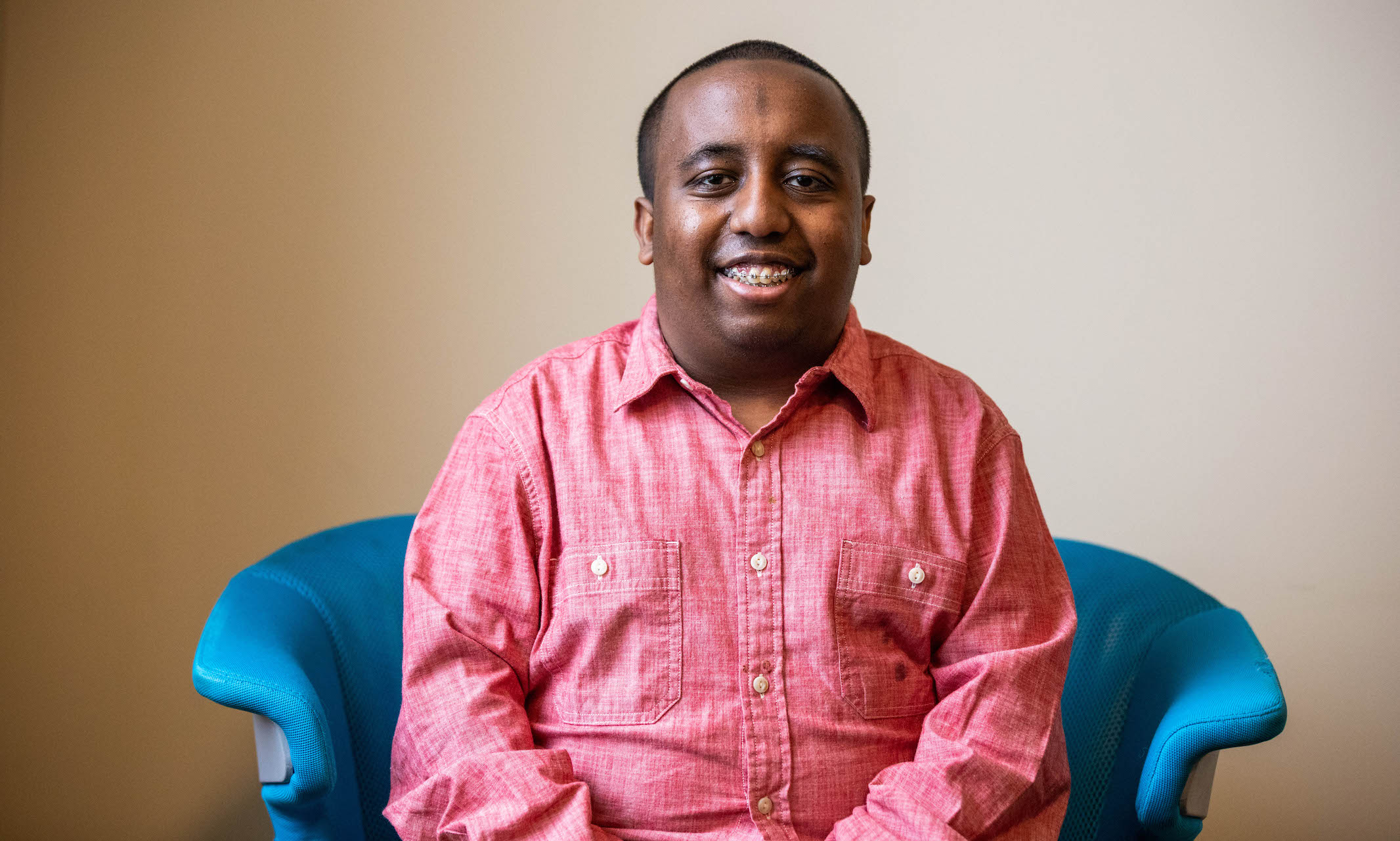
Nabil Abas builds community for himself and others
Our ongoing story starts with people from around the world, converging here at UMKC. Get to know our people and you’ll know what UMKC is all about.
Nabil Abas
Anticipated graduation: 2022
Academic program: BA’22 Interpersonal Communications Studies, minor in Sociology
Hometown: Mombasa, Kenya
Nabil Abas is a first-generation college student. While he works hard to maintain his grades, help his family and volunteer on campus and in his community, he is quick to smile, curious and engaged and determined to achieve success for himself and other people around him.
“Being a first-generation college student is extremely important, because I was the first person in my family to go through the college application process,” he says. “I had to find people to assist me in understanding FAFSA, what the college admission processes are and finding the resources that are out there.”
While the process was sometimes overwhelming, Abas has seen the benefit of figuring it out extend beyond his own success.
“It was overwhelming at times, but I use my experiences to assist my siblings, niece, nephews and community members. It means the world to me that I could be the point person that someone needed so they go after their college dreams!”
Abas’s aspirations did not stop at college acceptance. As an interpersonal communications major with a minor in sociology, he combines his interest, his experience and his knowledge from the classroom to help others.
“I chose this field of study because I love learning all about the social interactions of people, verbal behaviors and group dynamics,” he says. “My first job was working as an orientation leader. That’s what introduced me to field.”
Beyond his positive first impression, Abas has followed the lead of his professors at the College of Arts and Sciences.
“They are talented, bright, caring and experienced professors who inspire me to be the same for others in wherever I’m working at. Being around them inspires me to strive to have these qualities when I get into my field.”
"It means the world to me that I could be the point person that someone needed so they go after their college dreams!" – Nabil Abas
Still, Abas sometimes struggles with balancing school, work and family life. As the oldest sibling in his family, he has a lot of responsibility at home, but he works hard to maintain balance. He’s found it helpful to surround himself with classmates and form study groups with people who have similar passions.
“I always enjoy being able to have thoughtful conversations with my classmates on all topics on the table,” he says. “Whether that be state of our education system, social justice issues or how we could bring change to our communities. Those conversations are always the best!”
These interests reinforce Abas’s engagement in his role as president for the UMKC Men of Color initiative.
“Men of Color was created as a space where men of color and Latino males could come together to create a sense of belonging and hold each other accountable,” he says. “We do that through real-talk conversations with guest speakers, promoting positive images of men of color professionals, social media and cultural enrichment activities.”
It was Abas’s work with Men of Color that led to his involvement in the Roos Advocate for Community Change, a campus-wide effort developed to reinforce the university’s commitment to value all individuals for their contribution to the community regardless of race, social or cultural identities.
“I’m grateful to Chancellor Agrawal for creating this initiative for conversation and connection,” Abas says. “It’s been great to have conversations between Black students and university leaders like Brandon Martin, Kimberly Johnson and Keichanda Dees-Burnett. We share a mutual passion and dedication to creating a two-way street of communication between students and the university.”
"Your capabilities are limitless! This motto has helped me in every stage in my college journey." – Nabil Abas
Beyond his work on campus, Abas is heavily involved in volunteering on the weekends. He is the public relations director of Al-huda Youth Group, which helps Muslim youth in the historic northeast Kansas City neighborhoods combat the common issues or barriers that they face.
“I was lucky enough to have community leaders in my corner throughout my life, so this group is a way of giving back to my community for all they have done for us and also investing in our future leaders,” he says.
Mar 23, 2021
Local news outlets cover UMKC Forward plans
University of Missouri-Kansas City officials on March 18 announced plans to create three new schools and eliminate several existing academic programs. Read the news coverage:
Kansas City Star (subscription required) This article included an embedded link to the UMKC Forward video.
KCUR
Kansas City Business Journal (subscription required)
KSHB. This article included quotes from engineers at Burns and McDonnell and Henderson Engineers. Jenny Lundgren, provost and executive vice chancellor, was also interviewed.
University News
Mar 22, 2021
KCUR highlights School of Education alumnus
Khalil Jones is in his final semester at the University of Missouri-Kansas City and student teaching at East High School in the Kansas City Public Schools. Read more.
Mar 22, 2021
Missouri Lawyers Media features Mira Mdivani
Mira Mdivani is an adjunct professor at the UMKC School of Law and Class of 2020 UMKC School of Law Alumni Achievement Awardee. Read more.
Mar 22, 2021
Scott Fullwiler weighs-in on MMT for Bloomberg
In the mainstream models, even when governments are paying low interest rates and have room to spend, “there’s always this danger” that debt costs could spike and derail their plans, says Scott Fullwiler, an MMT economist and professor at the University of Missouri-Kansas City. Read the full article.
Mar 22, 2021

Ceremonies for 2020 and 2021 graduates will be May 15 and 16
The University of Missouri-Kansas City is pleased to announce that in-person ceremonies honoring its 2020 and 2021 graduates will be hosted on Saturday, May 15, and Sunday, May 16, at Kauffman Stadium.
UMKC Commencement at the K will be a rain-or-shine event. Please monitor weather forecasts and be prepared to participate amid light rain showers if they occur. Guests may bring small umbrellas (no golf umbrella) into Kauffman Stadium as long as they do not interfere with other guests’ enjoyment of the ceremony. For the comfort and consideration of all guests, it is requested that those using umbrellas be considerate of those around them.
In case of heavy downpours or other severe weather, UMKC will follow the Royals’ standard weather protocol. The team will make the call as to whether the ceremony must be delayed; that information will be shared within the stadium, on the MLB Ballpark app and on the UMKC Commencement 2021 web page and the university’s Twitter and Facebook accounts.
Due to the COVID-19 pandemic and safety restrictions in place during 2020, UMKC found creative ways to safely celebrate its graduates: packets of surprise mementos, lighting up Kansas City landmarks Roo blue and gold at night and virtual ceremonies with distinguished guests. In December, Kansas City native and actor Don Cheadle was the speaker.
Nonetheless, students communicated their desire to return to in-person commencement as soon as reasonably possible. UMKC leaders worked with community leaders to find a way to make this happen.
“During the pandemic, we celebrated the milestone of graduating from our university with all of the pomp and circumstance we could safely create,” said UMKC Chancellor Mauli Agrawal. “We are happy that now we can return to an in-person event that is more like the traditional ceremony we’ve come to expect – and at the home of our beloved Kansas City Royals. We are grateful that the organization could accommodate our 2020 and 2021 graduates.”
Kansas City Royals owner John Sherman said he is delighted to help UMKC graduates celebrate commencement together, at the K.
"The last twelve months have been difficult on everyone, including the education community,” said John Sherman, chairman and CEO of the Royals. “Students, teachers and administrators throughout our country have worked tirelessly during these uncertain times, so providing this opportunity for UMKC graduates to be celebrated in person, with their families, is an honor for our organization."
UMKC will host four ceremonies in Kauffman Stadium, three dedicated to the class of 2021 and one dedicated to graduates from 2020 who return for the ceremony. More than 2,300 graduates will be able to cross the stage, with COVID-19 restrictions in place. The event also will be livestreamed.
UMKC is working diligently with groups across campus to plan this in-person Commencement celebration, including External Relations, Student Affairs and the Student Government Association.
Chancellor Agrawal expressed gratitude to the community for helping to make students’ commencement wishes come true.
“These in-person ceremonies would not be possible without the many community partners who stepped up with possible solutions,” Agrawal said. “The home of the Royals is a wonderful venue and we look forward to May and the ability to celebrate together with our students and their families.”
Commencement schedule
Light Up the Night 2021
UMKC graduates and their families are encouraged to take pics around Kansas City that are lit up in blue and gold. Here's what will be illuminated:
Kauffman Center for the Performing Arts, sunset on May 15
Union Station, sunset on May 15 and 16
Kansas City Marriott Downtown, sunset on May 15
City Hall of Kansas City, Missouri, sunset on May 15
Power and Light Building, sunset May 14 to 16
The Nelson-Atkins Museum of Art, sunset May 15 and 16
Durwood Stadium on UMKC Volker Campus, sunset May 14 to 16
Roo Statue on UMKC Volker Campus
James C. Olson Performing Arts Center on UMKC Volker Campus
Local fountains will be dyed or illuminated blue all day May 15Children's FountainFountain in Mill Creek ParkSpirit of Freedom FountainThe Concourse FountainThe Women's Leadership FountainMeyer Circle Sea Horse FountainTower Park
Mar 19, 2021
KSHB features alumna Tiera Farrow during Women's History Month
Tiera Farrow. She graduated from Kansas City School of Law in 1903 and went on to lead a barrier-breaking career, and life. In 2019, Farrow was inducted into the UMKC Starr Women’s Hall of Fame. Read the article and watch the newscast.
Mar 19, 2021
UMKC students and faculty volunteer at vaccination event
Volunteers from the UMKC Schools of Medicine, Nursing and Pharmacy will also help at the mega vaccination site. Read the story and watch the newscast.
Mar 19, 2021
News of in-person commencement covered by Kansas City media
The University of Kansas City-Missouri will celebrate its 2020 and 2021 graduates with in-person commencement ceremonies at Kauffman Stadium. Read the news coverage from KSHB, KCTV5 and Fox4KC.
Mar 19, 2021
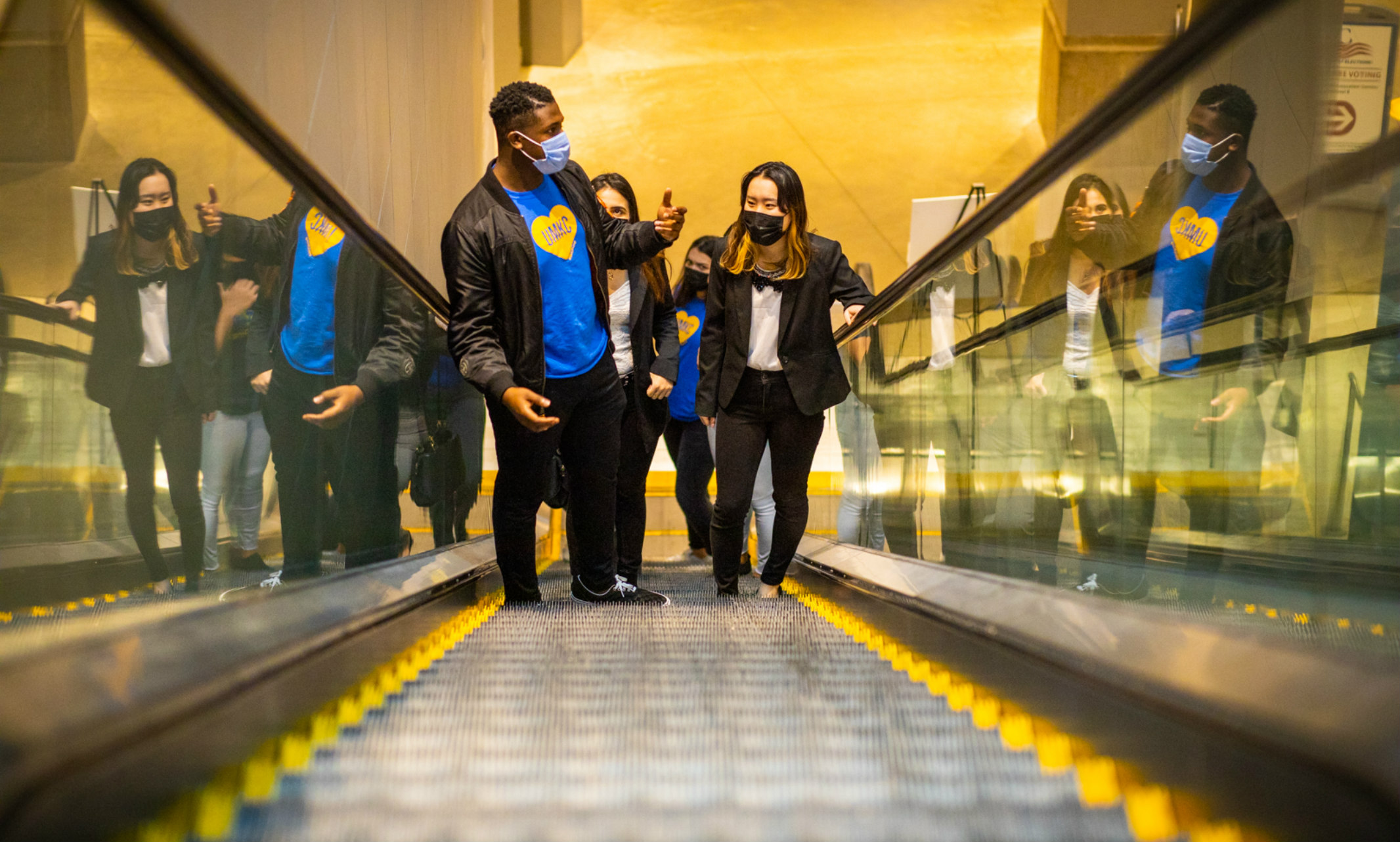
Initiative supports two key missions: public service and workforce readiness
A centerpiece initiative of the UMKC Forward plan will create the university’s signature Professional Career Escalators™ program. This innovative student success initiative includes a unique system of personalized support and services to propel students from their academic studies to good-paying careers.
University officials believe the combined features and goals of the program make it unlike anything being offered at any other college or university in the United States.
“The escalators are designed to engineer the college experience to support career attainment from undergraduate through professional training,” said Chancellor Mauli Agrawal.
The program includes signature student experiences and support programs, such as living-learning student cohorts, an entry-bridge program and advising teams with expertise in specific professions. Scholarships and other forms of financial aid will be part of the program as well.
“Professional salaries are a first step to building wealth and escaping generational poverty, and our community needs substantially more educated professionals to meet our regional workforce demand.”–
Chancellor Mauli Agrawal
Curriculum in the escalators will include for-credit applied experiences. This could include service learning, internships, or what Agrawal calls a “metromester” – like a semester abroad model, but spent in the city volunteering with a nonprofit, working with a local government agency or interning for a business.
The escalators will be open to all admitted students, but is built on research and best practice that support UMKC goals to increase retention and graduation rates of underrepresented, first-generation and Pell-eligible students.
The initiative supports two key missions of the university: public service and career readiness.
“Professional salaries are a first step to building wealth and escaping generational poverty,” Agrawal said. “And our community needs substantially more educated professionals to meet our regional workforce demand.”
Tom Mardikes, professor of theatre and chair of the UMKC Faculty Senate, said the escalators are flexible enough to work well for students who decide to change career paths during their college career.
“Many students start at UMKC to discover their major,” he said. “More, however, come with a specific path in mind. Regardless, things always change. What I like about the Professional Career Escalators™ program is that it serves as a visual metaphor for all of us — students, faculty and staff — on how to craft the means to deal creatively with that change.”
Karen King, chair of the UMKC Staff Council, said the escalators are a key element of the UMKC Forward goal of “realizing the best UMKC possible — the version of Kansas City’s University which will effectively meet the needs of the whole community.”
Staff will play an important role in executing the escalator plan. She said: “We will be working hand in hand with faculty and administration from the first steps of the escalator, through the student’s college experience and subsequently, to a rewarding career where they step off the escalator with pride.”
Initial professional focus areas for the escalators, based on workforce need and personal career opportunity, include healthcare, education, engineering/business and law/justice. Others will be added in the future in response to workforce demand trends.
The implementation schedule for Professional Career Escalators™ calls for hiring a director in Summer 2021. That director, in collaboration with working groups, will finalize escalators programming over that academic year and prepare for the official launch in Fall Semester 2022.
Mar 18, 2021

CAFE is the Center for Advancing Faculty Excellence
The UMKC Forward initiative introduces a new and expanded faculty support initiative, the Center for Advancing Faculty Excellence, CAFE.
CAFE builds on and replaces the Faculty Center for Excellence in Teaching (FaCET).
“UMKC has a long tradition of providing valuable teaching support to our faculty through FaCET," said Provost Jenny Lundgren. "CAFE will build on that foundation, offering expanded programming and resources to support all pillars of faculty life: teaching and learning, research and creativity, service and engagement, career progression and leadership development."
Tom Mardikes, chair of the UMKC Faculty Senate and Conservatory theatre professor, found the concept encouraging.
“The heart of any university is the relationship of the student to the faculty,” Mardikes said. “We are working very hard to identify ways for UMKC to be innovative in its programs and especially in how it connects our students to the city and the region. Investing in our faculty to better secure student success is a winner, and I'm very excited to see how impactful and productive this new approach can be for UMKC.”
CAFE will bring all campus-level faculty development and support programming under a single umbrella, said Diane Filion, vice provost for faculty affairs. A unified professional learning calendar, registration and attendance system will make it easy for faculty to find the programming and resources they are most interested in, while also creating infrastructure for evaluating the impact of CAFE programs on faculty and student outcomes, to ensure programming meets faculty needs.
“Investing in our faculty to better secure student success is a winner, and I'm very excited to see how impactful and productive this new approach can be for UMKC.” - Tom Mardikes
CAFE will be organized around the pillars Lundgren listed, and rather than a single director, a team of pillar leaders working with a faculty advisory board will shape and guide CAFE. Initial programs and resources planned within each pillar as described below.
See pillar chart
Teaching and Learning
Expanded campus-specific instructional support: CAFE will provide enhanced support to UMKC faculty including support for in-person and blended courses with their associated teaching tools and technologies, the Syllabus Generator, hyflex and general classroom technology.
Resources and Support for NTT and Adjunct Faculty: CAFE will include a new focused program to support non-tenure track and adjunct faculty specifically, coordinated by the pillar lead and a CAFE faculty fellow.
Course evaluations and peer teaching observations: CAFE will provide unit-level consulting and support to expand beyond traditional course evaluations for the assessment of teaching effectiveness, including incorporating formal peer observations of teaching. A new program within CAFE will prepare a group of faculty to provide peer observation and coordinate a service in which units or instructors can request a peer observation and coaching for a class. CAFE will offer the peer reviewers a small stipend for their service.
Assessment and analytics for student success: In collaboration with leadership, a CAFE faculty fellow will help design and coordinate tools for program directors, department chairs and deans focused on strengthening ongoing program assessment strategies and using data analytics to evaluate and address curricular barriers to student success.
Faculty Learning Communities: In 2019-20, UMKC started bringing together small groups of faculty from across disciplines for peer-led, in-depth learning opportunities on a specific teaching topic. CAFE will continue this program and offer a set of Faculty Learning Communities each year on topics selected and led by faculty.
Inclusive Teaching: in partnership with Diversity and Inclusion, CAFE will coordinate workshops, Faculty Learning Communities, and guest speakers focused on inclusive and culturally-responsive teaching strategies.
Mini-conference: Teaching: In past years, FaCET provided a one-day conference focused on a variety of teaching topics and typically included an external keynote speaker. CAFE will continue this tradition.
Research and Creativity
Grant-writing institutes and research mentor program: CAFE will launch a series of initiatives to support faculty research, with the signature program based on the matrix model from the University of Utah. In this model, selected faculty will engage in a yearlong program to facilitate grant writing, fellowship or foundation proposals across all disciplines. The program will provide senior and peer mentors, with extensive and intensive guidance and support for all stages of proposal development from concept to submission.
Small grants program for proposal development: Faculty can apply for funding to support proposal development through course reduction, external consultation, pilot testing and supplies.
Grant and fellowship proposal pre-submission peer review: Faculty can request a pre-submission peer review of a grant or fellowship proposal by a senior faculty member specifically identified by the Office of Research Services and CAFE pillar lead based on the reviewer’s expertise and experience relative to each proposal. CAFE will offer the peer reviewers a small stipend for the peer review service.
Mini-conference: Research: Along with the annual mini-conference on teaching topics, CAFE will design and present a mini-conference focused on timely research topics.
Service and Engagement
This pillar will have two themes and two co-pillar leaders: high-impact and community-engaged learning led by a CAFE faculty fellow and co-pillar lead, and community-based research and consulting led by a partner from External Relations serving as a co-pillar leader.
The pillar leader for high-impact and community-engaged learning will be responsible for leading the programming for faculty on designing community-based learning/service learning courses. A signature proposal involves working with the AmeriCorps VISTA program to establish partnerships at major Kansas City nonprofits for student placements with activities specifically designed for integration into course assignments. The leader also will partner with the Undergraduate Research Council, International Affairs, Student Affairs and others to design and implement programming to support faculty engaged in high-impact teaching practices.
The pillar leader for community-based research and consulting will be responsible for designing and implementing programs and services to support and expand opportunities for faculty-community partnerships.
Career Progression, Leadership and Faculty Life
New faculty orientation and non-tenure track/adjunct support: Leaders from all pillars will contribute to a new, yearlong faculty orientation that will cover all aspects of faculty life: research, teaching, service, engagement and leadership. In addition, there will be a new focused program to support non-tenure track and adjunct faculty specifically, coordinated by the pillar-lead and a CAFE faculty fellow.
Early-Career / Pre-Tenure Programming: CAFE will offer programming to support faculty in the years preceding their tenure review. This will include workshops, consultation and resources for pre-tenure faculty: promotion and tenure, creating a path-to-tenure plan, creating the tenure portfolio and making the most of pre-tenure time. Programming and resources will also be provided for department chairs and deans specifically focused on supporting their pre-tenure faculty.
Mid-Career Programming: CAFE will offer programming to support the personal and professional growth of midcareer faculty. This will include workshops focused on creating a path-to-promotion plan, exploring professional and academic leadership roles, and other resources specifically designed to connect mid-career faculty to the resources needed to chart a course for the next steps in their post-tenure years. for mid-career faculty. Programming and resources will also be developed for department chairs and deans specifically focused on supporting their mid-career faculty.
Programming for Underrepresented NTT/TT Faculty: CAFE will offer focused programming in support of the personal and professional growth of underrepresented faculty, meant to address possible barriers to their success at UMKC. These resources are designed to meet the needs specific to our Black, Indigenous, Asian and Latinx/Hispanic faculty, with a focus on fostering support and belonging and building community. Programming and resources will also be developed for department chairs and deans specifically focused on supporting the success of underrepresented faculty.
Programming for Department Chairs: Through collaborations with UM System and multiple campus partners, CAFE will offer programming and resources to support department chairs and the critical roles they play in supporting the success of their faculty, staff and students.
Faculty health and wellness: Through collaborations with UM System, UMKC HR, the UMKC Faculty Ombuds and a variety of other partners, CAFE will offer programming to promote faculty health and wellness.
Mar 18, 2021
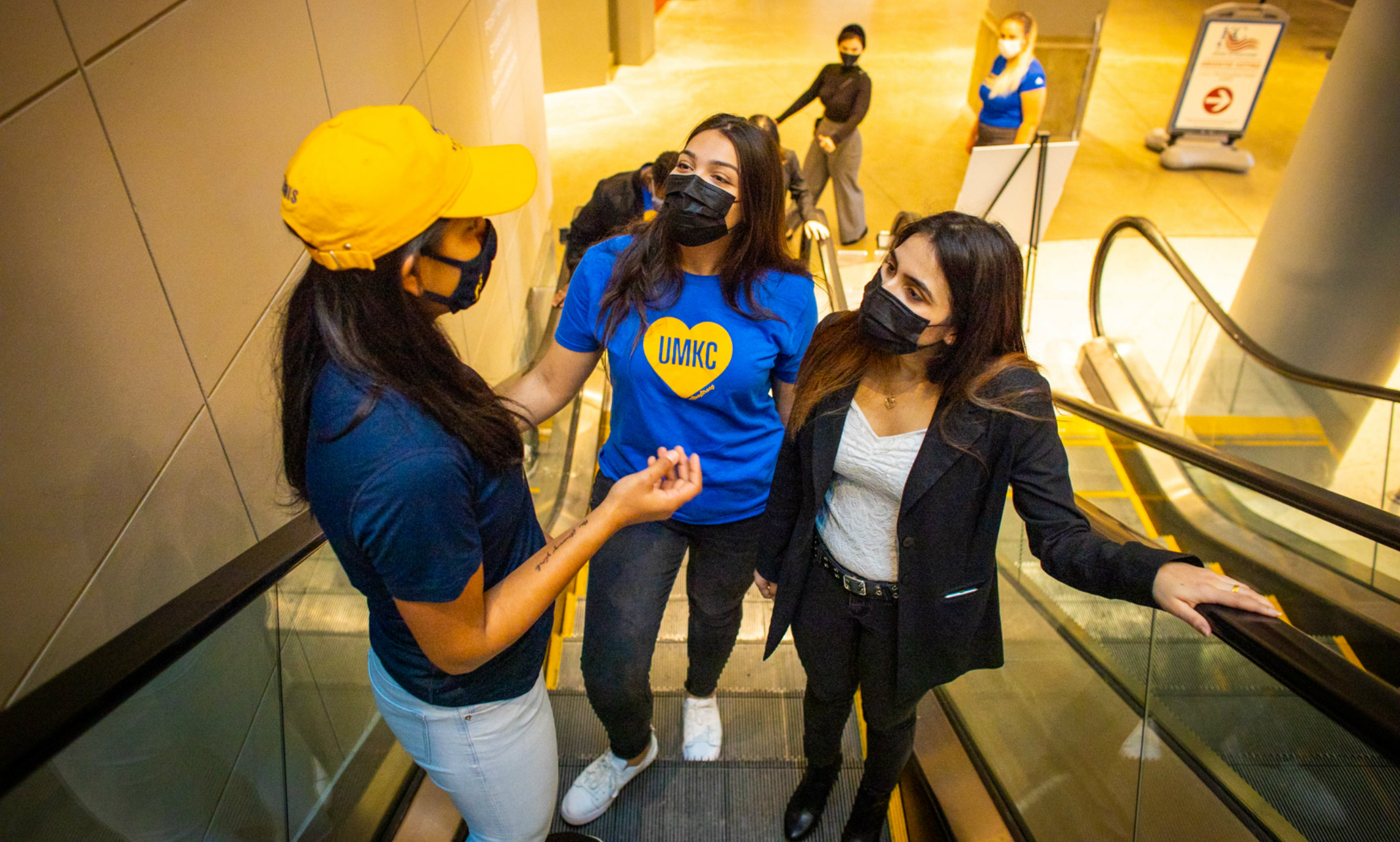
UMKC Forward will benefit workforce readiness
The University of Missouri-Kansas City rolled out its UMKC Forward plan, pledging to invest more than $50 million to $60 million over the next five years in five key investments. Chancellor Mauli Agrawal said the investments are designed to achieve growth and excellence for Kansas City’s university.
In addition, the university will spend another $5 million to hire new faculty in key strategic areas over the next three years.
Agrawal noted that higher education has been grappling with change for years, but when COVID-19 hit and added new challenges, he knew UMKC couldn’t wait any longer to create a creative vision for its future.
“To thrive in the years to come, we needed to reimagine UMKC, to envision an innovative and financially sustainable future for ourselves,” he said.
In response, he launched UMKC Forward in May 2020 as a comprehensive collaboration that included ideas and exploration by a broad-based group of faculty, staff, students and community members.
Their collective work led to UMKC Forward’s five key investments:
1. Student Success
UMKC’s signature Professional Career Escalators™ program is a unique, trademarked system of personalized support and services unlike anything being offered across the U.S. It is designed to propel students from their academic studies to good-paying careers.
“This escalator model that focuses on students that are traditionally underserved is something that universities everywhere need to do a better job of addressing, and I’m very excited to see UMKC be one of the first to do this,” said Mahreen Ansari, president of the Student Government Association and political science major.
2. Faculty Development
A new Center for Advancing Faculty Excellence, or CAFE, will feature a comprehensive program of mentoring, development opportunities and resources to support, attract and retain high-quality and engaged faculty.
“The heart of any university is the relationship of the student to the faculty,” said Tom Mardikes, chair of the UMKC Faculty Senate and Conservatory theatre professor. “We are working very hard to identify ways for UMKC to be innovative in its programs and especially in how it connects our students to the city and the region. Investing in our faculty to better secure student success is a winner, and I'm very excited to see how impactful and productive this new approach can be for UMKC.”
3. Research Excellence
To reach its goal of doubling research expenditures by 2028, UMKC will invest in building up research capacity and infrastructure, identifying high-impact research collaborations, training and mentoring researchers as well as investing in faculty hiring.
4. Career Expansion
UMKC will expand TalentLink, adding a robust offering of badges and certificates alongside high-quality professional, online and continuing education opportunities meeting in-demand needs for individuals and the companies they work for.
5. Community Engagement
UMKC will leverage its incredibly engaged community partners to create a student and faculty engagement network, increasing opportunities for students and faculty to connect with civic and business partners through internships, service learning and research.
Agrawal explained the reasoning behind each of the five investment priorities.
“Student Success is our ultimate metric; the fundamental reason we are here. Faculty Development is a key driver of student success and research excellence,” he said. “Research Excellence is essential to our public service mission; it builds available resources through grants and patents; and it is a major attraction for high-achieving new faculty and students.
“Workforce Talent Development will help us meet the needs of employers and professionals for lifelong learning, and enhances the quality and capability of our regional workforce. And Community Engagement is integral to meeting our commitment to public service as a state university.”
“The goal of the UMKC Forward plan is realizing the best UMKC possible – the version of Kansas City’s university which will effectively meet the needs of the whole community,” said Karen King, chair of the UMKC Staff Council. “The effective implementation of the UMKC Forward plan means long-term success for this institution, present and future students, and the Kansas City metropolitan community.”
Notable in this tough fiscal environment is that UMKC Forward plans do not call for large-scale layoffs or reductions in staffing.
“The effective implementation of the UMKC Forward plan means long-term success for this institution, present and future students, and the Kansas City metropolitan community.” - Karen King
Instead, UMKC Forward will realize the bulk of its funding – $50 million to $60 million over five years – by realigning current spending to these new priorities. Additional money, over time, will come from attracting new research investment and growing philanthropy, including a future capital campaign. UMKC hit record numbers on research dollars and philanthropy in 2020 and aims to continue those trajectories. UMKC also will continue its work to retain current students and attract new students, both important to the university’s fiscal health.
Some additional revenue will come from realigning academic units and closing some academic programs, but Provost Jenny Lundgren said those plans are more about positioning UMKC’s academic enterprise for excellence and innovation than about saving money.
“When we began to re-imagine the structure of our academic units, our faculty got really creative about the possibilities of developing some new synergies in the classroom and in our research,” Lundgren said. “We wanted our academic structure to reflect our commitment to our students and their needs and to create new ways to foster innovation and collaboration among our faculty in teaching and research.”
Starting in fall 2022, UMKC will have three new academic units among its 10 schools: the School of Science, Engineering and Technology; the School of Education and Applied Behavioral Sciences; and the School of Arts, Culture and Social Sciences.
Agrawal said the UMKC Forward advances will increase the value UMKC provides for all of its stakeholders.
“We will provide an environment of greater overall excellence for students, faculty and staff; solve more problems and create greater opportunities for our community; strengthen our regional workforce; and leave a more powerful legacy for future generations.”
Mar 18, 2021
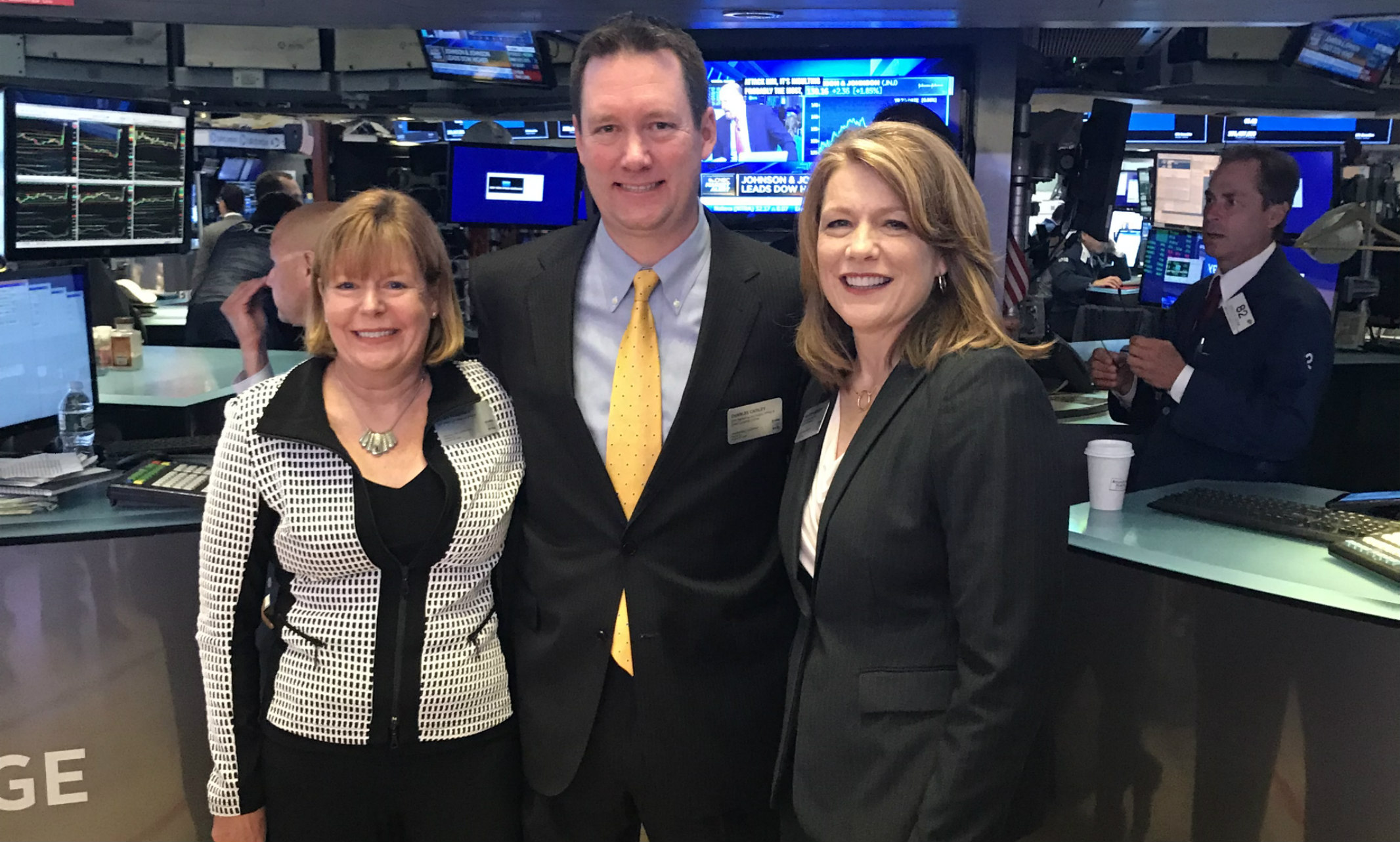
Henry W. Bloch School of Management selects Heather Humphrey to receive Alumni Award
Each year, the UMKC Alumni Association recognizes the achievements of outstanding alumni with an awards celebration. The UMKC Henry W. Bloch School of Management is honoring Heather Humphrey (EMBA ’11) with its Class of 2020 Alumni Achievement Award.
Heather Humphrey(EMBA ’11)
Heather Humphrey oversees all litigation, regulatory and corporate legal matters at Evergy, which serves 1.6 million customers in Kansas and Missouri. She serves as senior vice president, general counsel and corporate secretary for the company, which combined Kansas City Power & Light and Westar Energy.
An active member of the UMKC and Kansas City communities, she currently serves on the UMKC Board of Trustees and Board of Directors of the Greater Kansas City Chamber of Commerce. Humphrey previously served on the boards of Starlight Theatre, The Nelson-Atkins Museum’s Business Council and the Kansas City Friends of Alvin Ailey.
We caught up with her to talk about her experiences as an executive and in community service.
You have a diverse set of responsibilities at Evergy, including overseeing litigation, human resources, facilities and safety. What do you like about having multiple roles? What are the challenges?
Over the years, I’ve had the awesome opportunity to be a part of several functions within the company. The greatest part of that experience is the perspective and insight into the organization and people that is hard to replicate from any single vantage point. There are interesting problems to solve and opportunities for excellence around every corner. When you work with smart and caring people, the challenges really only come from within – time management, disciplined focus and accountability.
You’ve been involved with the Greater Kansas City Chamber of Commerce, Starlight Theatre, Nelson-Atkins Museum and more. Where does your passion for community service stem from?
I didn’t give a whole lot of thought to community service until I moved to Kansas City after law school. I didn’t know a soul in town but really wanted to connect and get involved. I quickly learned the secret of Kansas City is its cumulative devotion to public service. Once I leaned in a little, I was hooked. And it is true – the personal benefit of giving back is at least 10 times the effort contributed.
There are a many worthy causes to support, why do you choose to give back to UMKC?
I’ve seen firsthand what UMKC has to offer and am reminded every day how business and the community in general can benefit from world-class graduates committed to the region. I just want to help in any way I can. The Board of Trustees has such deep talent and experience, I am honored to be a part of the group and will lend my support in every way possible.
How did UMKC prepare you for/contribute to your success?
From the first day of class to the present, I have used and continue to use the knowledge and experience I gained from the UMKC Executive MBA program, both the substance and the relationships. A good part of it, though, is bigger than either of these – in that program, I developed a broader way of thinking. One that can be applied in different ways over and over in life.
What advice do you have for students who’d like to follow in your footsteps?
Work hard, keep (or develop) your sense of humor and don’t take yourself too seriously. Opportunities present themselves to people who engage and who seek out and solve problems. Attitude matters – positivity breeds positivity.
About the Alumni Awards
Join us in honoring Humphrey and the other Class of 2020 Awardees in our first-ever virtual celebration at 5 p.m. April 16. Go to umkcalumni.com/alumniawards to register for this free event. If you are unable to attend the event but would like to donate to student scholarships, contributions can be made online.
Meet the rest of the 2020 UMKC Alumni Awardees
Mar 18, 2021
Washington Post interviews School of Law professor about Qualified Charitable Distributions
Christopher Hoyt, University of Missouri-Kansas City School of Law professor, explained the rationale behind some Qualified Charitable Distributions rules for this article. Read the full article.
Mar 18, 2021
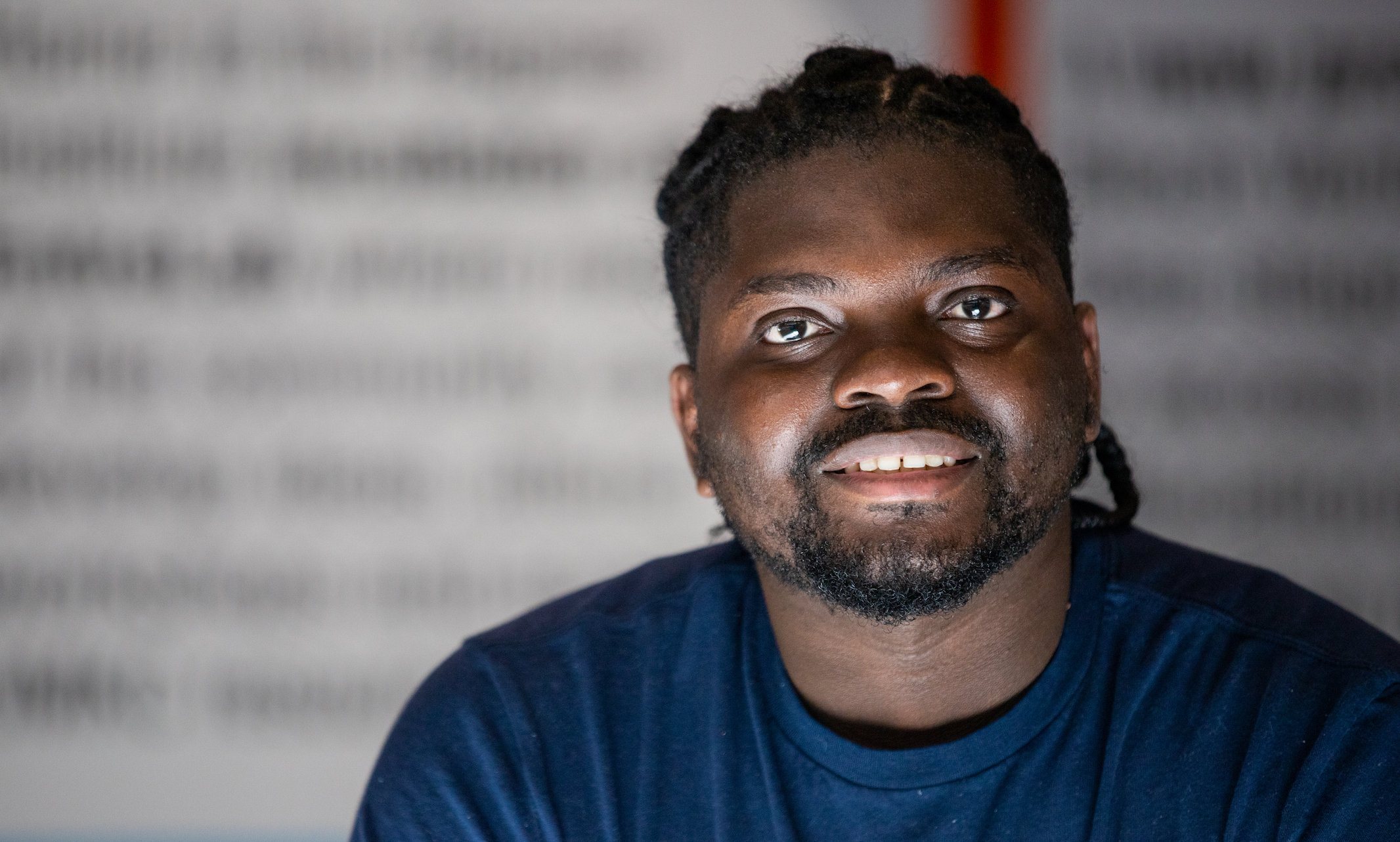
Mentorship and guidance elevate Greg Seaton’s success
Greg Seton immigrated from Ghana where he’d spent most of his young life in a refugee camp. As he prepares for graduate school, education, hard work and mentorship have been the key to Seton’s growing success.
While Seton has found his place in Kansas City, his transition was not an easy one.
“My whole family did not come to the United States,” he says. “My mom, sister and my older brother are still in Africa.”
He and his father moved in with their family members in Kansas City, and Seton felt lucky to have his cousins and other family members for support. He was in the English as a Second Language program at school, which helped with his transition as well.
“There were people interacting from various backgrounds, so I was able to relate to them better,” he says. “Then I was able to branch out from that group. It was a good starting point.”
“As I grew older, I realized that I’m a people person. I like to help people. I like to see them succeed, and I also like to lead.” — Gregory Seton
Finding his way and making the most of opportunities is a skill that Seton has developed. While he was a student at Cristo Rey High School, an urban school in Kansas City that provides college and career preparation to diverse students with economic need, he developed a mentor/mentee relationship with Bill Thompson his sophomore year.
“When I met Greg, he was very quiet,” Thompson says. “He wasn’t involved in many activities, but he had friends and was well-respected and liked. He had a real sense of himself.”
Seton shared stories with Thompson about what his life had been like in Africa.
“He walked two miles to school and stopped to fish for his family’s dinner on the way home. I don’t know anyone who makes better decisions about his life.”
“I don’t know anyone who makes better decisions about his life.” — Bill Thompson
When Seton graduated from Cristo Rey, he and Thompson decided to join Big Brothers and Big Sisters.
“They provide a lot of help with support and resources,” Seton says.
Seton enrolled in Metropolitan Community College and considered schools out of state to complete his degree.
“I had a good advisor who told me I should apply for the Bloch Scholarship. She said, ‘Greg, you are a wonderful student. I see that you are trying and I know you have a great future ahead of you. You should apply for the (Henry W.) Bloch Scholars Program.’”
Seton received a scholarship and began studying business management. He found that the faculty has been incredibly supportive to his success.
“UMKC is awesome,” Seton says. “I can’t interact much on campus just because I work full-time and have a wife and daughter at home. But the people that I’ve met, and the teachers that I have communicated with have all been amazing.”
“I’m learning a lot of real-life skills. I’ll be helping people fix problems. This is the right choice and the right degree.” — Gregory Seton
Before he came to UMKC, Seton had an interest in engineering, but he realized that management makes more sense for him.
“When I was a kid, I was always looking through trash for things I could take apart and see how they worked, which led to my interest in engineering,” he says. “As I grew older, I realized that I’m a people person. I like to help people. I like to see them succeed, and I also like to lead.”
He sees the business world as a way to utilize these skills. Thompson says Seton has always knows what he needs to do.
“I don’t know anyone who makes better decisions about his life,” says Thompson. “I didn’t envision he’d be where he is now, but his future is right there for him.”
Seton seems equally sure of his path to success.
“I enjoy the classes I’m taking,” he says. “I’m learning a lot of real-life skills. I’ll be helping people fix problems. This is the right choice and the right degree.”
Mar 18, 2021
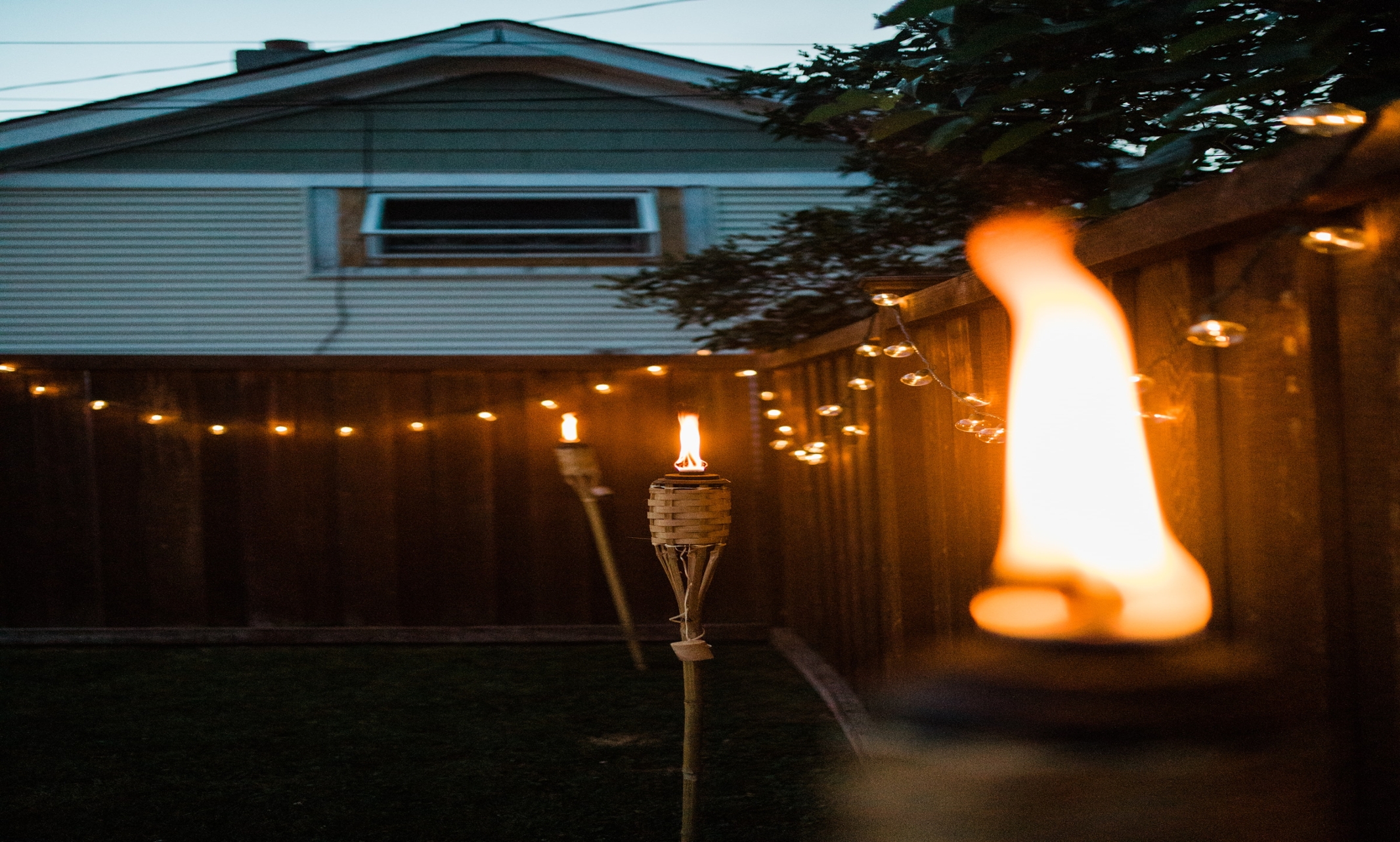
9 ideas on how to have fun wherever you are without going to the beach
While life may be different than the years before, it doesn’t mean you can’t relax and take a well-deserved break right at home! There are a lot of alternatives to traveling or gathering for spring break this year.
As concerned citizens and educated students, it is our job to be responsible and reduce the risk of contracting/spreading COVID-19 during our time apart. Here are a few things I plan to do, along with some helpful tips on how to make the most of Spring Break 2021.
1. Instead of going to a beach, you can bring a tropical oasis to your own room or house!
Decorate your space with string lights, festive tiki torches, beach balls, and make some fruity mocktails in crazy glasses. My roommate and I love to plan themed nights with different snacks and outfits to match accordingly. It’s way cheaper and safer than going out.
2. Need to get out of the house?
Go on an adventure and take Instagram-worthy pictures of the views around you. If you live in the KC metro area, there are lots of places to visit and check out! Some of my favorite areas are over at the Nelson-Atkins Museum of Art and the WWI Memorial by Union Station. Campus also has some neat hidden gems!
3. If you’re a busybody that wants to keep moving, I suggest starting a new craft or hobby.
This is the perfect time to take up running, crocheting, painting, writing, yoga, buy a plant, take a cooking class, learn to play a new instrument, join a student group or organization, volunteer, tutor, and more! Some of my new plants include a monstera my friend recently gifted me and a peace lily my roommate and I named Wall-e. Here’s a picture of them soaking up some indirect sunlight.
4. Deep clean your space!
Whether it be your dorm room, house, apartment, or wherever, spring cleaning is a MUST. I cannot stress this enough. On top of needing to stay tidy and sanitary because of the awful virus going around, it also helps clear your mind and keep you focused. When your space is cluttered, it can be easy for your mind to follow. I know I feel so much better when my area is tidy. Start with something small and have fun with it—blast some of your favorite upbeat tunes and get going! One of my go-to’s is 80’s pop or EDM :)
5. If you must travel, BE SAFE AND BE SMART
Remember to always wear your mask, bring travel sanitizer, wash your hands frequently and don’t make a lot of stops. Road-tripping with someone you live with might be your safest bet if you want to get away. Plan out a route with sight-seeing from your vehicle and try to keep your distance if you are around others for scenic views and landmarks of interest.
6. Tackle that task you’ve been putting off for so long!
We all have one, whether it be fixing the crooked hanging picture, an errand you’ve been meaning to run, re-organizing, unpacking boxes from a recent move (guilty), re-decorating, re-arranging, etc. Schedule that dentist appointment you’ve been meaning to; resources for students are available at UMKC School of Dentistry with free cleanings and more! Order from that new restaurant you’ve been wanting to try, reach out to an advisor or counselor you’ve been meaning to talk to, run that mile you keep saying you’ll do, ask someone out over the phone or try out a new dating app—do something that you’ve been needing to do or never have—and break the cycle! You’d be surprised how great it feels to accomplish something you’ve been wanting to for a while, no matter how small.
7. Take time to RELAX.
Turn off alarms, put phones away and just take time for yourself. Breathe. Sitting in silence and appreciating the little things can do wonders for your mind and help you reset. Lessen your time on social media and strengthen your time with yourself. I personally love to journal and highly suggest starting a gratitude journal. It’s easy to get caught up in the hustle and bustle of the day-to-day; don’t forget to stop and smell the roses.
8. Don’t forget about any assignments and projects assigned or due over break.
You don’t want to come back to more stress. Be sure to update your agenda and calendars with due dates and tasks for each of your courses.
9. Finally, prepare to finish the semester strong.
I don’t know about you, but time always seems to fly by in the spring, especially after break. Next thing you know, it will be May! So, keep at it and enjoy the time off while you can. We got this, Roos!
Mar 16, 2021
KCUR interviews Mary Anne Jackson
“Physician leaders from across our state of Missouri are all on the same bandwagon: we must prioritize our seniors,” says infectious disease specialist Mary Anne Jackson, dean of the University of Missouri-Kansas City School of Medicine. Read more. A similar story ran in The Pitch.
Mar 16, 2021
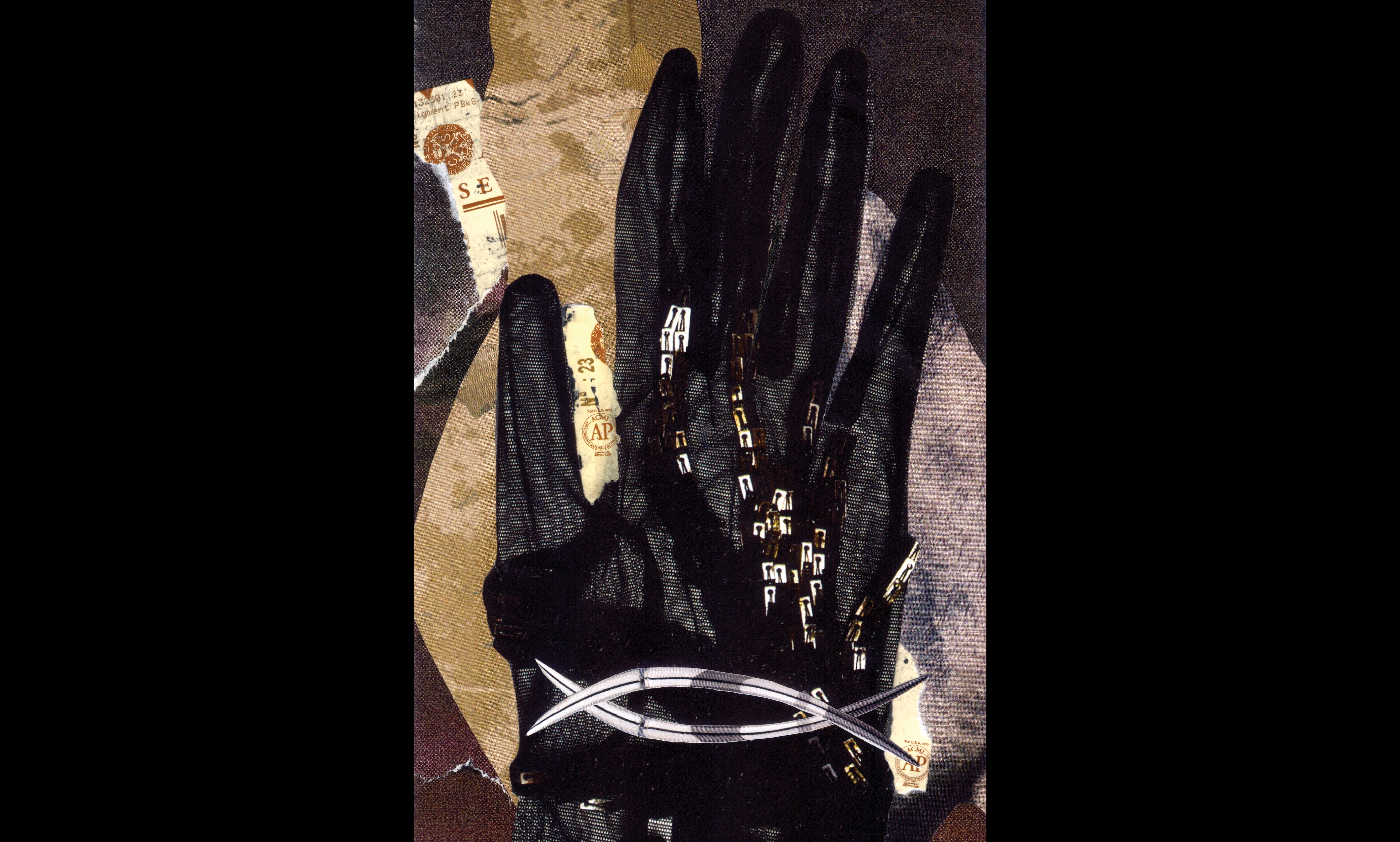
Usually a place of surgical models and data research, this UMKC School of Medicine lab is embracing its artistic side
The Surgical Innovations Lab at the UMKC School of Medicine, led by Gary Sutkin, M.D., was formed in 2016 to better understand how patient safety may be threatened in the operating room and how to make surgery safer. It approaches this mission with an inter-disciplinary team through a multitude of methodologies, including biomedical engineering, ethnography and now art.
A member of Sutkin’s team is Margaret Brommelsiek, Ph.D., associate research professor in the School of Nursing and Health Studies and the School of Medicine. Together, they are collaborating on an art and medicine project called Visual Excavation: Reconstructing Scientific Data into Visual Artifacts.
It was designed to extend the lab’s research data through visualization in the form of artist books. Brommelsiek, who is also a practicing artist, developed the images through mining data contained in the lab’s research protocols relating to quality and safety in the operating room, team communication and interprofessional surgical team interactions.
The importance of the artwork is being recognized by the artistic community as a whole. Brommelsiek and Sutkin have created five books consisting of the pieces accompanied with poems written by Sutkin and Brommelsiek. Those books are now included in the library of the National Museum of Women in Art in Washington, D.C. The institution is the only major museum in the world solely dedicated to championing women through the arts. The library’s collection includes 1,000 unique books and limited editions created by women artists in a variety of formats.
“It’s really an honor to be included in their collection and how artists and art can engage in science,” said Brommelsiek. “Hopefully, these books will inspire other future artists to collaborate in fields outside of the arts.”
By going beyond charts and graphs, Brommelsiek’s art provides a visual narrative documenting the lived experiences of the researchers. Conducting ethnographic studies, her research examines the dynamics within the operating room environment, using a humanities-informed lens and identifying parallels between medicine and art. Her finished pieces, which she describes as abstract, use collage as the primary medium to create an essence of the experiences of research processes.
“Margaret’s art and background have really opened up a window in my mind where I view my research differently and even surgery itself,” said Sutkin, who also serves as associate dean of women’s health at the School of Medicine.
According to Sutkin, this is the lab’s first foray into true art incorporation. “We’ve been making theoretical models and try to make them visual, but this is a new direction for us.”
Much of Sutkin’s research focuses on the use of a trocar, an intimidating surgical instrument used during bladder surgeries where the wrong amount of pressure can lead to dire consequences in female patients. These procedures often require working without visual cues. Through the lab, Sutkin has been able to create a surgical model that mirrors this procedure by mapping pressure used during trocar insertion. An important part of this research was having access to a cadaver.
“I wanted to really capture Dr. Sutkin’s visceral experience of the cadaver,” said Brommelsiek. “The textures, the way the surgeon’s hands were crucial, as well as the instrument itself, even the mesh that is used in the surgeries. It’s not literal, but the essence is captured in the imagery.”
This project took shape when they received funding through the KU Medical Center Frontiers Trailblazer Awards. The program provides financial support to assist with targeted research in a variety of areas of health care.
We thought it would be interesting to take three aspects of our research that had differing perspectives and extend the research data to a visual form,” said Brommelsiek. “How could we visually see the output of the research process and find meaning through a visual lens of expression?”
The backbone of their creative process is conversations around science, but also other fields of shared interest including art, philosophy, literature, films and, of course, health care. It is through this ongoing dialogue that several research protocols have emerged.
“We’ll be discussing some of the science in our research but we’ll also touch on film, visual art or novels that have a relationship to what we’re doing,” said Brommelsiek. “It all feeds into our creative process and how our research is developed.”
Mar 12, 2021
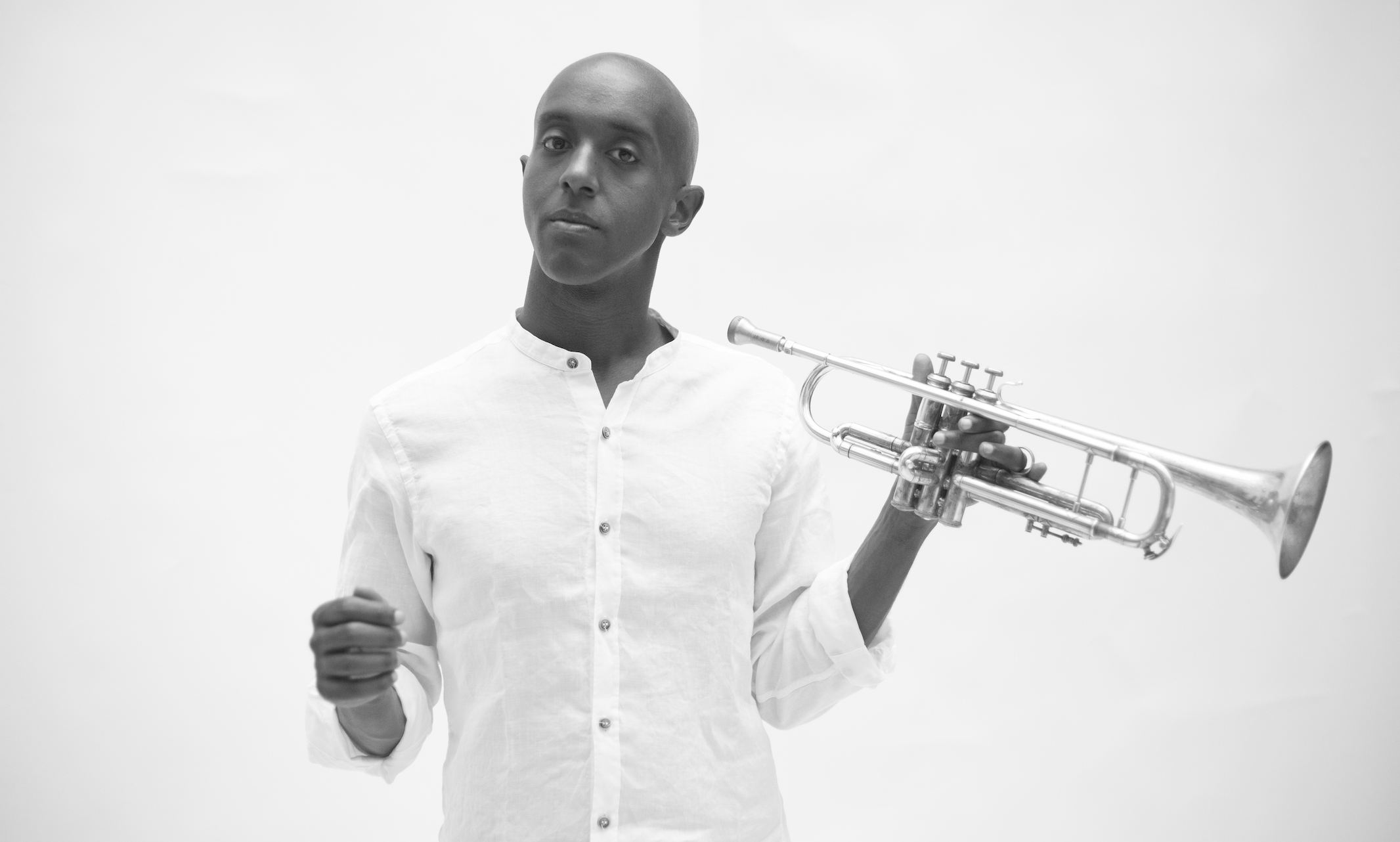
Hermon Mehari hopes to engage listeners with old favorites and new discoveries
Trumpeter Hermon Mehari (BM, ‘10) is launching, “The Session,” a new show on KCUR 89.3 from his home base in Europe. While he has deep roots and high credibility in the jazz world, his show will be a mix of old favorites and new finds.
One of Hermon Mehari’s first musical memories is his aunt giving him the Michael Jackson cassette of “HIStory.”
“I think my first favorite song was ‘You Are Not Alone.’”
While he loved Jackson and grew up listening to a lot of Motown, he did not know he wanted to be a musician until he joined the band in 7th grade. That is when his passion for the trumpet began.
“I started playing the trumpet after about a year,” he says. “I fell in love with improvisation and jazz through my classes in school. I hadn’t known anything about jazz before and started buying records and was very purposeful about it. I was reading about the history and learning the stories of the musicians. It naturally grew into an obsession.”
He had developed a passion for jazz so deep, that he applied to the top three schools known for their jazz programs.
“I was impressed by his spirit and his playing,” - Bobby Watson
“I auditioned at all of them. I got scholarships at all of them,” he says. “Then I received a phone call from Bobby Watson. Bobby is legendary and worked with Art Blakey’s Jazz Messengers. When I got his call, I had an Art Blakey and the Messengers CD on my nightstand and I was looking at it as I talked to him on the phone. He said he wanted me to come to UMKC. And I thought, ‘I want to work with someone who cares enough to call me as a result of my audition. I came to UMKC because of Bobby Watson.”
Bobby Watson, William D. and Mary Grant/Missouri professor of Jazz Studies, had heard Mehari play at a festival the year before he applied to the UMKC Conservatory.
“I was impressed by his spirit and his playing,” Watson says. “I had the chance to talk to him and it was clear he was very industrious. He has a business mind. He’s a natural entrepreneur. Even then he was always hustling, and you have to hustle.”
Once he was at UMKC, Mehari found himself surrounded by incredible musicians.
“I was immediately in a place with people who not only inspired me, but who took us out on the scene immediately. We were connected to the jazz tradition of Kansas City and the older generation that was there. But we learned from each other. I was inspired by my fellow students then and still am.”
Mehari received significant attention for his skills while he was at the Conservatory, including winning the 2008 National Trumpet Competition, but he never considered quitting school to play.
“That wasn’t a question for me,” he says. “I was a good student and my parents, who were refugees, would have been so disappointed if had quit school. In our community you don’t do that. I mean, you also don’t become a musician…”
After graduation Mehari went to Paris to explore the city and get to know the jazz scene.
“I’d been to Europe, but I’d never been to Paris. By the end of 2016 I’d moved there.”
As cities in Europe began to shut down because of the COVID-19 pandemic, Mehari and a few friends had the opportunity to rent a farmhouse in the French countryside. While he was there, he recorded his latest album, “Change for the Dreamlike.”
“I was in a good mental state. I’d written the music and had practiced a lot. I put it out for free on Bandcamp originally, because I knew that a lot of people might not be able to afford it.”
“Radio is meant to make you feel good and that’s my mission with what I do musically on the horn. I want people to feel or feel strongly, but most of all to feel good. That’s the beautiful thing about “The Session.” - Hermon Mehari
As the pandemic wore on, Mehari began to feel the strain. While he comes Kansas City three or four times a year to perform, he’s been unable to come for the last year. That makes strengthening his connection to home through his new show “The Session” on KCUR 89.3 even sweeter.
“Radio is meant to make you feel good and that’s my mission with what I do musically on the horn. I want people to feel or feel strongly, but most of all to feel good. That’s the beautiful thing about “The Session.”
Mehari had never thought he’d do a radio show, but he jumped at the opportunity.
“We’ll be celebrating Black music, which is really cool and important. But I’m also excited to showcase the diversity within this music. Some people may be familiar with jazz, but maybe they don’t know anything about music from Africa or blues, R&B or hip-hop. I want to stretch the listener. The idea is – check this out. Maybe you’ll like it or maybe you’ll like the next one.”
Mehari plans to feature a Kansas City artist in each show as well as new music, obscure music and popular music.
“It’s been really fun,” he says. “I love the curation. There’s a fine balance and I am always aware of having a few songs that are familiar to a wide range of people. The greatest compliment I could receive would be, ‘I never thought I’d like ‘X’ music, but now I realize I do.”
“The Session” with Hermon Mehari airs Saturdays at 7 p.m. CST on KCUR 89.3.
Mar 12, 2021
New music show from KCUR: The Session With Hermon Mehari
Hermon Mehari is a graduate of the UMKC Conservatory. Read more.
Mar 12, 2021
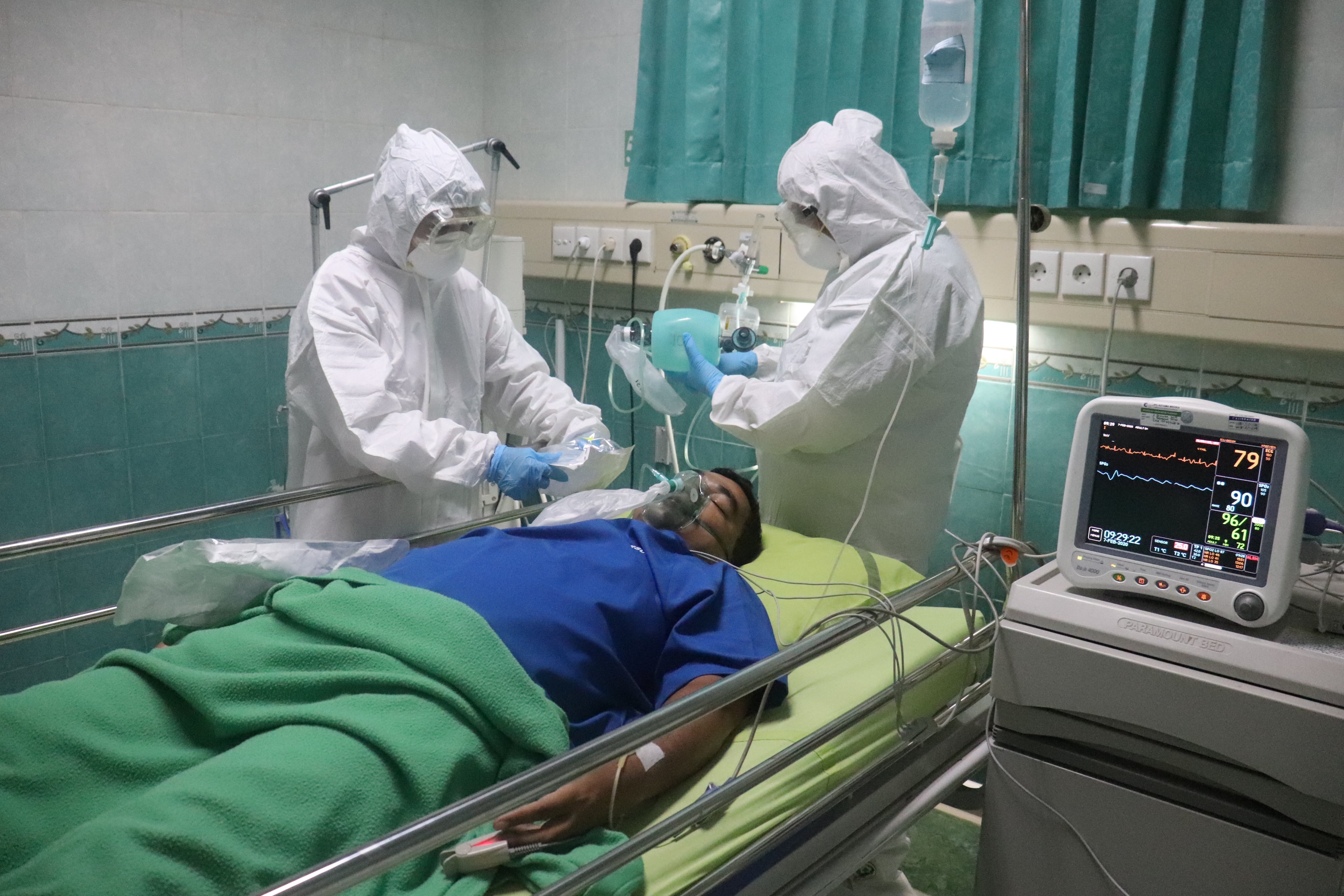
Over the months of the pandemic, alumni and faculty in every corner of health care have responded and adapted with courage and continuing creativity.
When the pandemic hit, nearly every field was affected, from architecture to zoology. In the middle of it all were health -care workers, who faced immense changes while trying to do all they could to stop the spread of the disease and help victims survive and recover.
From clinics and classrooms to research labs and executive offices, our UMKC community has worked to stem the spread of a disease unlike any other in modern history. These Roos — along with countless other UMKC students, alumni, faculty, staff and friends — are making a difference in nursing, medicine, dentistry, pharmaceuticals, health system administration and health facilities engineering, just to name a few areas.
Meet the COVID fighters
Mark Chrisman (B.S. ’02 and M.S. ’07, School of Computing and Engineering; Ph.D. ’19, Interdisciplinary Studies)
Vice president and director of the health care practice at Henderson Engineers, a nationwide firm with 12 offices, including its headquarters in Lenexa, Kansas, and Kansas City, Missouri
Alexander Garza (B.S. ’90, School of Biological and Chemical Sciences)
Incident commander of the St. Louis Metropolitan Pandemic Task Force, chief community health officer of SSM Health system and former chief medical officer for the U.S. Department of Homeland Security
Gina Mullen (M.D. ’11, School of Medicine)
Emergency room physician at Dallas Veterans Administration Hospital and Baylor Medical Center at Uptown
Debra Pankau (M.S.N. ’96 and D.N.P. ’16, School of Nursing and Health Studies)
Clinical assistant professor at the School of Nursing and Health Studies and family nurse practitioner with Northwest Health Services
Janelle Sabo (Pharm.D. ’00, School of Pharmacy)
Global leader for Anti-COVID-19 Therapeutics Platform at Eli Lilly and Company
Ahmed Zarrough, D.D.S. (Faculty, School of Dentistry)
Clinical assistant professor, School of Dentistry, who fielded calls and managed emergency dental cases while the school’s clinics were closed to most patients.
A pandemic’s progression
Like many members of the community, at the beginning of the pandemic our UMKC COVID-19 fighters didn’t dream we’d be where we are today. Each of our alumni and faculty members shared with us how the pandemic has progressed for them and the challenges they’ve faced along the way.
Early 2020
Alexander Garza writes his first situation report on the virus for the 22-hospital SSM Health system. He begins running inventory on his hospital system’s supply of personal protection equipment (PPE).
Janelle Sabo gets a call from an Eli Lilly colleague in clinical research in Shanghai. “There's some sort of virus going around,” the researcher said, “and it's really impacting our ability to continue critical clinical trials in China.”
Gina Mullen says: “Volume [at the emergency room] was down, because I think people were scared to go to the ER." The atmosphere at her VA hospital changed “to like a ghost town.”
March
Many of Mark Chrisman's projects are put on hold, and his company assembles a task force to address the emerging pandemic.
Garza appears on MSNBC to discuss the uptick in COVID-19 cases in the Midwest.
Mullen’s husband, Jim, puts his law career on hold and heads to New York to help with the pandemic response, utilizing his prior training as an emergency room nurse. Mullen picks up night shifts at the VA to help out with the influx of patients.
Debra Pankau's classroom teaching shifts online and students’ clinical hours are put on hold. “When our nursing students couldn’t be in clinic anymore, or a classroom for that matter, we turned on a dime, didn’t miss a day,” she says.
Sabo is put in charge of the team managing data tracking for COVID-19 tests at Eli Lilly. “We turned one of our parking facilities into one of the largest drive-through testing operations in the country,” she says.
Ahmed Zarrough stops seeing all his patients as School of Dentistry clinics close except for the most urgent emergencies.
April–May
The St. Louis Metropolitan Pandemic Task Force is announced, with Garza giving press briefings six days a week for several weeks.
When Mullen’s husband returns to Dallas exhausted, he quarantines in a nearby hotel. “I think that was probably the hardest part,” she says. “Being so close but knowing he couldn't see us.” Afterward, they appear together on CNN’s Anderson Cooper 360 to discuss their experiences during the pandemic.
Zarrough and the rest of the Dental Clinic staff take turns fielding after-hours emergency calls, and since the clinic closed, now every call is “after hours.” Trips into the dental school become almost surreal, “different in almost every way. The school was empty, and I had to make sure security knew I was not an intruder.”
June–July
Chrisman’s local health care engineering projects begin to move forward with new considerations, like how to keep future viral patients separate from non-infected patients. “We presented different options to dozens of clients,” he says. “Can we convert a room to keep possible COVID patients isolated until we get them into a separate room? Can we convert a waiting room just for these people?”
Garza takes on a new title: chief community health officer at SSM Health. His initial sprint to replenish PPE supplies becomes a marathon. His task force begins working to advise school districts on how to reopen classrooms and whether to resume sports programs.
Mullen and her colleagues battle a surge in coronavirus cases in the Dallas area. She helps her COVID patients connect with loved ones by using her own phone to FaceTime their families.
Pankau routinely fields more than 25 daily lab calls about positive COVID-19 tests. She finds herself personally ensuring her infected patients have groceries and medications while isolating.
Sabo begins leading Eli Lilly’s research on drugs to help people recover from COVID-19 or prevent it from developing.
September and beyond
Chrisman and his team continue to pivot their health care engineering projects as the pandemic shows no signs of letting up. “In 2015 with Ebola, health systems often considered changes but didn’t follow through,” he says. “This time I think we will make improvements and be better prepared if this isn’t the last pandemic we see.”
Garza and the St. Louis task force shift focus to planning for how to get the whole region vaccinated efficiently once a vaccine is available, whether that vaccine comes in a matter of weeks, months or even years. As a veteran, Garza reflects that “the similarities between war and a pandemic are eerie.”
A new policy provides some relief to both Mullen and her patients: Each patient is allowed one loved one or family member in their room. “I know that I’m going to be dealing with emergencies all day,” she says. “But as I tell all my patients, I know that 90% of them had no idea they were going to end up in an emergency room, so I do whatever I can to help them and reassure them.”
Pankau reflects on how the pandemic has changed both her and her field, likely forever. “COVID is a horrible thing, but I think many good things will come of this and already have,” she says. “Our online teaching and testing have improved, and telehealth isn't going to go away, especially as a way to improve rural services.”
Despite the increased stakes and urgency the pandemic brought to her work, Sabo feels grateful for the way her company and many others have responded. “One of the things I have appreciated the most is that [Eli] Lilly was willing to think about this pandemic in a super multifaceted way,” she says. “I’ve been fortunate to be involved in so many of these efforts.”
As fall classes begin, Zarrough begins to see a new silver lining to the pandemic: the slower pace it requires. “Seeing half as many patients gives us as instructors more time to spend with the students and explain things one on one and demonstrate. What we lose in quantity I think we can make up by improving the quality of the students’ learning experience.”
Mar 11, 2021
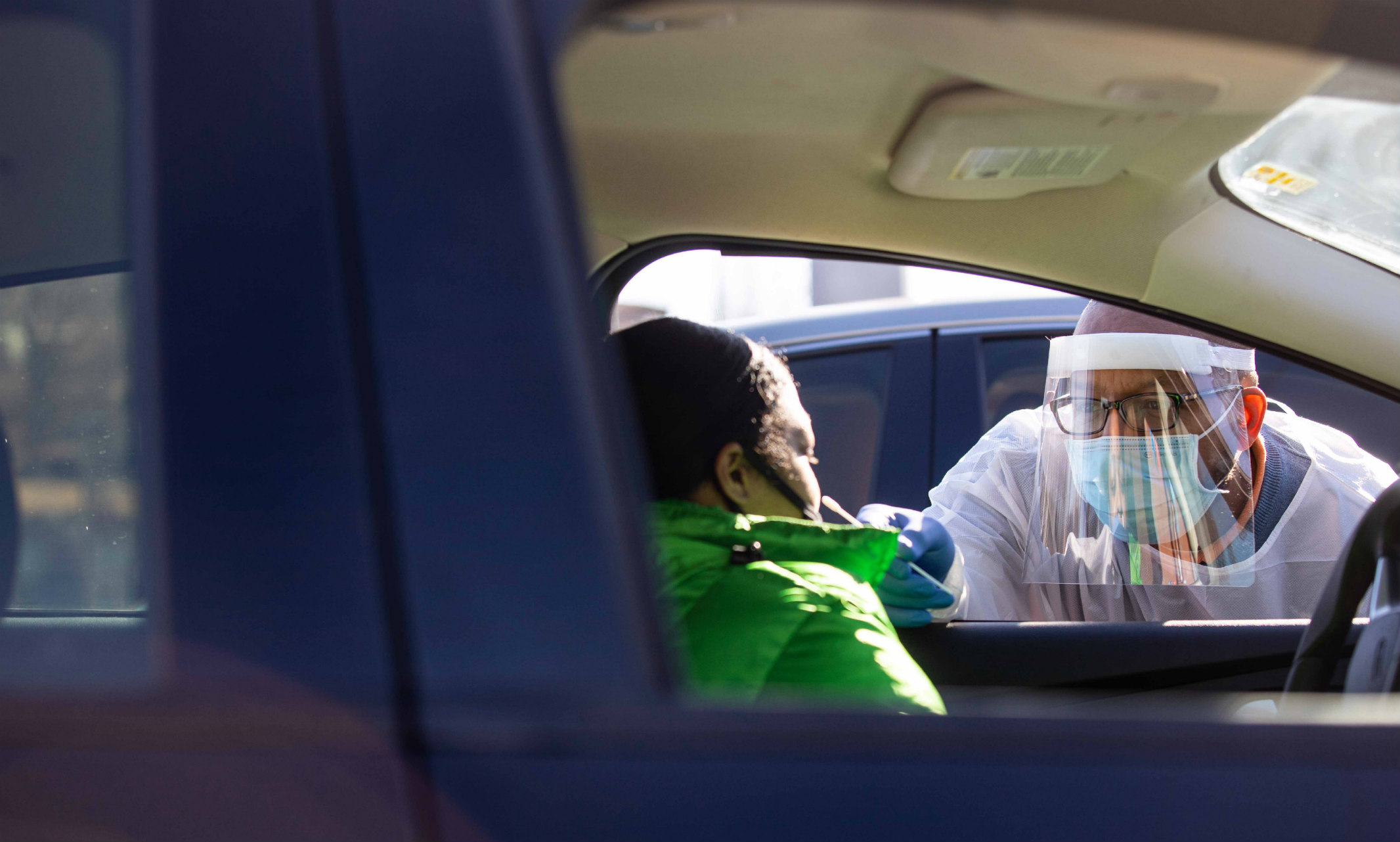
To Obie Austin, they’re both a call to service
In years to come, when you think back on 2020, what moments will stand out?
Perhaps you will remember watching the news, as stories about the coronavirus pandemic increased in volume and severity. Maybe you were sent home from work, or you had to help your children navigate online learning. You might have waited in long lines at the grocery store as people stocked up on toilet paper. Or maybe you got the call that a loved one had fallen ill or even died.
Obie Austin (M.S.N. ’99), School of Nursing and Health Studies graduate and director of UMKC Student Health and Wellness, knows one moment he’ll never forget.
It was late March. Mayor Quinton Lucas had just announced a stay-at-home order for Kansas City, Missouri, closing non-essential businesses and requiring many Kansas Citians to restrict their movement to essential activities like grocery shopping or medical care.
As he often does in times of stress or uncertainty, Austin started walking.
He walked for nearly three hours, crisscrossing downtown Kansas City. On a sunny, Saturday afternoon — the third day of spring — he saw only three people. Those he did see seemed fearful, like they “didn’t want to breathe the same air” as him.
The stay-at-home order didn’t take effect for several days. It didn’t matter
“It was an eerie, catastrophic feeling,” he says. “To be in an area that’s the bustling pride of the city, and it was shut down.”
It was just one moment in a year that, to Austin, felt increasingly like a science fiction movie.
“We are in a war for the health of our world. It’s a call to service.” – Obie Austin
The starting bell
Early in the pandemic, Austin couldn’t help but think of the H1N1 pandemic that came to the United States nearly a decade earlier, in the spring of 2009. Very quickly, though, he realized the coronavirus was going to be a wildly different experience.
“To me, (H1N1) never became scary,” he says. “This (pandemic) became scary very quickly. I felt like we were living in something we’d only ever read about.”
While the virus spread rapidly through places like New York, Texas and California, Austin could often be found in his office reading. He spent countless hours on the CDC website, trying to stay on top of a virus that is, by its nature, nearly impossible to stay on top of.
In early February, Austin dealt with his first real pandemic crisis: determining how to support a UMKC student who had recently been in China. Did they need to quarantine? If so, where? How would they get access to basic supplies like food, toiletries and internet?
Hours of research, dozens of conversations and a myriad of logistics — all for one student. One quarantine plan. Though the student never developed symptoms, as Austin puts it, “that (first) weekend went on forever.”
“That’s the moment that it clicked for me — this is the beginning,” he says. “And it was just a race from that point on.”
Once the virus reached the Kansas City area, Austin and his team played an even more integral role in the university’s pandemic response efforts. Their work became all hands on deck, pulling in faculty, staff and even students across campus to help track cases and support students who were infected and exposed.
“Things were changing every day ... It was just a whirlwind,” Austin says. “We just thought, ‘This can’t go on forever … I don’t know how we keep this pace going.’ That was a year ago.”
Then, the Navy called. They wanted Austin — a combat veteran who served in both the Navy and Army — on the front lines in New York.
Immediately, he began preparing his family, his staff and the UMKC COVID-19 task force for the possibility that he would be deployed. He didn’t know when he’d be called up — in a few days, a few weeks or perhaps not at all — adding uncertainty to an already stressful situation.
“Everything in me wanted to go,” Austin says, but his obligations at work and at home were also top of mind. “My wife was very scared of me going to New York, and she’s lived through me going away to a combat zone,” he says. “I felt this overwhelming sense of responsibility and guilt at the same time.”
In the end, Austin was never deployed. While it was hard to watch fellow health-care workers struggling on the front lines, Austin didn’t yet realize how much he would be needed at home, both personally and professionally.
A sprint becomes a marathon
As spring turned to summer, it became clear that the pandemic was getting worse, not better. Austin and his team worked around the clock to track cases and support students who needed to quarantine. On team calls, he began to notice the fatigue on his colleagues’ faces.
Meanwhile, like everyone else, Austin was feeling the pandemic’s effects in his personal life. He watched as, one by one, his daughter’s high school activities were canceled. Visits to his mother changed drastically, reduced to a masked exchange of groceries and supplies outside her apartment.
Outrage following the police killing of George Floyd added to the feeling of unrest. Across the country, people engaged in protests against Floyd’s killing and systemic racism. Blocks from Austin’s office, protesters and police engaged in a nightly standoff, tear gas wafting over a scene that Kansas Citians were more used to seeing in historical documentaries than in their own local newscasts.
To Austin, it all seemed to be building to some sort of unknown pressure point.
“It’s like the year that just kept giving,” Austin says. “Actually, I’m going to say it was the year that just kept taking — it wasn’t giving anything.”
Even 30 years in health care and multiple military deployments couldn't fully prepare him for the experience. And as a former critical-care nurse, he can only imagine what fellow health-care workers on the front lines are going through.
“I’ve worked in environments where people die a lot. I understand the toll that even one death can have,” he says. “So imagining all these folks trying to keep people alive and them still dying… I can understand the helplessness and the hopelessness in it.”
When asked how battling a pandemic compares with facing actual battles during his military deployments, Austin cites one major similarity: In both the pandemic and military combat, people die without their families holding their hands.
“I hope we gain more respect for relationships and the importance of the lives of others…I think we’ll be better. We always are.” – Obie Austin
The final push
Despite the collective trauma and fatigue caused by the pandemic, Austin says there is still much room for hope. At the time of this interview at the beginning of 2021, millions of doses of COVID-19 vaccines were headed to communities across the country. Some of his staff had already been vaccinated, and he planned to get the shot in the coming weeks.
To Austin, getting vaccinated is much more than a simple health decision — it’s a natural extension of the military and medical oaths he’s taken.
“We are in a war for the health of our world,” he says. “For me, getting the vaccination is a call to service because I feel like I have a duty to make sure this pandemic gets under control.”
Though the road to recovery will be long, Austin doesn’t discount the good things that have arisen out of this experience. He’s watched students support their peers who’ve come down with COVID-19. He’s witnessed the outpouring of support for health-care and other essential workers. He’s been able to spend more time with his daughter.
When COVID-19 is finally in the rearview, he hopes it will have taught us to take better care of each other.
“I hope we gain more respect for relationships and the importance of the lives of others,” he says. “I think we’ll be better. We always are.”
Mar 11, 2021
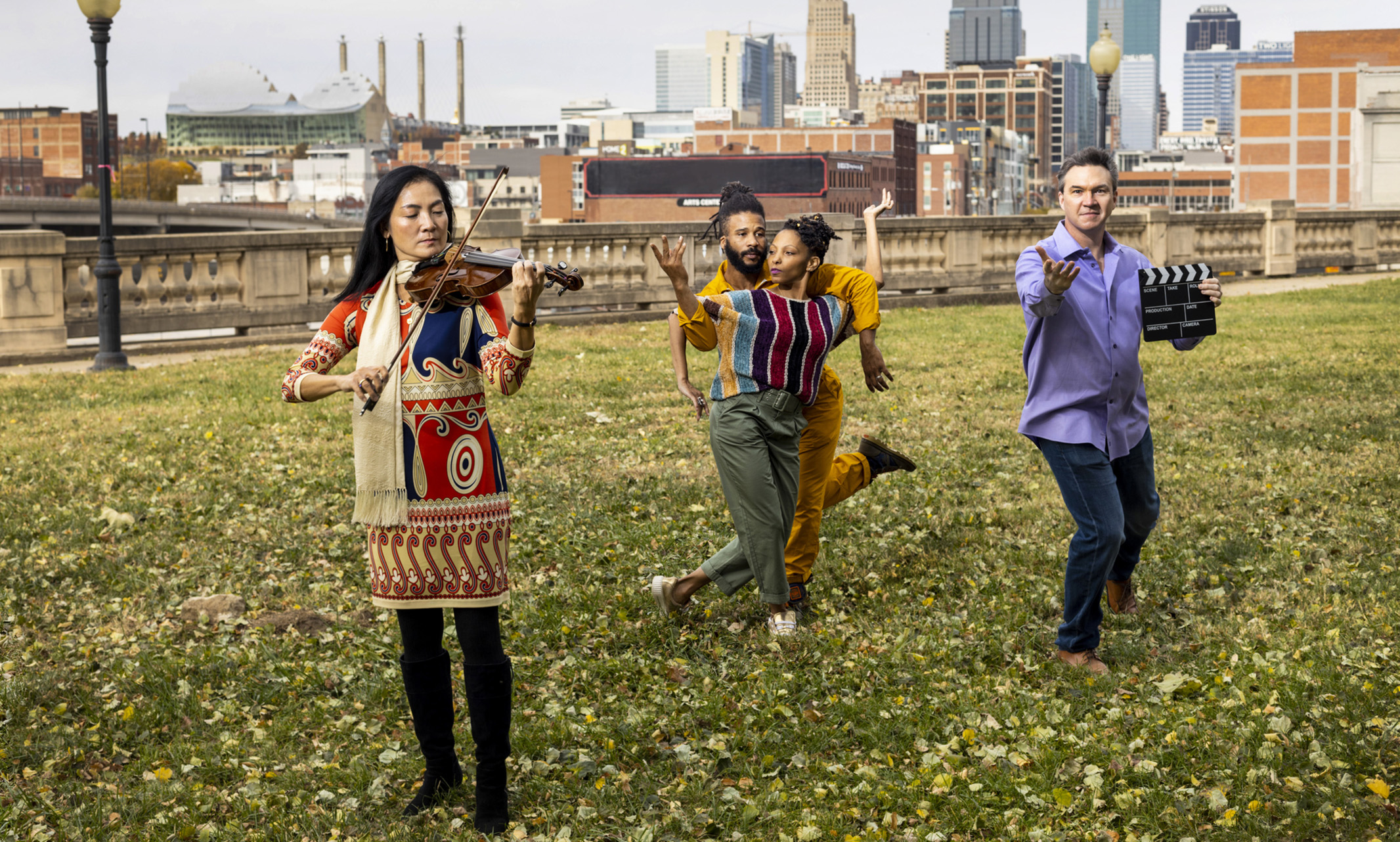
Performing arts alumni find new ways to reach audiences during pandemic shutdowns
It was the perfect Saturday afternoon in September. The sun was shining and the weather was still fine for short sleeves. Violinist and Conservatory alumna Elizabeth Suh Lane (B.M.) and her fellow musicians assembled under the shade of nearby trees to perform a community concert of chamber music ranging from Bach to Piazzolla.
A small but inspired crowd, socially distanced and masked as necessary, spread out to enjoy the free, nearly hour-long performance at Southmoreland Park near Kansas City’s iconic The Nelson-Atkins Museum of Art.
COVID-19 may have changed how things are done in the performing arts world, but Suh Lane is just one of many UMKC alumni finding new ways to bring their artistry to audiences.
“It has not stopped us,” says Suh Lane, founder and artistic director of the Bach Aria Soloists, which is hosting regular performances in a variety of live and online formats. “We are still performing. ... We’ve just pivoted the way we’re doing it.”
“We are seeing a significant increase in performance videos online to keep audiences connected. ... But it doesn’t replace the income needed for organizations to survive. We have to remember to support them through this time.” – Jane Chu (Honorary Doctorate ’10), advisor on the arts for PBS and former chair of the National Endowment for the Arts
Conservatory alumni Winston Dynamite Brown (B.F.A. ’04) and his wife Latra Ann Wilson (B.F.A. ’05) started a dance company in New York City — TheDynamitExperience — in 2018. Like many dance companies, when COVID struck Brown and Wilson had to close the doors. They moved back to Kansas City and spent the summer collaborating with other organizations.
“If there is a silver lining in this remote creativity, it’s that we’re able to branch out and reach a demographic that we wouldn’t have access to before,” Brown says. “We’re taking it outside to continue working and recording it. We’re just trying to survive this the best we can.”
UMKC theatre graduate Miles McMahon (M.F.A. ’96) has also adjusted to continue practicing his craft. The founder and instructor of Kansas City children’s theater company Theatre of the Imagination, McMahon not only took his instruction online, but performed socially distanced drama shows for other camps, many of which included the children of first responders.
“I’m an actor with a job during a pandemic,” McMahon says. “It really is about adaptation and I'm learning every day.”
That’s the key, says Suh Lane, whose ensemble had been invited to perform in Lincoln, Nebraska, in early 2020. When the pandemic hit, concert organizers asked if they would perform a virtual concert. Suh Lane agreed enthusiastically.
“Our musicians feel blessed that we can continue like this and do it safely,” Suh Lane says. “We're still offering live music, and people can be a part of it.”
Brown was recently commissioned to work with Adelphi University in New York on a six to seven-week dance project. Most of the work will take place remotely from Kansas City, but he’ll also be able to have two of his dancers assist him.
“This is a way for me to continue to create and to help them financially. It’s a way to help my creative community,” he says.
McMahon and his students are staying positive as well. Using cell phone cameras, the students created their own silly commercials and short, scripted productions. They’ve become such a hit that Nickelodeon called asking his students for virtual auditions. An internet production company in Australia even purchased one of their scripts.
"We sold it for $25, so every kid in that class got $2.50. They were so excited,” McMahon says. “Often, times of great adversity produce great art. And so here we are, the Kansas City theater community, doing our best to keep the performing arts alive during this challenging time.”
Mar 11, 2021
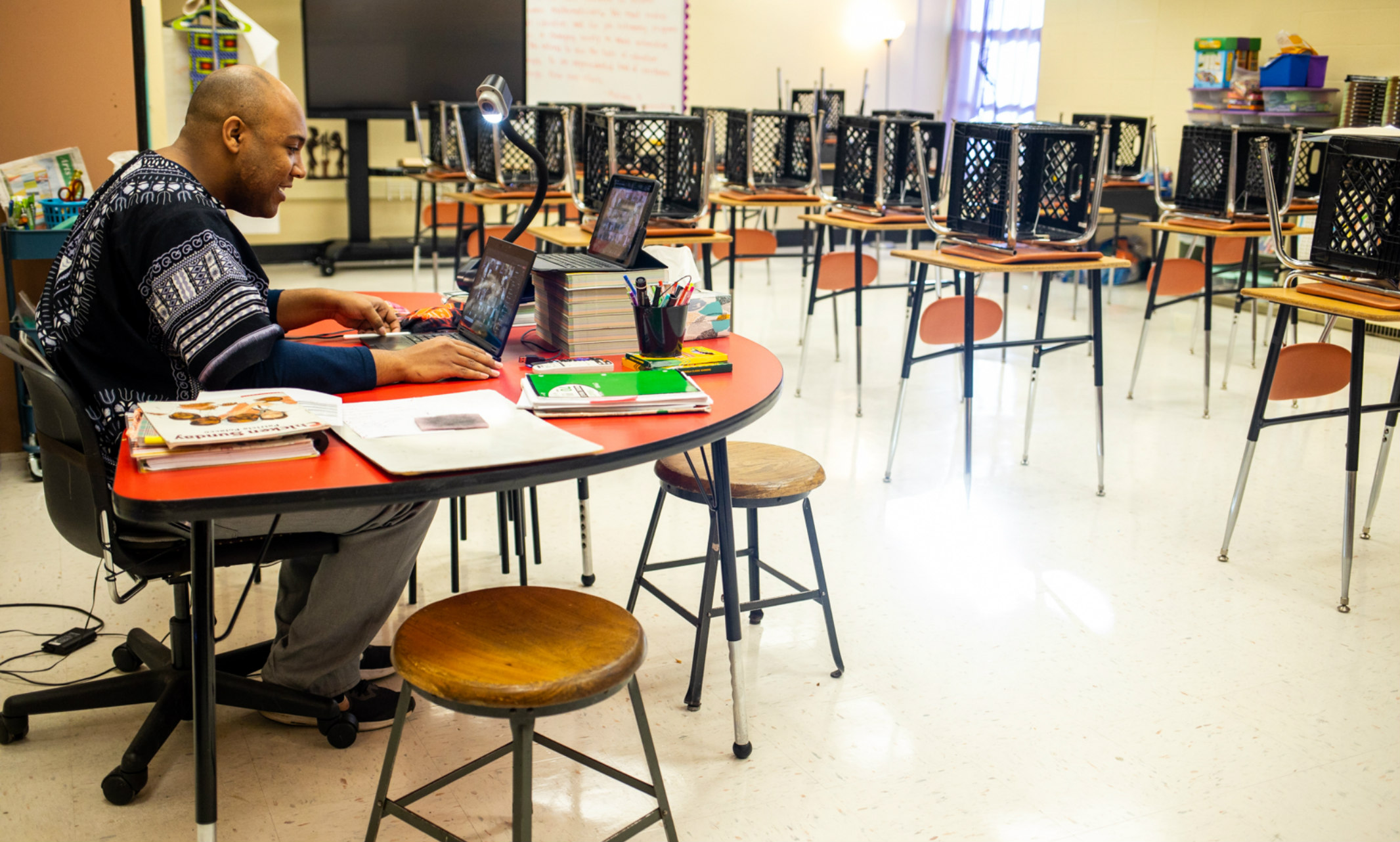
How teachers and students are adjusting to a very new normal
The COVID-19 pandemic interrupted life as we knew it, caused the world to collectively pause and, eventually, shift to a new normal.
Its specific effects, however, are not universal. It has caused varying challenges for people of all generations, social classes and walks of life, especially teachers and children as the shift to online learning brought to light a new set of challenges — and opportunities.
We spoke to two of UMKC’s many alumni working to juggle different teaching formats, student needs, technology requirements and more in their classrooms about what the experience has been like — both for them and for their students.
Adapting to the new normal
For School of Education alumni Marquis Hall (B.A.’16; M.A. ’19) and Deborah Siebern-Dennis (B.A. ’05), the pandemic has created very different realities for their classrooms.
Hall teaches at African-Centered College Preparatory Academy, which uses African-based projects to provide a unique cultural education to students in Pre-Kindergarten through 8th grade. Located in the heart of the Kansas City, Missouri School District, the academy was 100% online in Fall 2020 due to COVID-19.
Though it’s been difficult for Hall’s students to be separated from their friends and in-person help, he says they’re staying resilient.
“They can do anything,” Hall says. “They grew up using technology, so some of these kids can use it better than their teachers!”
Siebern-Dennis is a 7th grade science teacher at Bode Middle School in St. Joseph, Missouri, outside Kansas City’s urban core. As of late 2020, her classroom was in a hybrid model, meaning that in any given class period, she was teaching half of her students in person, with the other half tuning in online via Zoom.
“The biggest struggle has been to try to find a balance between giving my in-class students the attention they need while also providing my online students the same amount of attention during the same class period,” Siebern-Dennis says. “We are basically running two classrooms at the same time, and I just worry that my students are falling behind.”
Deborah Siebern-Dennis (B.A. ’05) is a 7th grade science teacher at Bode Middle School in St. Joseph, Missouri, outside Kansas City’s urban core. As of late 2020, her classroom was in a hybrid model, meaning that in any given class period, she was teaching half of her students in person, with the other half tuning in online via Zoom.
Virtual learning for every student
Both Siebern-Dennis and Hall agree that a difficult situation becomes even harder when students are facing challenges from food insecurity to access to technology. School districts spent the weeks leading up to the Fall 2020 school year racing to source laptops and internet hotspots to families in need.
Yet, for both alumni, it helps that the parent-teacher partnership is better than ever, allowing them to find innovative ways to reach students — whether they’re at home or in the classroom.
“We are in such an educational unknown right now that I feel the best way to support our students and families is to make the best out of our 'new normal' and remain as positive as possible,” Siebern-Dennis says.
“One thing I’ve learned is that you can’t take an in-person classroom and expect it to work online,” Hall says. “We have the opportunity to get creative in the way we teach.”
He’s reinvited his classroom structure and found various ways to incorporate much-needed interaction through morning breakfast, small groups and YouTube videos related to the lesson.
Heavily reliant on video creation for science labs, Siebern-Dennis spent the beginning of the school year pre-recording demonstrations and encouraging students to make predictions on what would happen next. Now that her school has shifted to a hybrid model, though, she’s re-strategizing how to engage both online and classroom students in lab activities.
Where we go from here
So after quite an interesting year, what do our alumni educators hope for the future of education?
“I’m hoping we can give our students more flexibility and grace,” says Hall. “In elementary school, we’re way too tied to standards and outcomes. Moving students academically is the goal, but we’ve learned that there’s so much more we need to be doing for them. We need to make sure we’re meeting the whole child.”
“Ideally, I want my kids (in person) every day! But I’ve seen that there are kids who learn better virtually,” Siebern-Dennis says. “The more options we have, the more we can help them in the way that they learn best.”
Mar 11, 2021
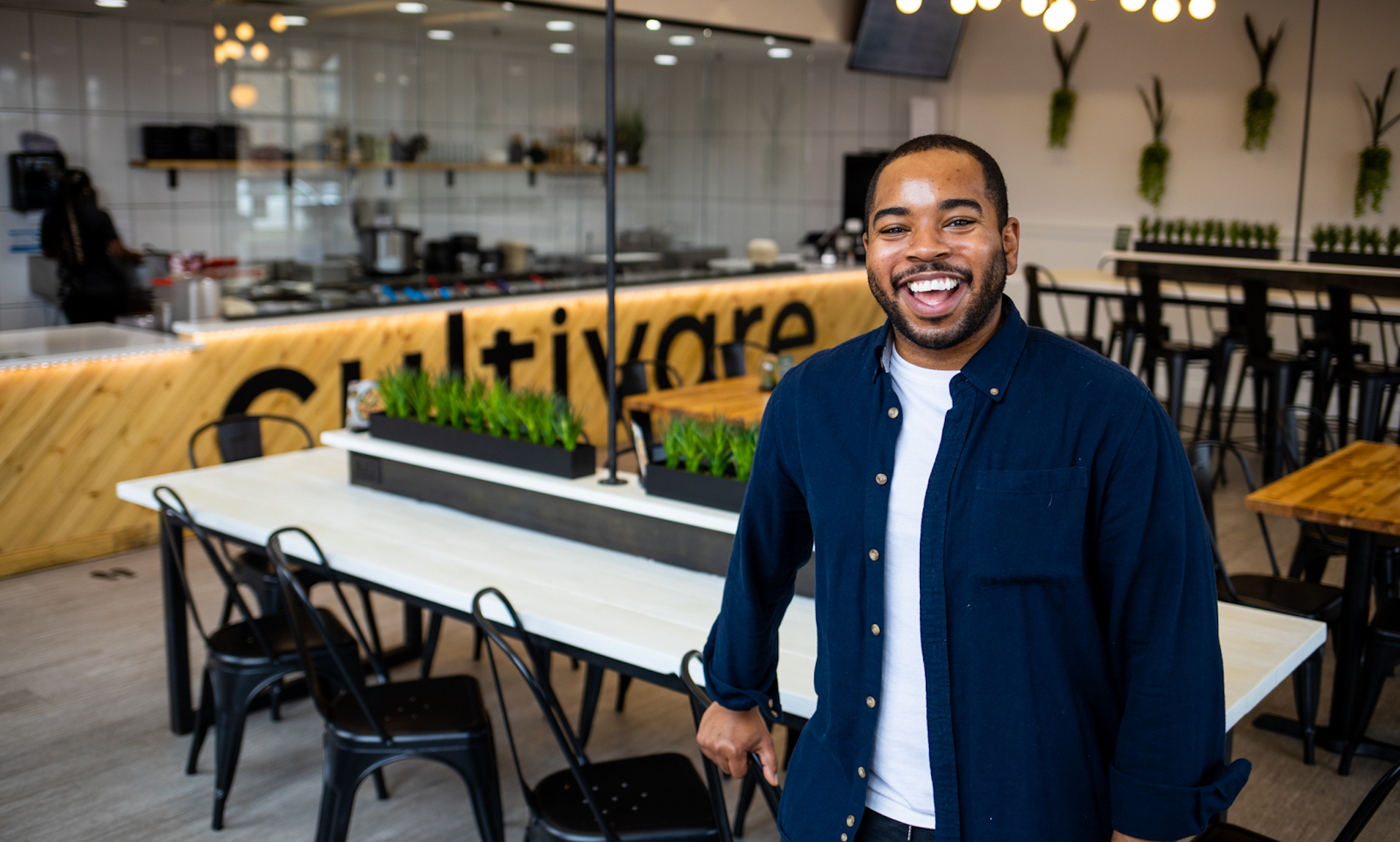
Ingenuity and flexibility are key for food and event service businesses
to survive the pandemic
While all businesses have been deeply affected by the COVID-19 pandemic, restaurants, bars and their suppliers face the challenge of simultaneously staying afloat financially, keeping people safe and trying to provide their customers the quality and experience that makes dining out or carrying out both respite and an everyday celebration.
We spoke to three of the many UMKC alumni working to keep their businesses afloat about the innovations that have kept them in the game.
Kasim Hardaway (B.S. ’15, Arts and Sciences)
Kansas City food influencer and recipe developer Head of research and development, Cultivare restaurant
What was life like for you during the COVID-19 shutdown?
The shutdown was indescribable for my professional life. Prior to the onset of COVID-19, I was seeing a sharp upward trajectory across all of my businesses. I was crushing goals, expanding my client base and even starting new ventures. Immediately upon the shutdown, however, all of that came to an abrupt (and scary) end. I lost over 80% of my contracts and work dried up in a snap.
How have you pivoted during the pandemic to continue to serve customers?
Pivoting during the shutdown was really grounded in being gritty and getting back to basics. I tapped into my network, doubling down on that hustle mentality and extending myself across all my service areas. I put all of my skills to use — collaborating with brands on recipe development, pivoting my food photography to resound with people being at home and offering marketing consulting based on client revenue growth.
I’ve always considered myself a jack of all trades. Being able to tap into one service area that was seeing growth and halting on another that wasn’t gaining traction allowed me to remain flexible but in demand in my sphere of business.
How do you see your restaurant/bar being different in the future because of the pandemic?
With restaurant owners already juggling so much, it is quite a daunting task. While I would love to be optimistic about the reality of the situation, my heart goes out to each and every small, locally-owned concept for the months that lie ahead of us.
Steve Revare (M.A. ’15, Arts and Sciences)
Co-founder, Tom’s Town Distilling Co. in Kansas City, Missouri
What was life like for you during the COVID-19 shutdown?
The early days of the pandemic were chaotic. I’m sure I wasn’t the only one who spent entire nights staring at the ceiling. At that point no one knew much about how people transmitted the virus, so we just did what we thought we should do and shut down. It was the day before the city required businesses to close.
How have you pivoted during the pandemic to continue to serve customers?
Like distilleries across the country, we were able to make hand sanitizer. We donated over a thousand gallons to first responders, prisons and charities across the country and sold enough to keep the lights on until we were able to open back up in June. We were also able to offer four to-go cocktails that highlight our spirits.
When we did open back up, we opened outside. We put up tents, rugs, lounge furniture, and actually put together an amazing atmosphere in our parking lot. We were able to fire up some pre-pandemic partnerships with live entertainment. Thankfully, the feedback has been amazing from day one.
How do you see your restaurant/bar being different in the future because of the pandemic?
We're planning more partnerships with local restaurants. They are serving our spirits in cocktails to go and in cocktail kits, like the Jack Stack Bloody Mary kit. That's some of the good that I hope comes out of this pandemic: Local companies supporting other local companies.
One thing the pandemic has taught me: Even as the world appears to melt down around people, they still like to drink! Our sales at liquor stores have actually increased over last year.
Maria Finn (B.A. ’91, Arts and Sciences)
Writer and chef in the San Francisco Bay area
What was life like for you during the COVID-19 shutdown?
When the shutdown hit, I was chef-in-resident at Stochastic Labs, a residency and incubator for artists, scientists and tech engineers in Berkeley, California, along with writing freelance and crewing on a sailboat. I really enjoyed these jobs, which all ended at the shutdown.
How have you pivoted during the pandemic to continue to serve customers?
I began a meal delivery service for our local community that had a “No Neighbor Left Behind” program with a friend who is a chef. People could donate to buy meals for those who needed it. We had a lot of seniors who couldn’t leave their homes, a single mother getting cancer treatments and others who we were able to provide meals for. We were also able to support local farmers and fishermen during this time, which made me aware of how vital it is to have a resilient local food system.
How do you see your restaurant/bar being different in the future because of the pandemic?
I think we are going to see a lot of creativity when this pandemic lifts. Restaurant people are by nature creative — In 2008, when the economy crashed, what emerged were pop-up food events and food trucks. The overhead is so high in the current restaurant model, and eating out can be prohibitively expensive. The landlords seem to be the only ones doing well with the current model. Emerging restaurants will have lower overhead and more interaction and engagement by the customers.
I also do private dinners in people’s homes, and clients have been setting up small tables outside. We have one person serving so only they touch the utensils, and we all wear masks and gloves. Many people haven’t hired a private chef before and say they really prefer it to going to a restaurant.
Mar 11, 2021
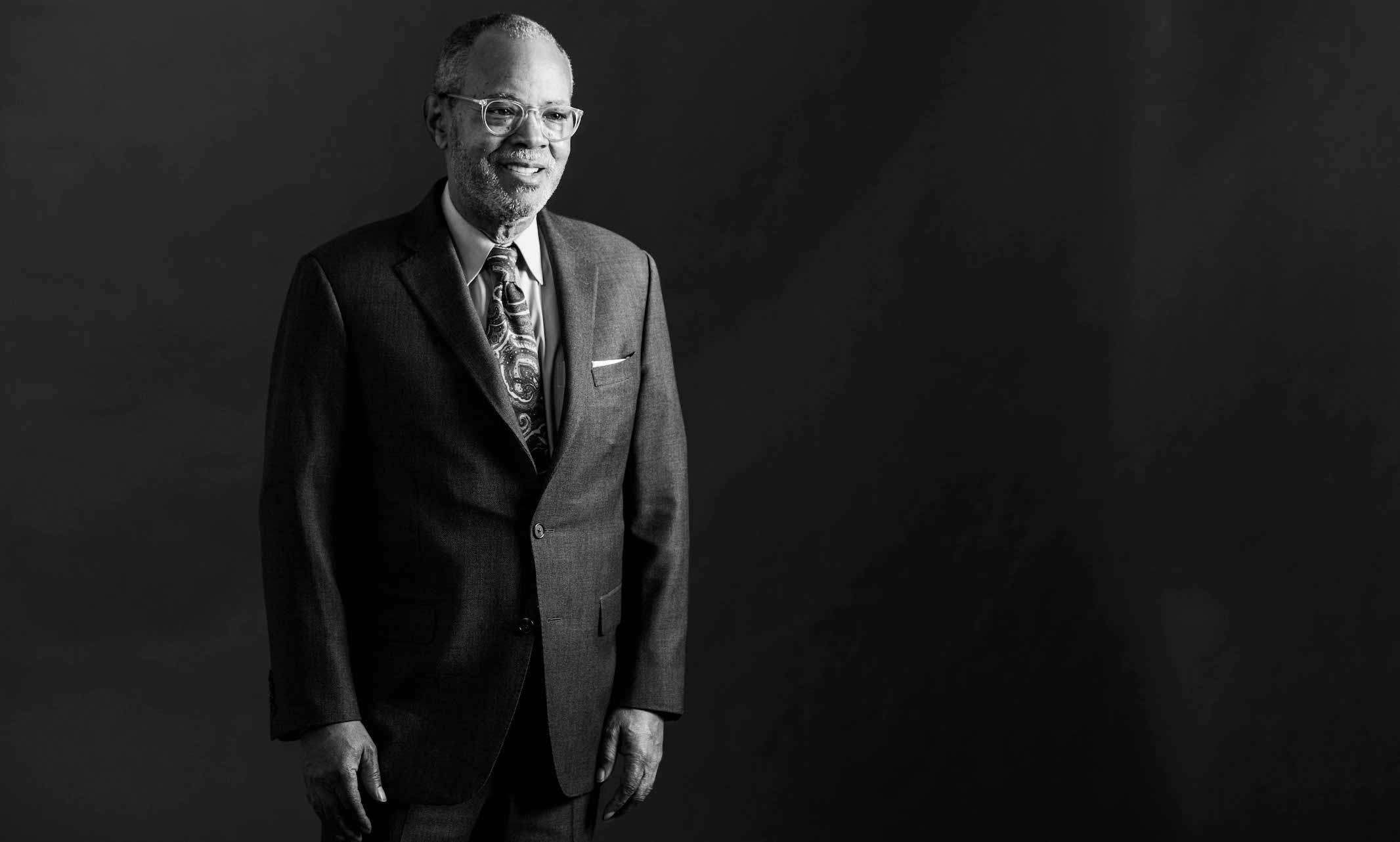
Alumni and students work toward a more ethnically inclusive and equitable future
The death of George Floyd at the hands of Minnesota police in May 2020 set off international protests and focused a spotlight on the Black Lives Matter movement. But for Black people and people of color, it was another reminder of the urgency and foundational change needed to reach racial equality in the United States — an issue so many UMKC alumni are working to address in their careers, communities, homes and day-to-day lives.
We spoke with School of Law alumnus Mark S. Bryant (J.D. ’74), who grew up during the civil rights movement and has spent much of his adult life fighting racism in government, nonprofit work and the private sector. His story sounded very much like the kind of work and activism our alumni and students are doing now — 50 years later.
Using Bryant’s experience as a guide, we’ve examined the parallels between then and now and how our UMKC family is making a difference in the lives of people of color.
Then and now
“The civil rights movement was led by religious and civic leaders and fueled with the energy of young people. The Black Lives Matter movement is led by young people.” — Mark S. Bryant (J.D. ’74)
Bryant was born into a segregated Kansas City and as a child was inspired by his parents. His mother was one of the first Black students admitted to the University of Kansas City (now UMKC) School of Education. His father was a dining car waiter on the Kansas City Southern Belle, “one of the best jobs a Black man could have," Bryant recalls.
When racial segregation was eased in 1959, Bryant's family was one of the first Black families to move south of 27th Street. At first, Bryant was surrounded by white people in his new school and neighborhood, but soon those teachers and students moved — his introduction to “white flight."
He remembers his father discussing politics at the kitchen table and being an early organizer of Freedom, Incorporated, a Kansas City organization that empowers African Americans in the political process. At the time, there were no Black people elected to public office. When Bryant’s father retired, he ran three times against the incumbent state representative for their district. His father never won, and a young Bryant witnessed the pain that it caused. Bryant resolved to get his law degree, enter politics and make his parents proud.
Today, Mahreen Ansari (’22) and Daniel Garcia-Roman (’21) are two UMKC students fighting for equal treatment of all individuals — continuing the work Bryant’s father began so many decades ago.
Mahreen Ansari
Ansari, a political science and international studies major with a pre-law emphasis, serves as president of the Student Government Association and communications director for the College Democrats of Missouri. She’s also a writer for the UMKC chapter of Her Campus, an online magazine for women in college, and a community organizer with the Sunrise Movement of Kansas City, a climate justice organization.
For Ansari, her interest in social justice was really sparked when she left high school, where she’d been surrounded by other BIPOC (Black, indigenous and people of color).
“I was lucky enough to have been somewhat sheltered by going to high school in a district mostly filled with other BIPOC,” she says. “But coming to a [predominantly white institution] I had to come face to face with a lot of things.”
Even in her earliest activism, Ansari saw a long road ahead to achieve lasting change in the realm of racial and social justice.
“It’s going to take a very conscious effort to undo those systems — possibly completely dismantling them — to stop and prevent further harm,” she says.
Daniel Garcia-Roman
Garcia-Roman is a studio art major with plans to earn a master's degree for art education and teach in the Kansas City, Missouri, School District. He is also an artist and volunteers with the Kansas/Missouri Dream Alliance, an organization that serves undocumented youth and encourages cultural exploration through visual arts at the Mattie Rhodes Center.
Garcia-Roman says his interest in activism started close to home.
“My older brother is a DACA [Deferred Action for Childhood Arrivals] recipient, and once he graduated from high school, I realized there are intentional policies in place that hinder his mobility in life,” Garcia-Roman says. “I reflected and found the forces that affected me and the people closest to me were social forces like misogyny, homophobia, xenophobia and racism. And that a small group of people can cause change through activism.”
Making a difference
“You could name and count them by hand … there were so few Black attorneys that I was a novelty.” — Mark S. Bryant
Just as he planned, Bryant became a lawyer and entered public service. After graduating from the UMKC School of Law in 1975, Bryant took a job as assistant public defender.
At the time, he says, he was one of very few Black lawyers in Kansas City. That unique role allowed him to participate in organizations like the Council on Education, Citizens Association, Committee for County Progress and Freedom, Incorporated, but it didn’t keep him from experiencing discrimination.
“Discrimination was most pronounced during encounters with law enforcement," he says. "It didn’t matter if I was driving, flying or boating. I had more encounters with law enforcement than my counterparts, and it was unpleasant."
Bryant served as a Kansas City, Missouri, City Council member from 1983 to 1991 and notably helped resolve decade-long litigation around the Bruce R. Watkins Roadway that had left Kansas City’s 5th district devasted by blight.
Today, Bryant is a land use and public law attorney at Rouse Frets White Goss Gentile Rhodes, P.C. He has also worked with Community Builders of Kansas City, a nonprofit that redevelops areas that lack essential services. With Bryant's help, the organization developed an ambulatory health-care facility, multi-family housing, office buildings and a retail shopping center in the vicinity of Blue Parkway and Cleveland Avenue, projects that, according to Bryant, “had a catalytic affect and transformed an area of Kansas City that was sorely in need of redevelopment.”
Sandra and Jerren Thornhill
Like Bryant, alumna Sandra Thornhill (B.A. ’13, M.P.A. ’17) has served her community in a myriad of ways since graduating from UMKC with both an undergraduate degree in sociology and a Master of Public Administration. She says her young son, Jerren, has been a major source of motivation for her advocacy and racial justice work.
Thornhill collaborates with Shirley’s Kitchen Cabinet, a Black women-led, nonpartisan, nonprofit organization dedicated to amplifying the voices of Black women. She also serves as a community liaison for birth justice advocacy with Uzazi Village, established to decrease maternal and infant health disparities found in the urban core, particularly among African-American women.
Recently, Thornhill worked to get the CROWN (Creating a Respectful and Open World for Natural Hair) Act passed in Kansas City, Missouri. Under the CROWN Act, Kansas City employers cannot implement appearance policies that prevent employees from wearing hairstyles or textures traditionally associated with race. This protects employees from being discriminated against for wearing their hair naturally or in styles such as twists or locs. Kansas City was only the second city in the nation to adopt the policy.
“The CROWN Act makes a huge difference for a couple of reasons: for pride as a Black person and as a measure of protection for the Black community," Thornhill says. "For a city to recognize its racist past and act to protect its most historically marginalized community — the Black community — this begins to allow one to shake the burden of internalized inferiority in exchange for pride in one's full essence of Blackness."
Since childhood, Thornhill has been keenly aware of societal white-washed standards of beauty, often rebelling against them through eccentric expressions of hair and style. Still, Thornhill wondered how her hair would dictate how people treated her at the office. For professional settings, she would sometimes style her hair to mimic white beauty standards.
“The dichotomy I faced was to either embrace my ancestral intuition of beauty, passed down by generations of Black women around me, or to subscribe to society's propaganda in order to climb the corporate ladder," she says.
Latrina Collins
Latrina Collins (B.S. ’93), a UMKC accounting graduate and former director of planning, program development and evaluation at the Full Employment Council, encourages employers to invest in diversity on an internal level, as well
“It is imperative that each company have staff dedicated to diversity, equity and inclusion,” she says. “It is not enough just to hire people of color, but companies must contribute to helping them succeed in terms of leadership development and working with each employee on a plan for success.”
Looking forward
“The color of my skin has, in many respects, defined my identity. The color of my skin determined where I could live, the schools I could attend, our family income, where I could go and what I could aspire to be. The color of my skin often defines a person’s first impression of me. When you are a person of color, it affects nearly every aspect of your life.” — Mark S. Bryant
Even with decades of time between them, Bryant, Ansari, Garcia-Roman, Thornhill and Collins have shared experiences based strictly on the color of their skin. While they are currently enacting change, they agree there is still much work to be done in bridging the equality gap.
“We have to evaluate and change the policies and practices that allow for people to be treated differently in all facets of life — in the workforce, education institutions, criminal justice system, government, health care and so on,” Collins says. “We have to be able to recognize when a system allows for racism, and we have to make those changes immediately.”
Despite the lengths still to go, a vast army of supporters, activists and allies — including many members of the UMKC community — is working to affect real change at every level, from grassroots movements to the highest levels of government.
“I think that through community organizing and legislation we can begin to try and end systemic racism,” Ansari says. “We need organizations that are built around people and their needs that can advocate for and design a better future for everyone.”
As with many movements, change starts on an individual level. Collins believes people should start their own journey with a bit of empathy.
“We have to recognize our own unconscious bias," she says. "You might not experience racism yourself, but step into the shoes of those who have experienced it and understand that it does exist."
Mar 11, 2021
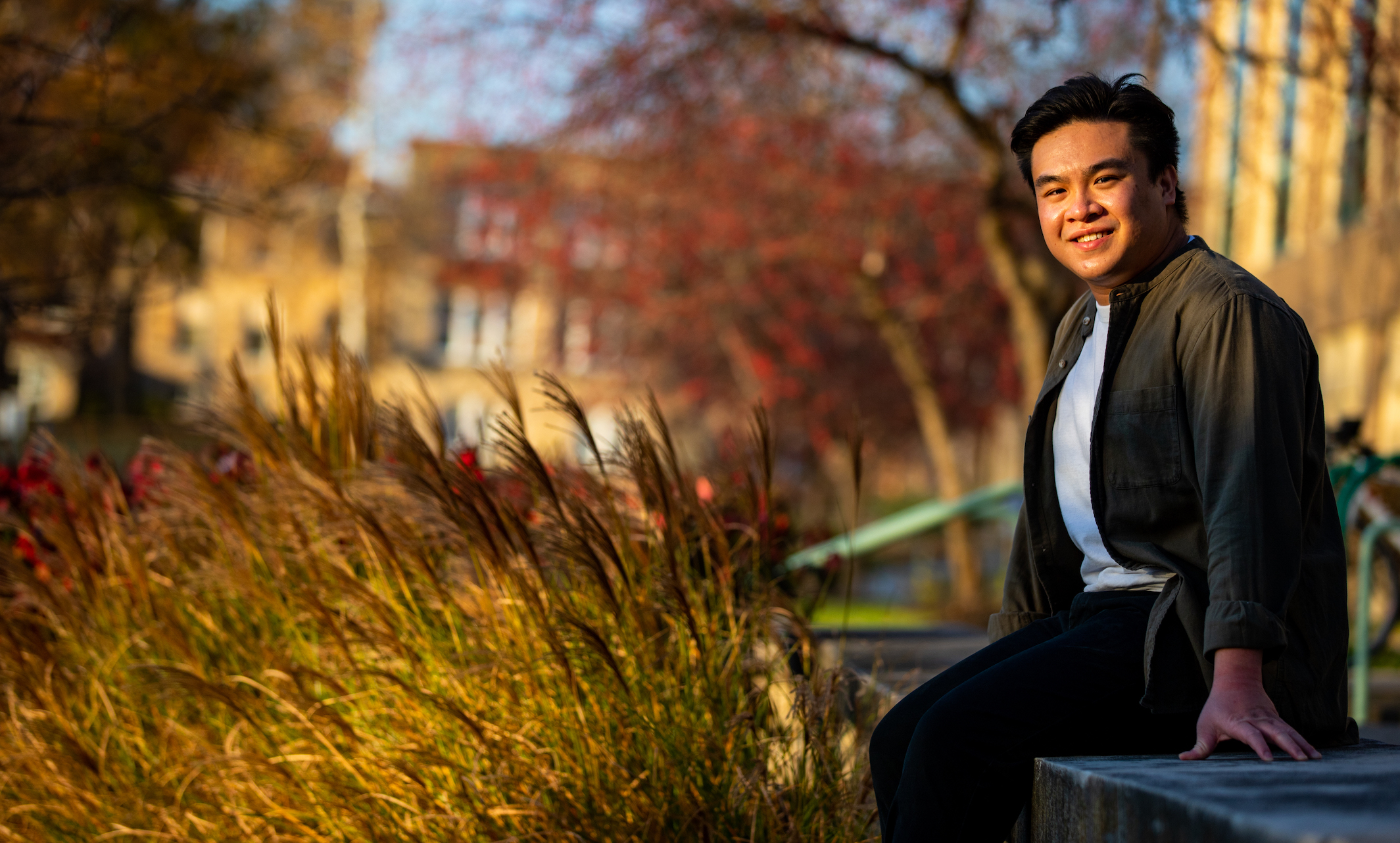
Student composition featured in film festivals
Our ongoing story starts with people from around the world, converging here at UMKC. Get to know our people and you’ll know what UMKC is all about.
Kwan Leung LingAnticipated graduation: 2021Academic program: Master of Music CompositionHometown: Hong Kong, S.A.R.
Kwan Leung Ling, is a composer and performer who is exploring the similarity between contemporary Western music and traditional Asiatic music.
Ling completed his undergraduate work in California, but applied to UMKC to pursue his master’s degree in music composition. He was the first recipient of the James. A. Rothwell Scholarship at the UMKC Conservatory, which he’s received for the past two years.
“Studying at UMKC is a dream for most composers around the world,” Ling says. “We have a world-class composition faculty team.”
Ling says his scholarship has led to unexpected opportunities.
“This scholarship attracted even more attention in the sound design world, and gave me an opportunity to research and apply that knowledge into my current projects,” Ling says. “I am inserting more sound design ideas into my collaborations with artists in different art fields. I believe that this will be the best way of giving back to this honorable scholarship.”
"Studying at UMKC is a dream for most composers around the world. We have a world-class composition faculty team.” - Kwan Leung Ling
Ling came from a traditional music background in Hong Kong. During his first year in the United States, he immersed himself in Western music.
“As a traditional Chinese music instrument performer, I had very little sense of Western music styles,” Ling says. “When I came to the United States, I had two, two-hour commutes. For four hours a day, I immersed myself in Western music. I think that acclimated me to a whole new world of composition.”
Ling says the experience of studying at UMKC has helped him to put his talents to the best use.
“UMKC is such a warm family for their students,” Ling says. “I get inspired every day by talking with professors and classmates. People at UMKC are very respectful of each other's artworks and giving professional feedback. As a composer and performer, I think this is the best way to learn.”
In addition to his solo and duet recordings, Ling has completed two film scores, including the most recent, “24,” an animated film that explores the experience of a man raised in two different cultures. “24” was selected for the Animation Chico Film Festival in California and the Video Art & Experimental Film Festival in New York City last November. The film will screen on March 20 - March 30, 2021 in CINEJOY Virtual Fest.
Mar 10, 2021
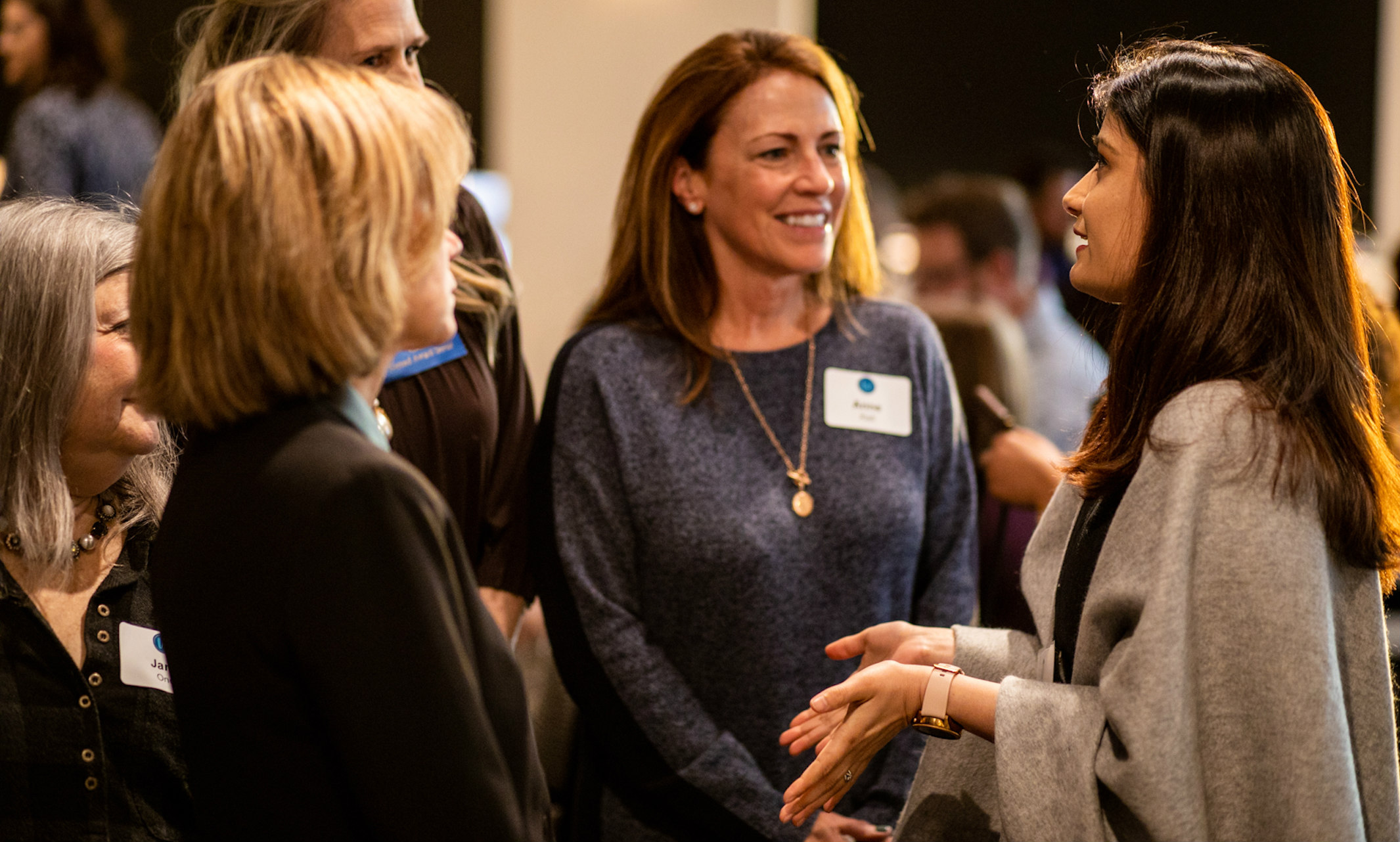
More than 2,000 women have received fellowships totaling more than $2 million
Amiben Ladhawala has been a teacher for 20 years and is working toward her doctorate degree in education. Funding through the UMKC Women’s Council Graduate Assistance Fund will enable Ladhawala to expand her research on how students’ experiences with trauma affect their behavior and ability to learn and the impact it has on teachers.
Lawhawala’s two decades of teaching have given her both experience and insight into the effects of trauma on students.
“When I was working as a special education teacher in an elementary school, I had so many incidents of students who had experienced trauma,” she says. “I worked hard to be a good teacher, but I didn’t know how to help these students.”
Lawhawala wanted to find resources that might help students who experienced trauma and their teachers.
“It was almost secondary trauma,” she says. “I would go home thinking about these students, how to help them, resources that might be available. I talked to other teachers, but I just felt helpless.”
She understands why some teachers may see these students as acting out or indifferent to learning. But she thinks that most teachers want to do a good job and most want to reach those students and help. Lawhawala received an award through the UMKC Women’s Council Graduate Assistance Fund that will allow her to continue her research and potentially improve the classroom experience of children who have experienced trauma and their teachers.
Since its inception in 1971, the UMKC Women’s Council has assisted more than 2,200 women by providing more than $2 million in graduate fellowships. This year, the council awarded more than $95,000 to 70 students.
“The UMKC Women’s Council are women supporting women!” Debbie Brooks (JD ’01), president of the council says. “We are proud of our students who remained undaunted by the Covid-19 pandemic and gracefully used their creativity to advance their research. These women did not allow the global disruption to negatively impact their studies.”
“The UMKC Women’s Council are women supporting women!” - Debbie Brooks, president of the UMKC Women’s Council
Brooks is a former GAF recipient and notes that many of the challenges she faced 20 years ago still exist today.
“We are still a patriarchal society. It can be difficult to complete your dream while you have a family. Many of our women students still have primary responsibility for child care. They are expected to be excellent partners, mothers, employees and students.”
The UMKC Women’s Council will celebrate half a century of supporting women in graduate studies and the 2021 awardees and their academic achievements with a virtual reception on March 11.
Established in 1971, the UMKC Women’s Council Graduate Assistance Fund fellowships support UMKC women working toward post-baccalaureate degrees with up to $2,000 in funds that furthers their completion of graduation requirements and enriches their educational experiences.
Mar 08, 2021
KSHB lists UMKC Pharmacy site for vaccinations
The UMKC School of Pharmacy in Kansas City will receive the vaccine. Read more and watch the newscast.
Mar 06, 2021
Kansas City Star highlights Jannette Berkley-Patton
The Kansas City Star’s special section, On the Vine, will focus on Women’s History Month in March. In the March 4 edition, The Star included a previous story about Jannette Berkley-Patton, a professor in the School of Medicine at the University of Missouri-Kansas City, about her work and research on the role of Black churches in keeping communities healthy. Read more from The Star. (subscription required) The Missouri Independent and The St. Louis American ran similar stories.
Mar 04, 2021
UMKC Forward highlighted in Kansas City Business Journal guest column
This guest column by Ramon Murguia is focused on UMKC Forward. Read the full article. Subscription required.
Mar 04, 2021
Two national media outlets report on research conducted by UMKC professor
Carole McArthur, a professor of oral and craniofacial sciences at the University of Missouri-Kansas City and director of residency research in pathology at the Truman Medical Center, said every new HIV discovery is “another piece in the evolutionary jigsaw puzzle.” Yahoo News and Fox News.
Mar 03, 2021
The Beacon looks at higher education employees and where they rank on states’ vaccine priority schedules
This story is about the goal for universities in Kansas and Missouri professors to offer in-person classes, but higher education employees are low on states’ vaccine priority schedules. The reporter interviewed faculty at multiple universities, including Tom Mardikes, a theater professor at UMKC and chair of the UMKC faculty senate. Mardikes said he thinks UMKC has done a good job of keeping students and teachers safe with protective and sanitizing equipment and distancing measures. In one class, he teaches 25 students in a room designed for 150. Read the full article.
Mar 03, 2021
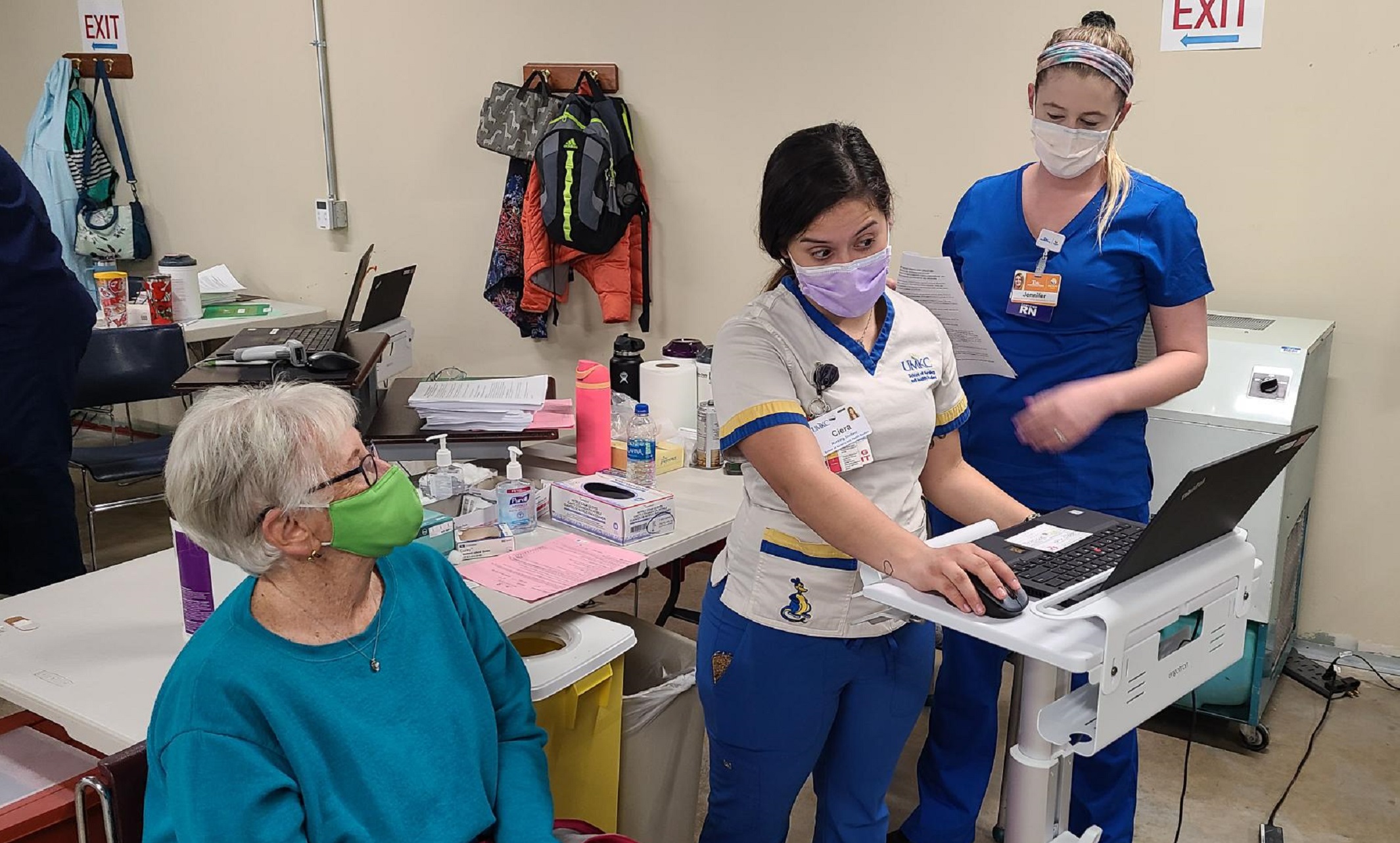
More than 200 are lending much-needed help to efforts around the Kansas City area
When Sally Ellis Fletcher went to get the COVID-19 vaccine, she recognized some of the people administering the shots as students from the UMKC School of Nursing and Health Studies, where Fletcher is the associate dean for students.
And when it was her turn, Ellis Fletcher was happy that a UMKC nursing student was giving her the vaccine.
“This is a powerful point in our history, and these students have a historic role,” Ellis Fletcher said. “Thirty or 50 years from now, when people ask, they will be able to say they were a part of this.”
Ellis Fletcher, who got her vaccine doses at Truman Medical Center in the Health Sciences District, is just one of the hundreds whose inoculations will have been possible in part because of UMKC nursing students.
James Spence, director of the bachelor of science in nursing program, said the school’s roughly 225 BSN students all would contribute to the vaccination efforts at some time.
“Thirty or 50 years from now, when people ask, they will be able to say they were a part of this.”
— Sally Ellis Fletcher, associate dean for students
“Whether it’s with paperwork, parking or actually giving the vaccinations, every one of our students will help,” said Spence. “As the vaccinations ramp up, sites need the extra hands. Our students get course credit and valuable experience in the field, practicing some of the fundamentals. It’s a win for everybody.”
Besides the TMC facility near the school, students help at TMC’s Lakewood location and at North Kansas City Hospital. About 15 students with the volunteer Medical Reserve Corps have worked all over the metropolitan area, Spence said, and a TMC outreach group has had students help at churches, YMCA’s and other Kansas City locations.
Ellis Fletcher added, “This is the first time for these vaccines, and for any vaccines with this type of chemical structure. For our students to be part of such an effort, and during a pandemic, has taken a whole network of faculty and staff, along with the hospitals and other partners. Our students are making a real difference.”
Mar 01, 2021
KCUR interviewed UMKC professor about Kansas City's recent cold snap
Fengpeng Sun, assistant professor in the UMKC Department of Earth and Environmental Sciences, was a guest on Up to Date.
Mar 01, 2021
